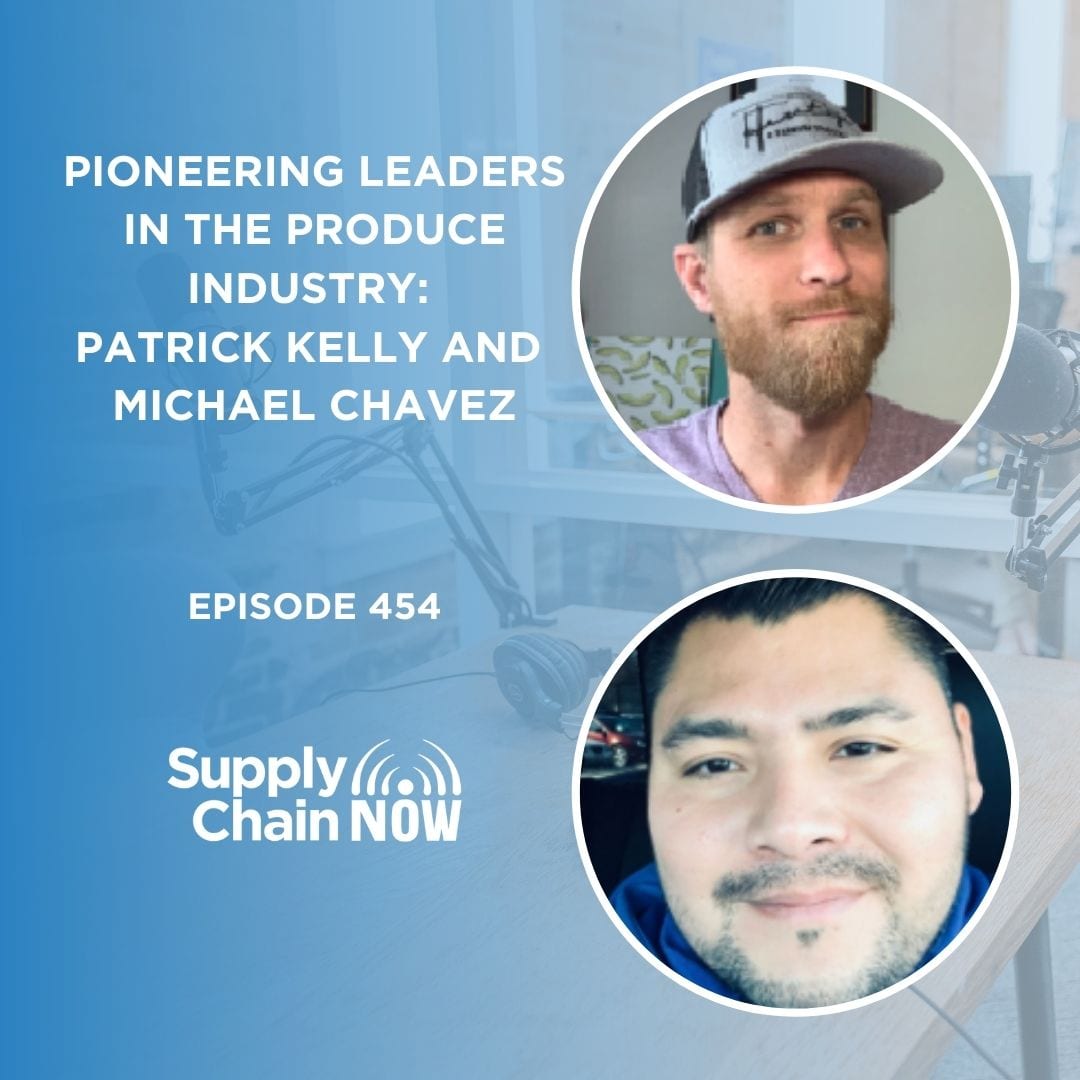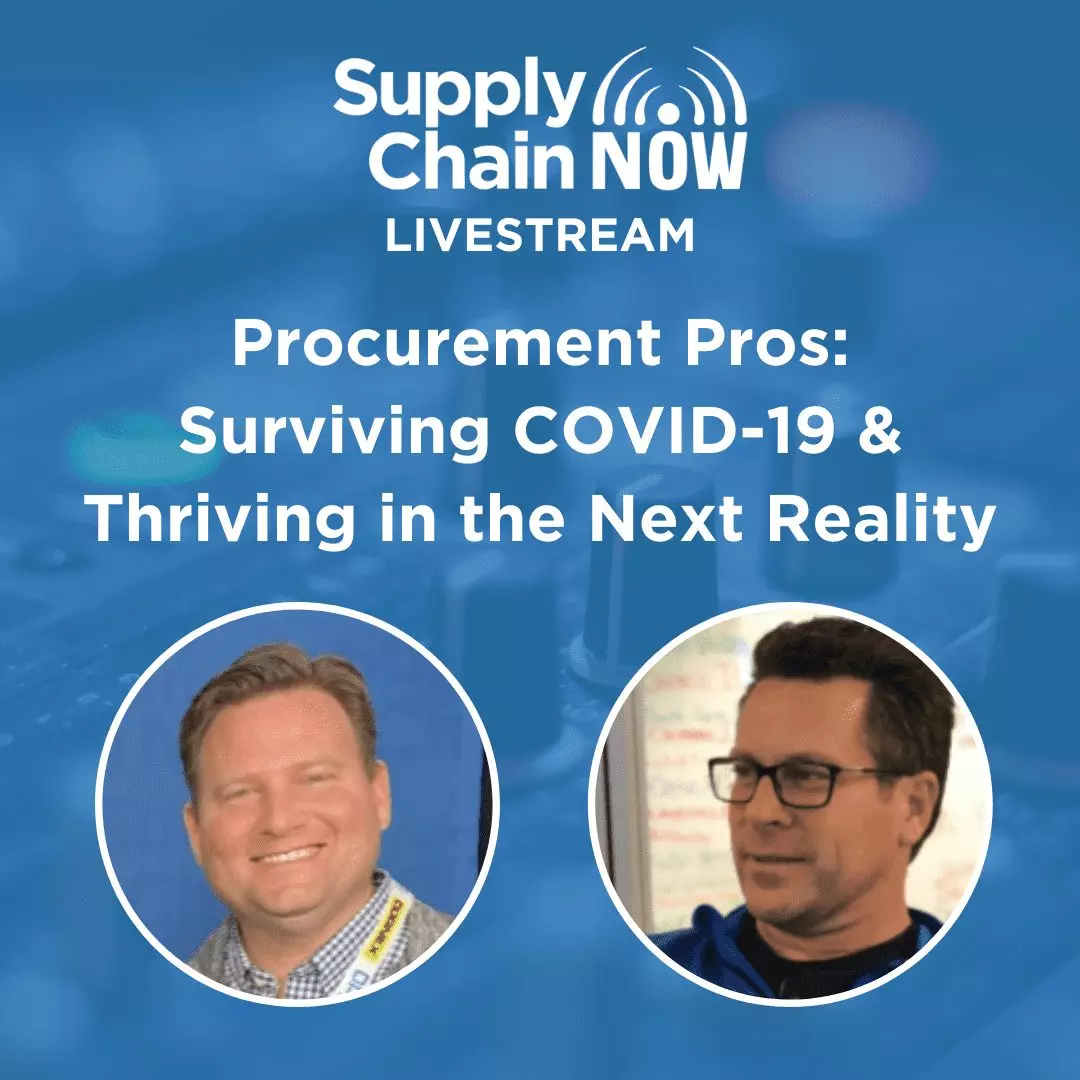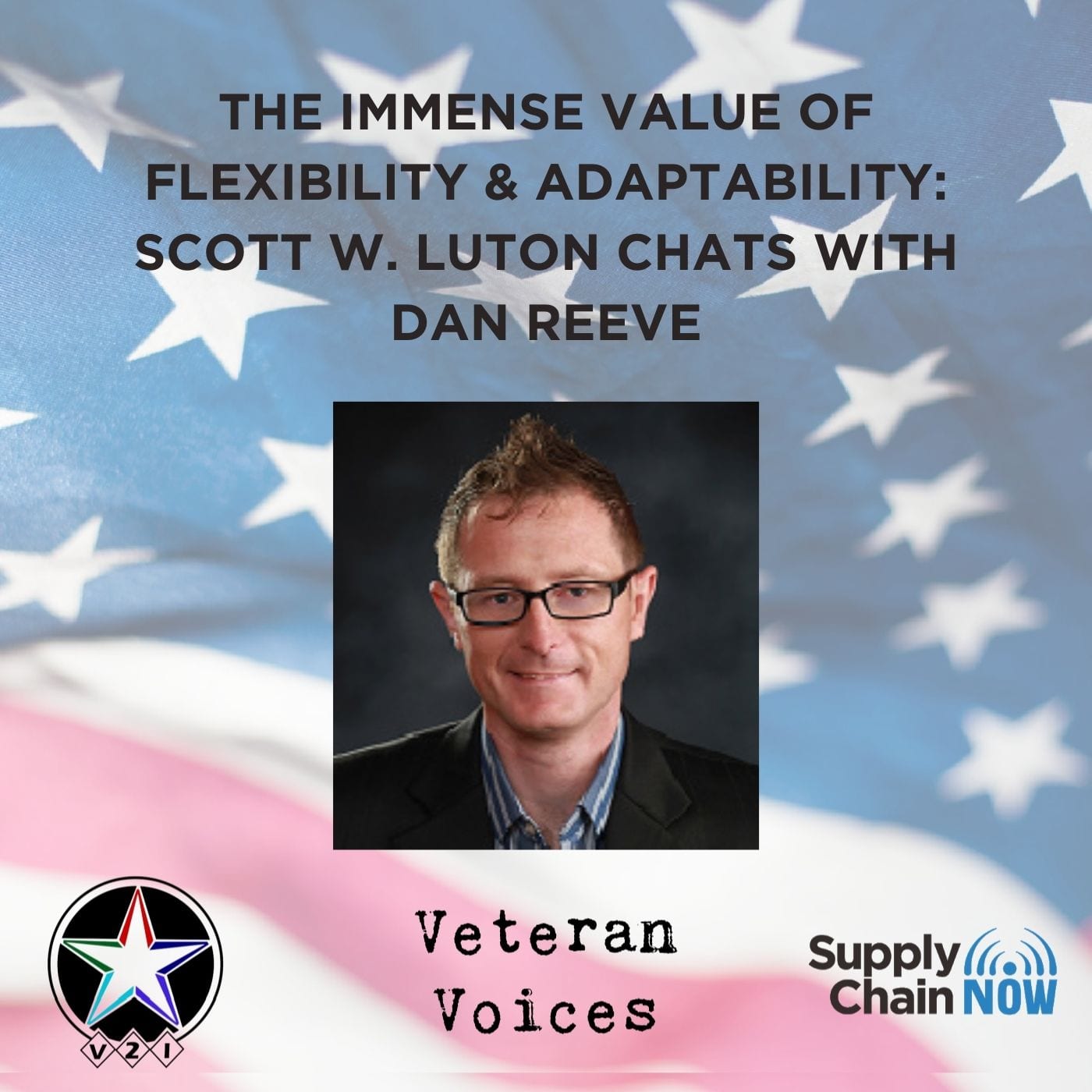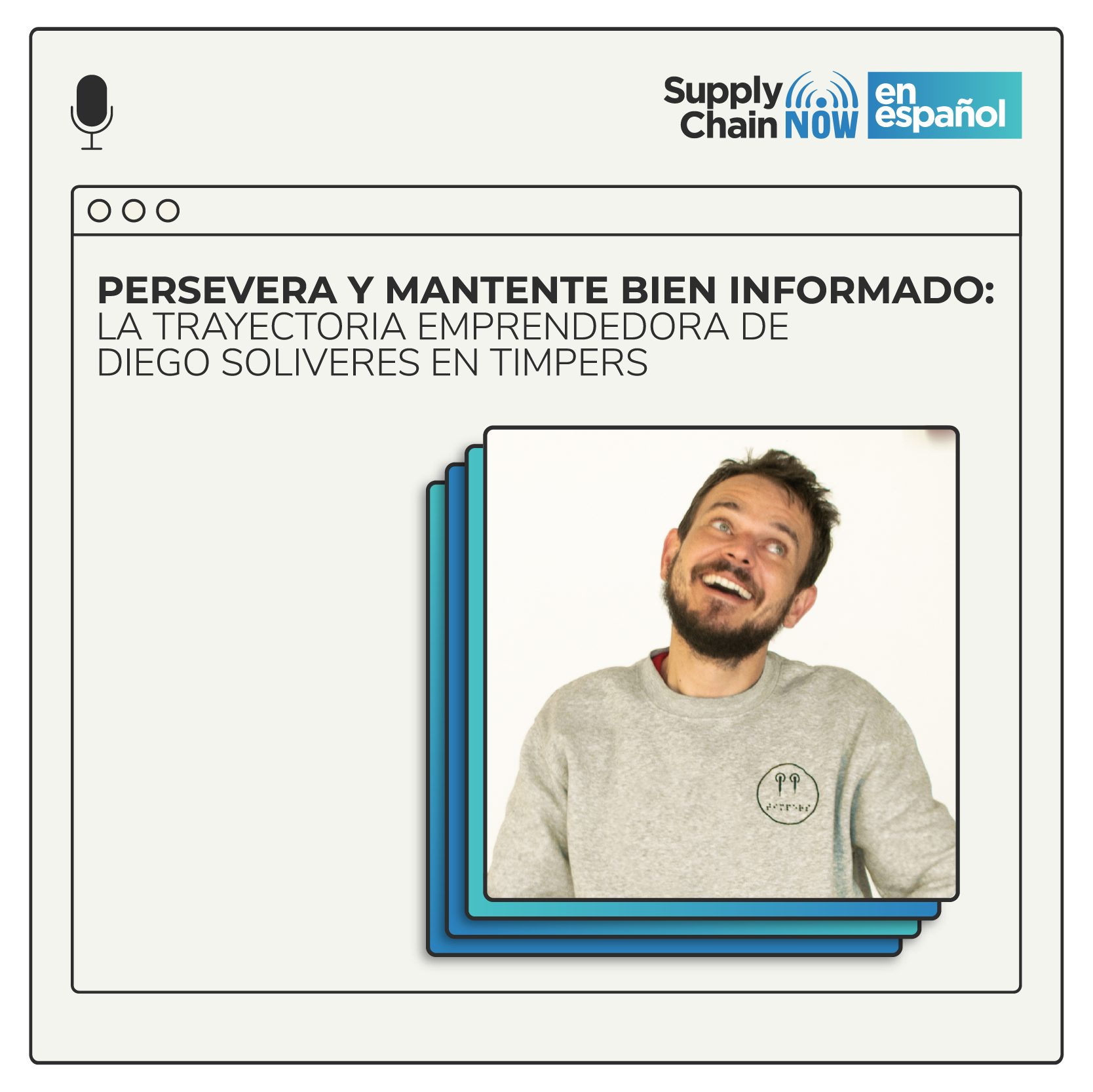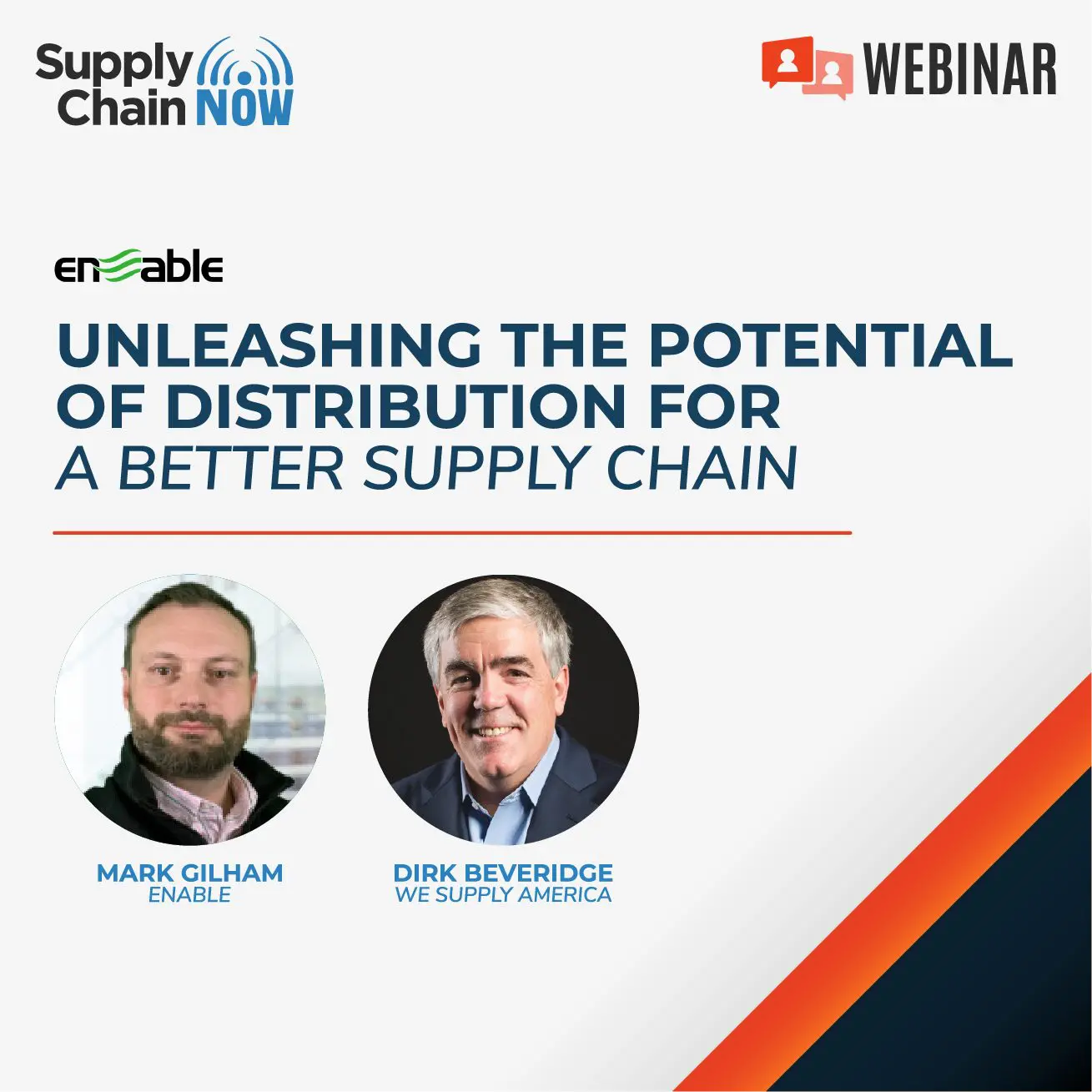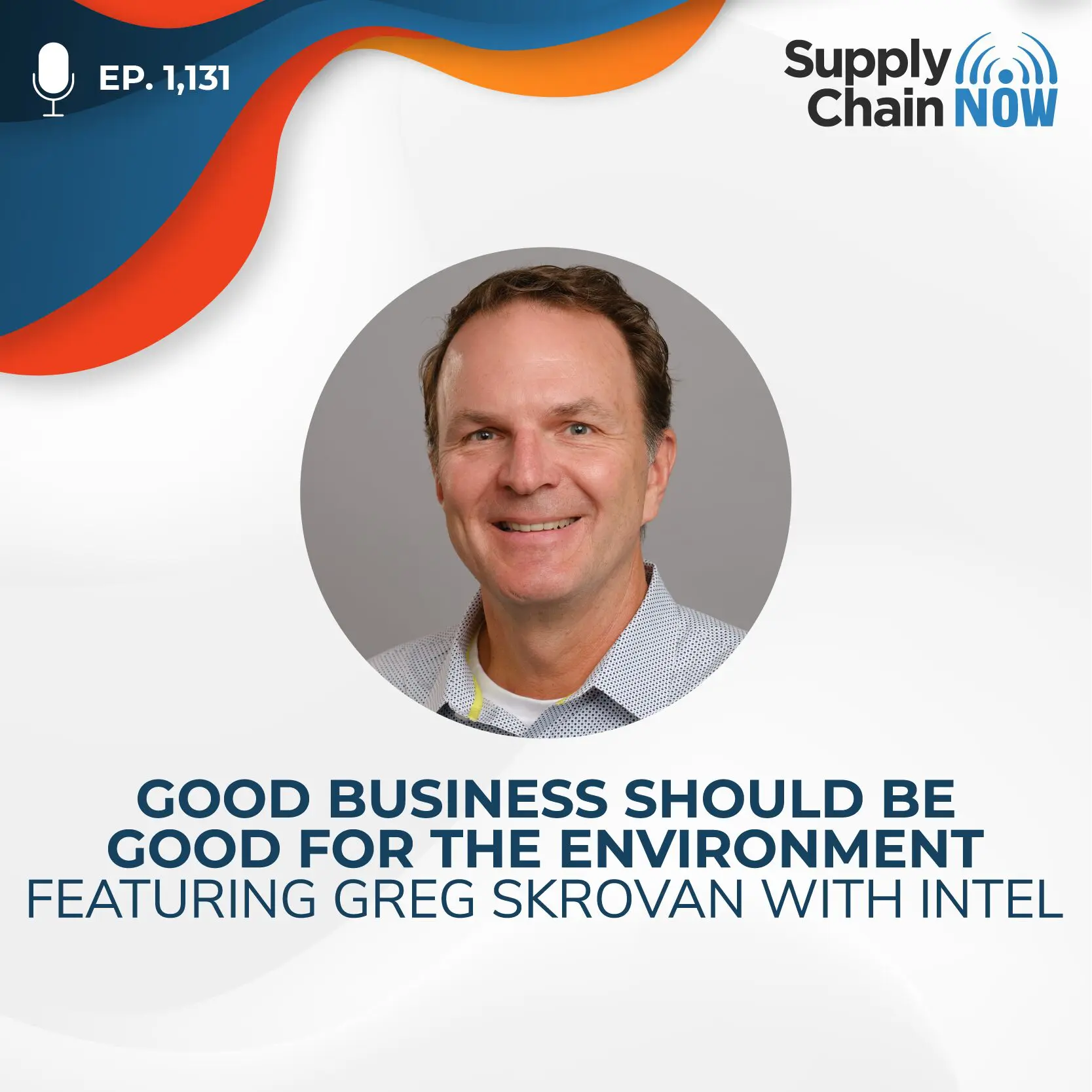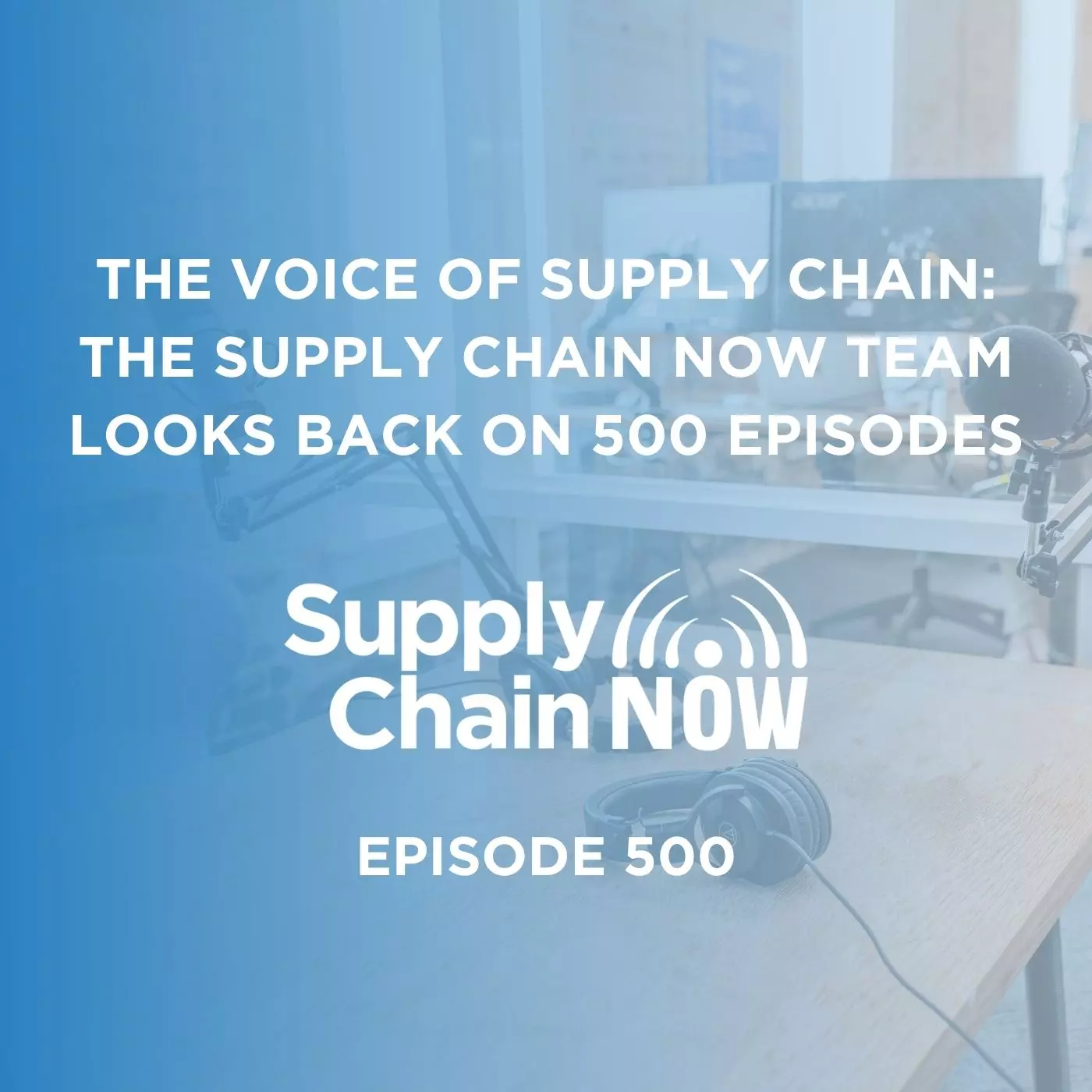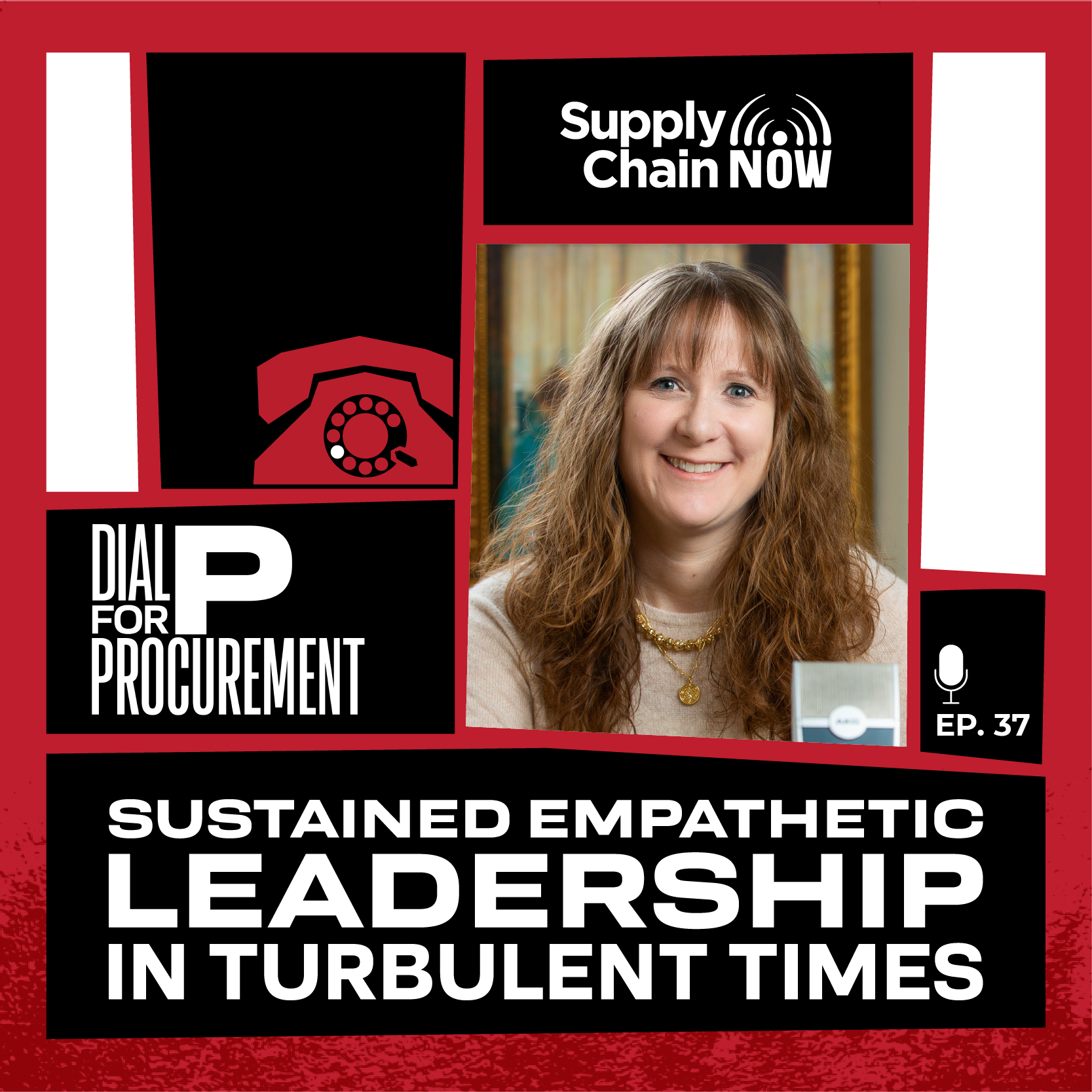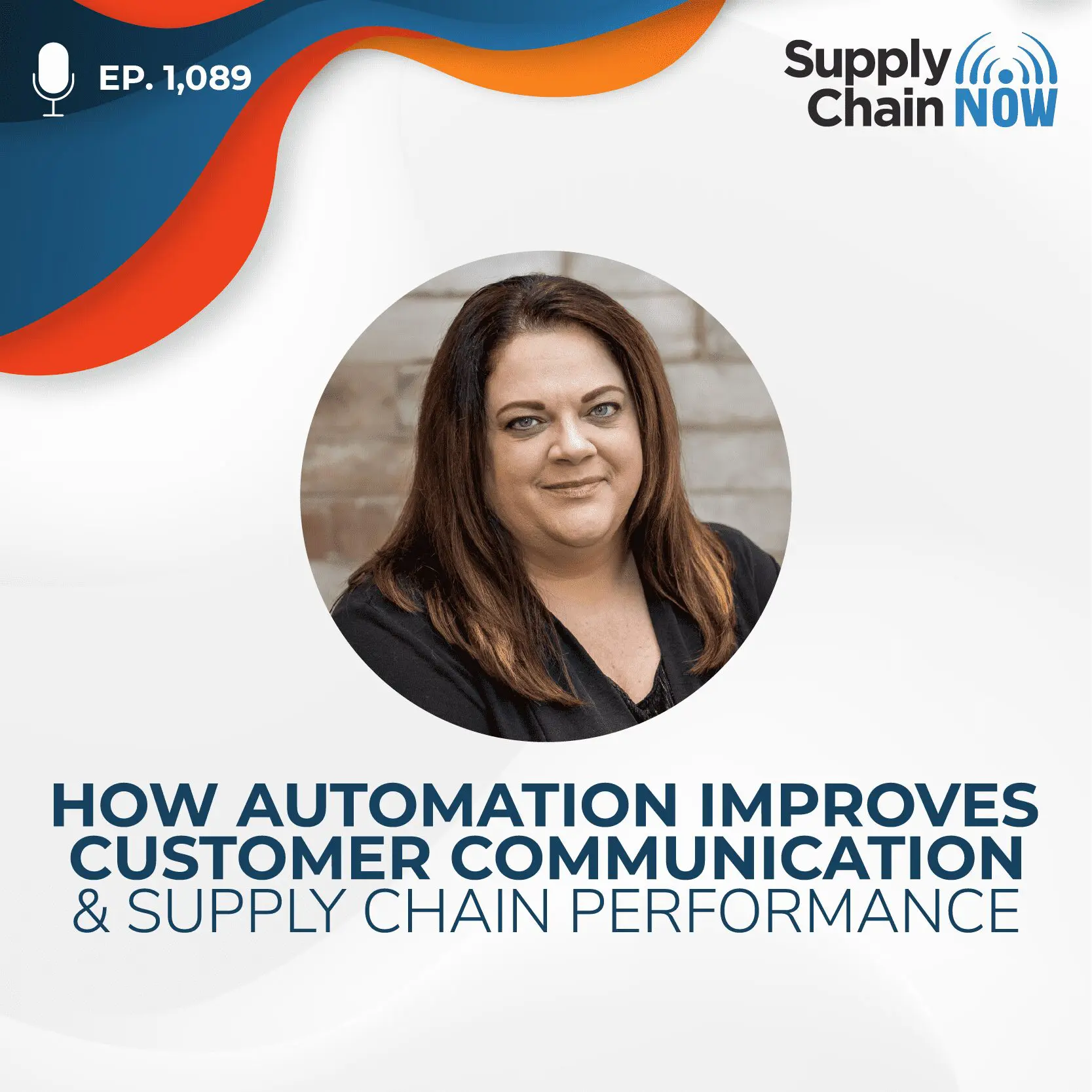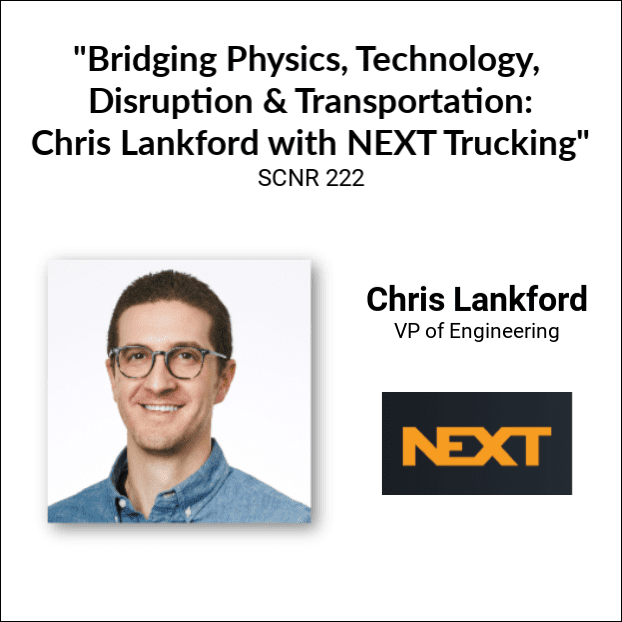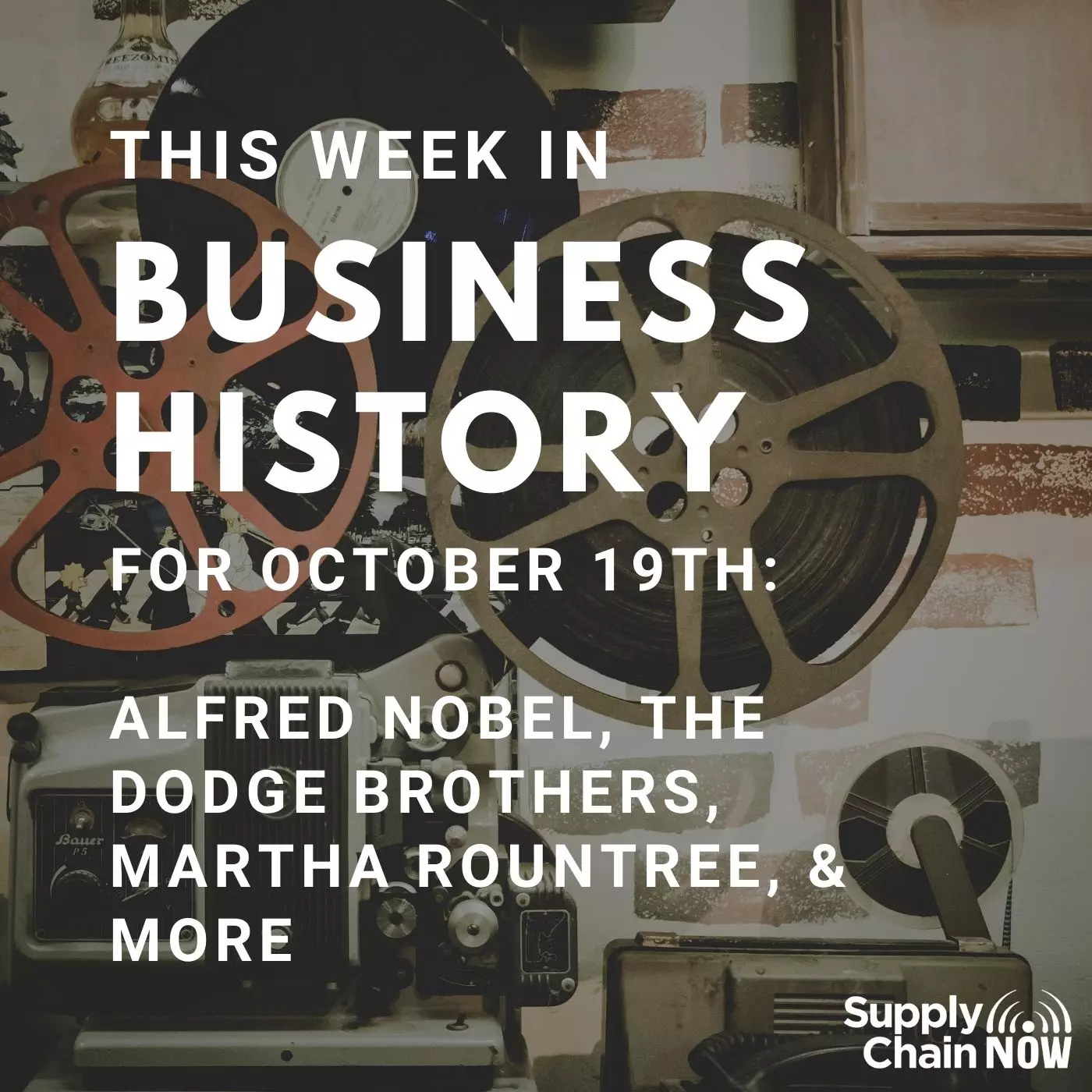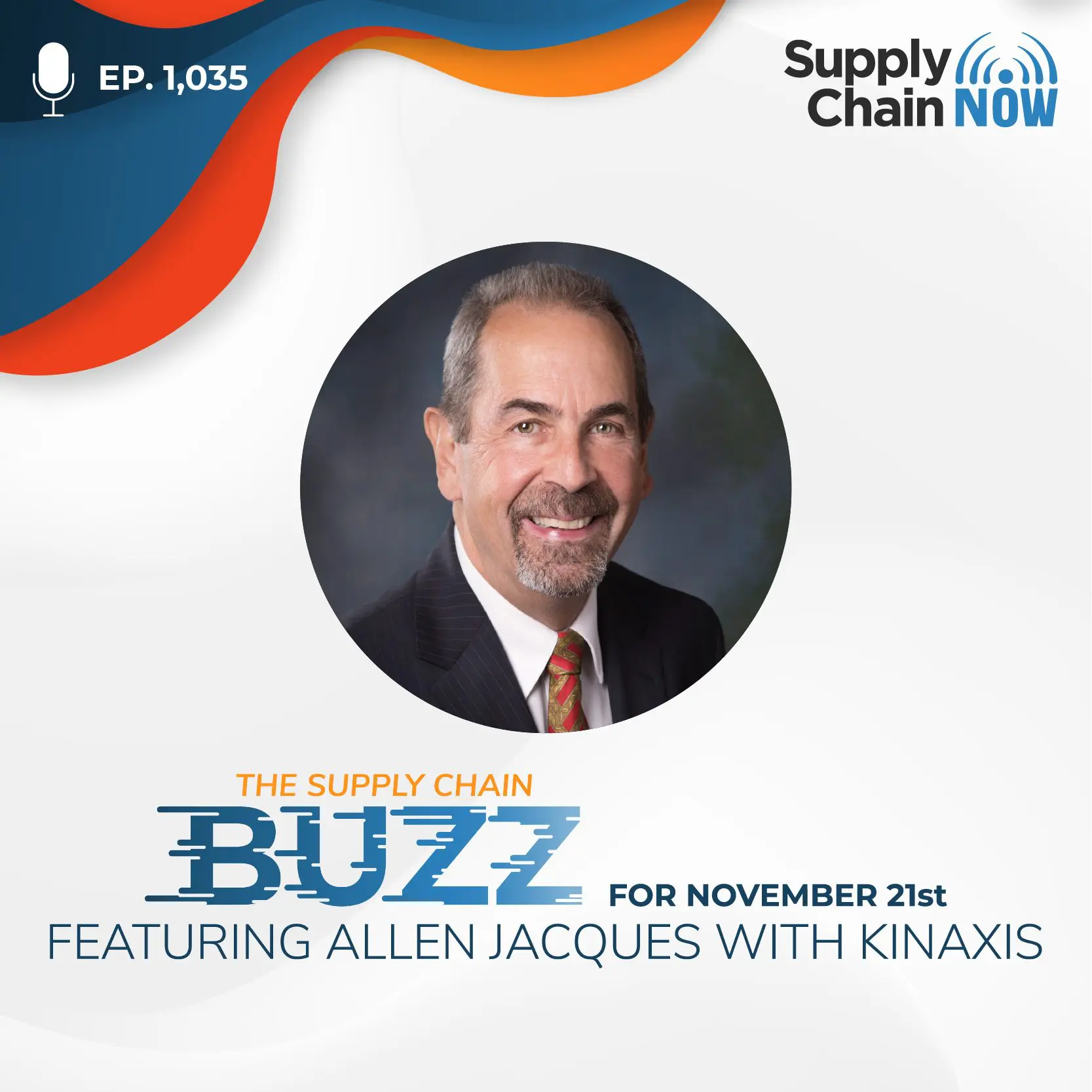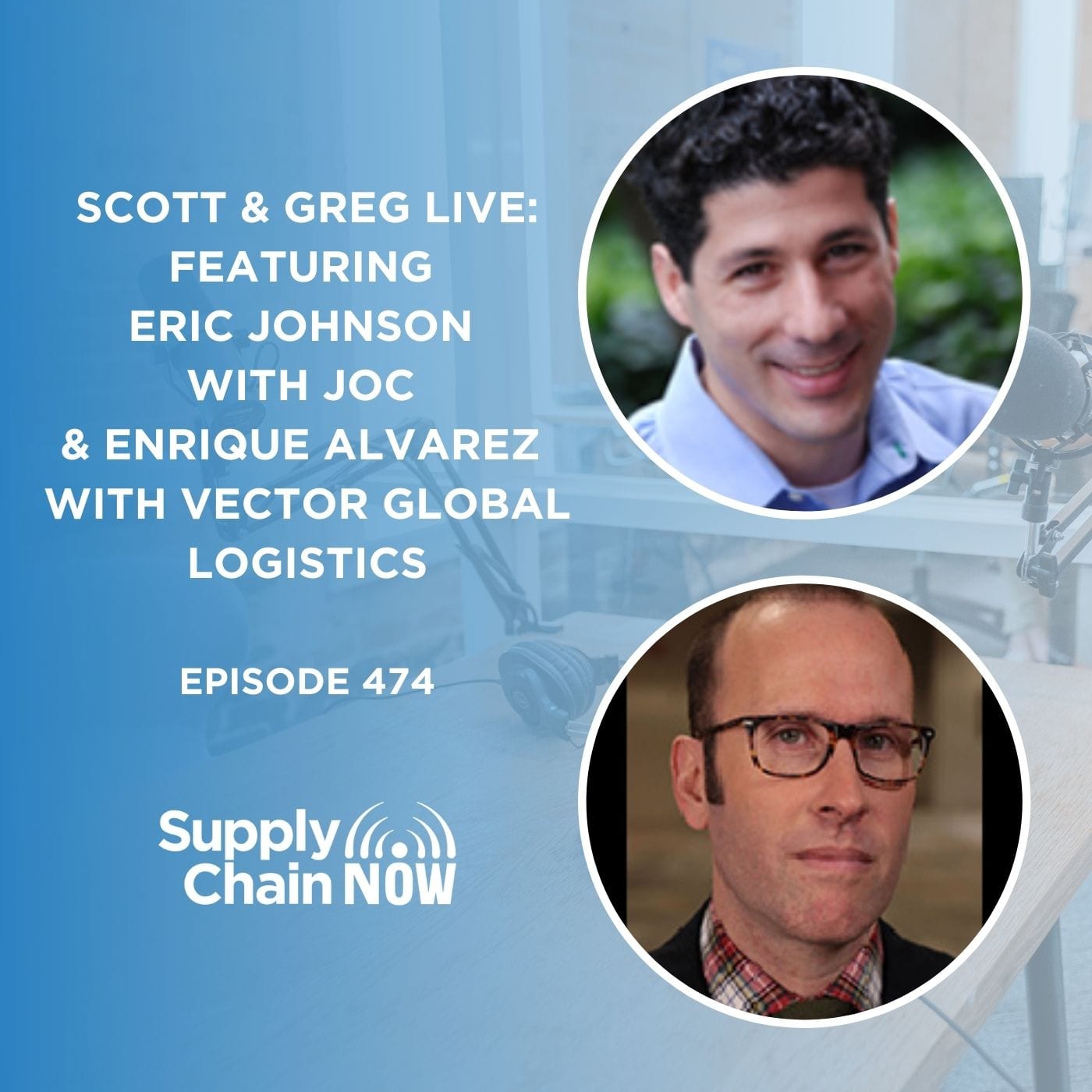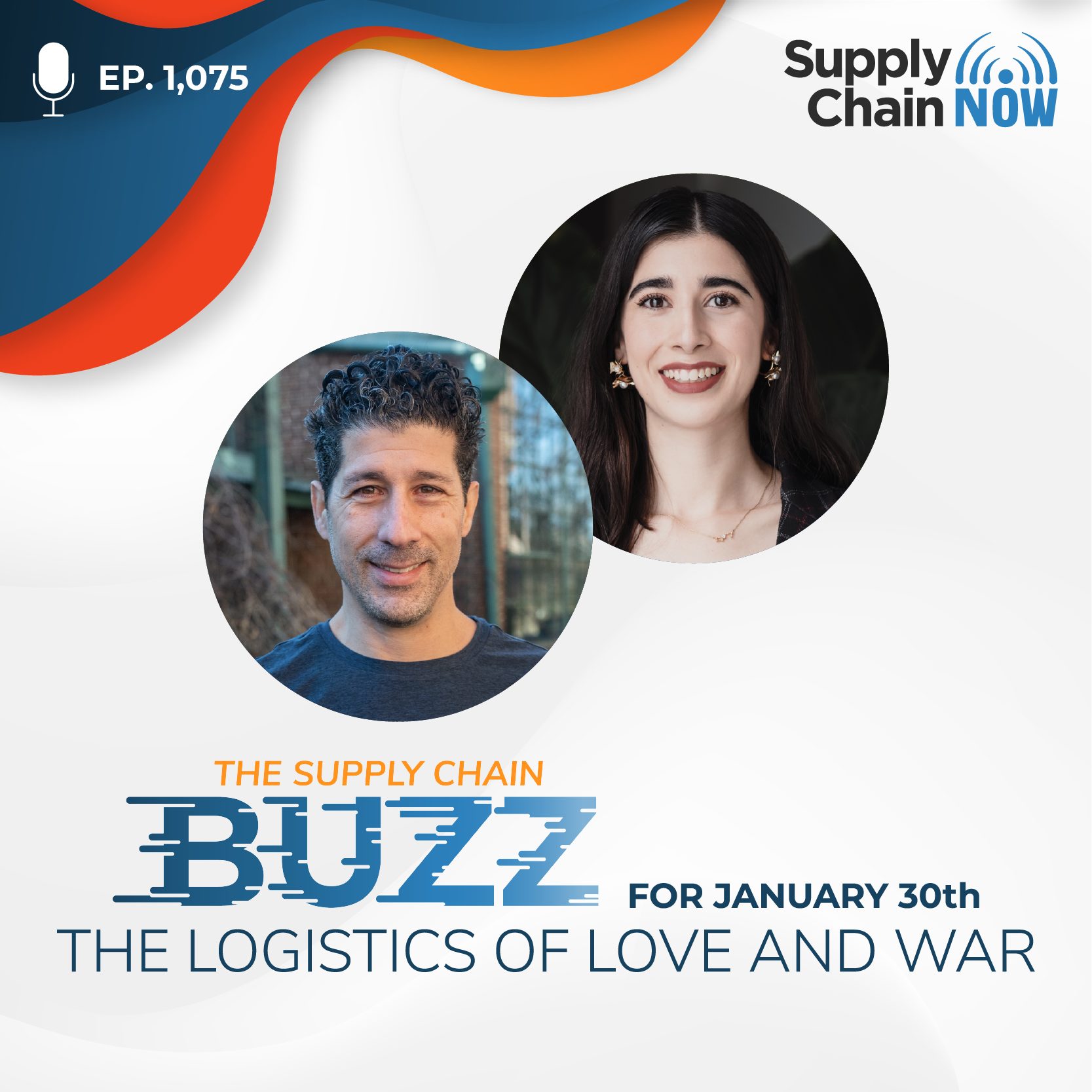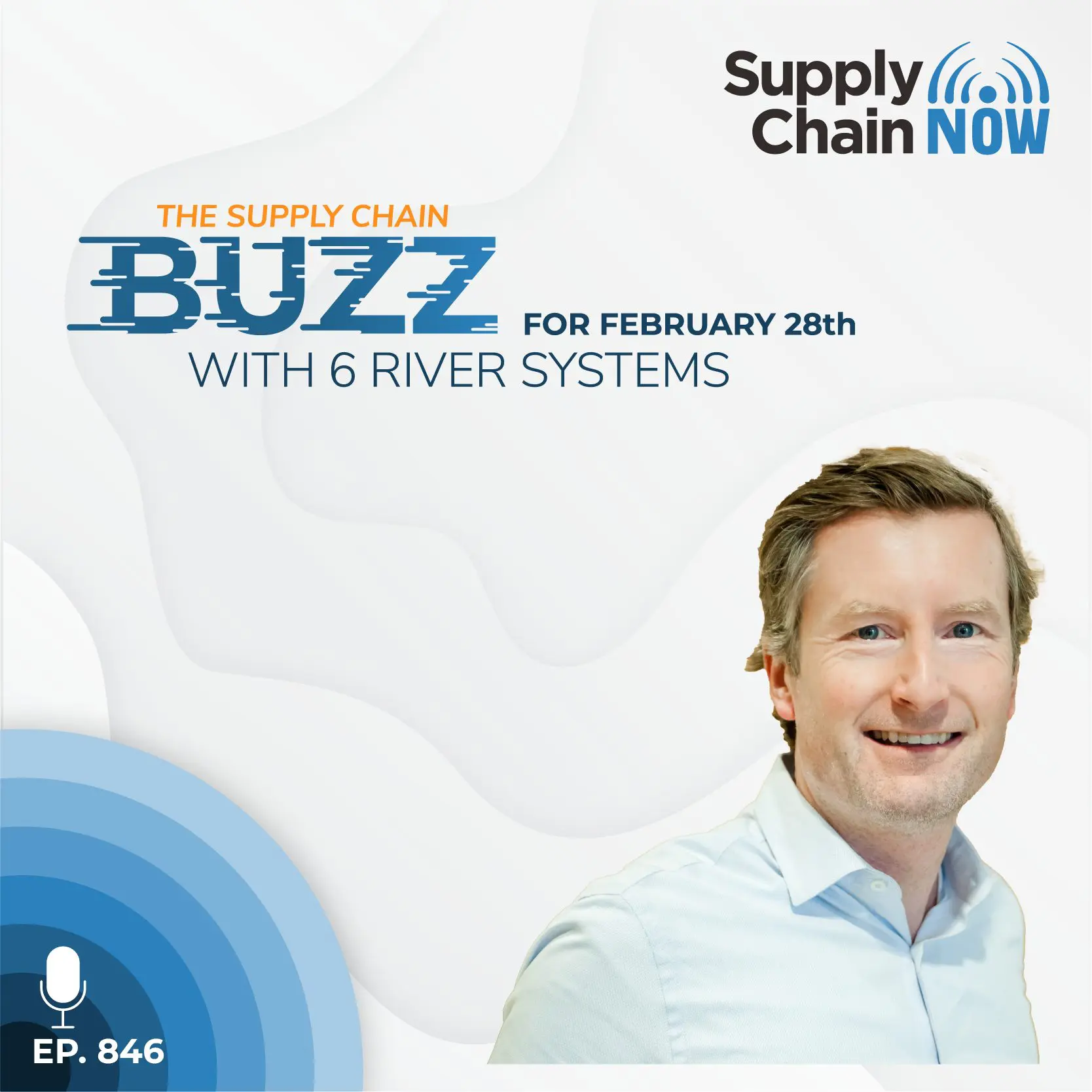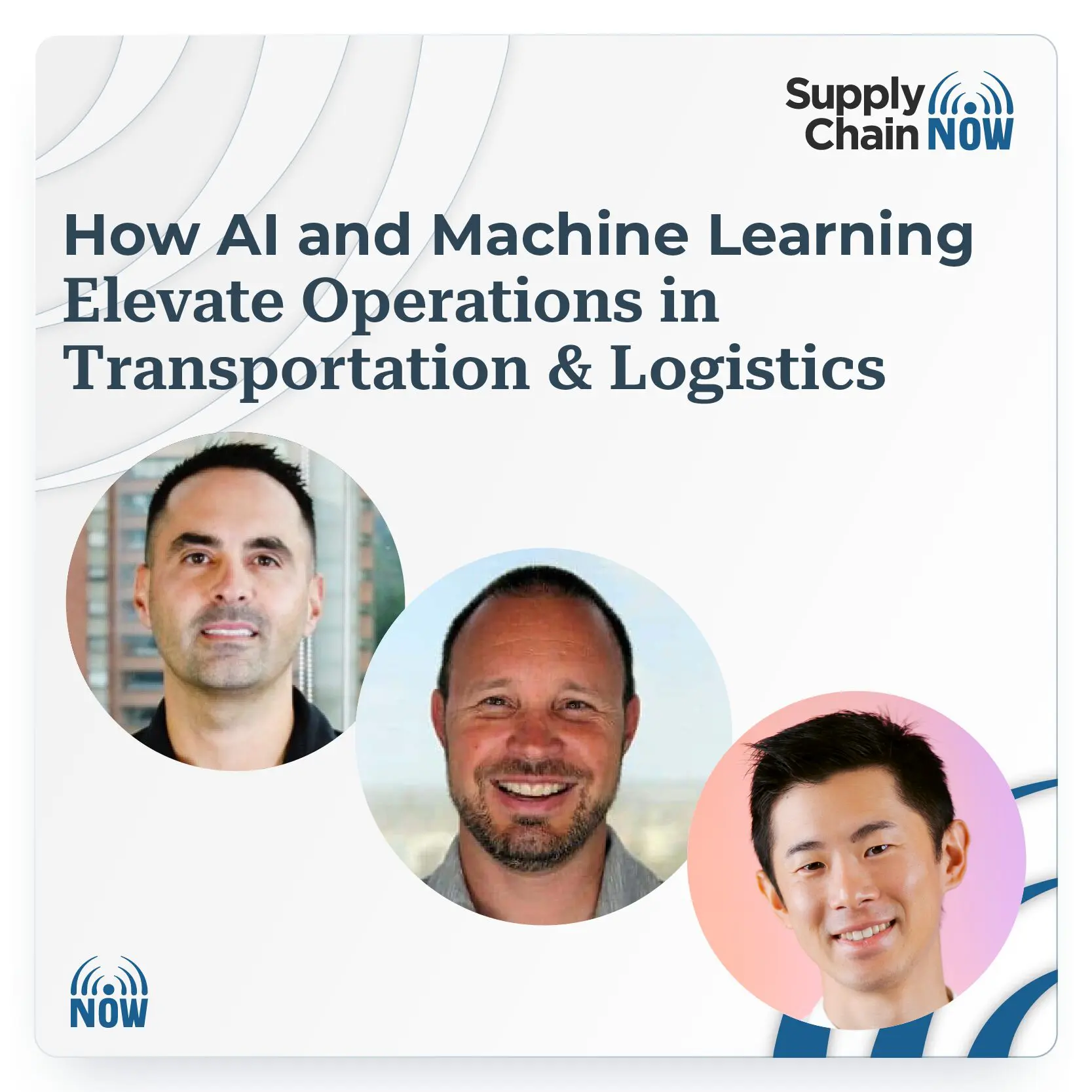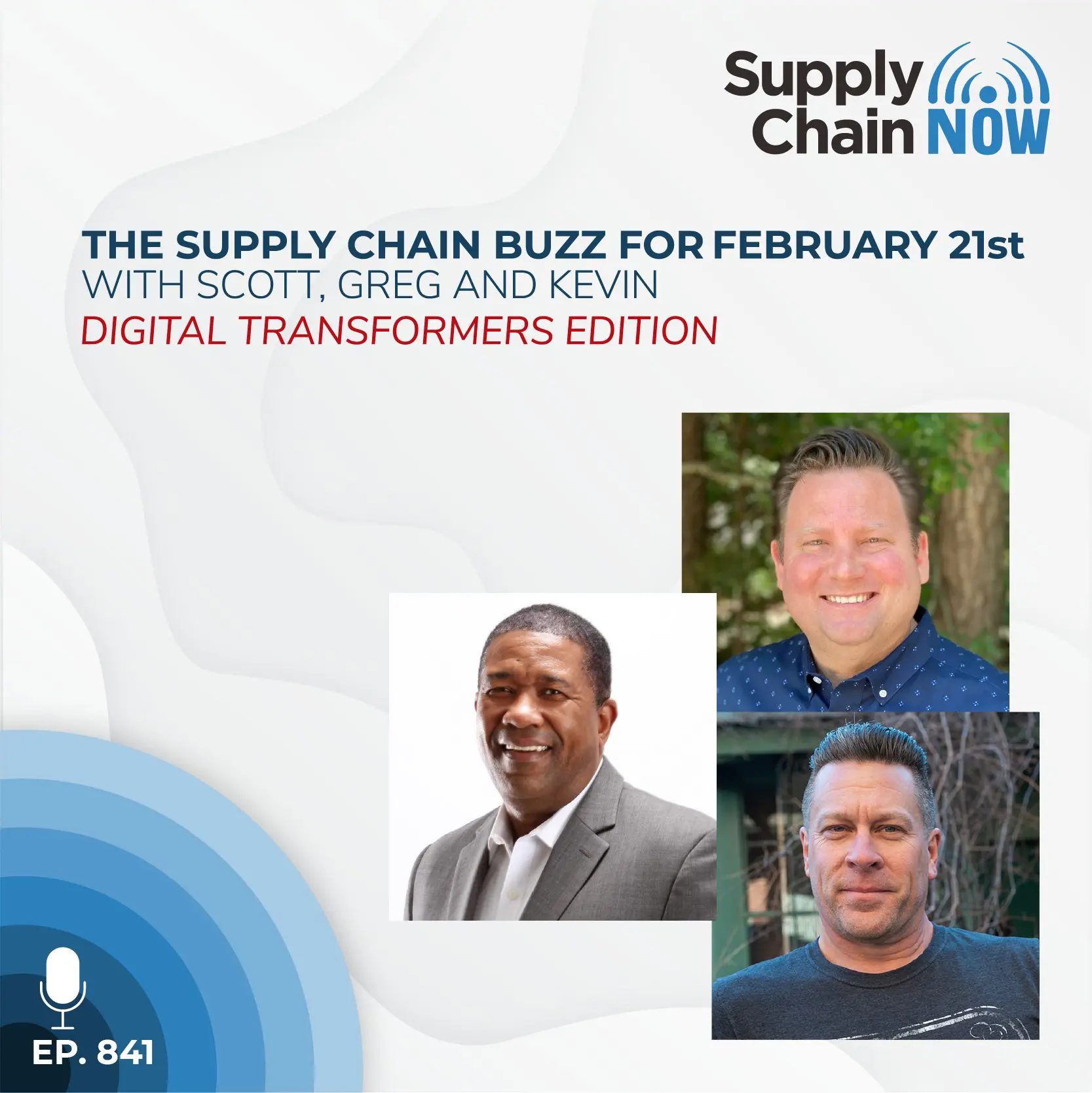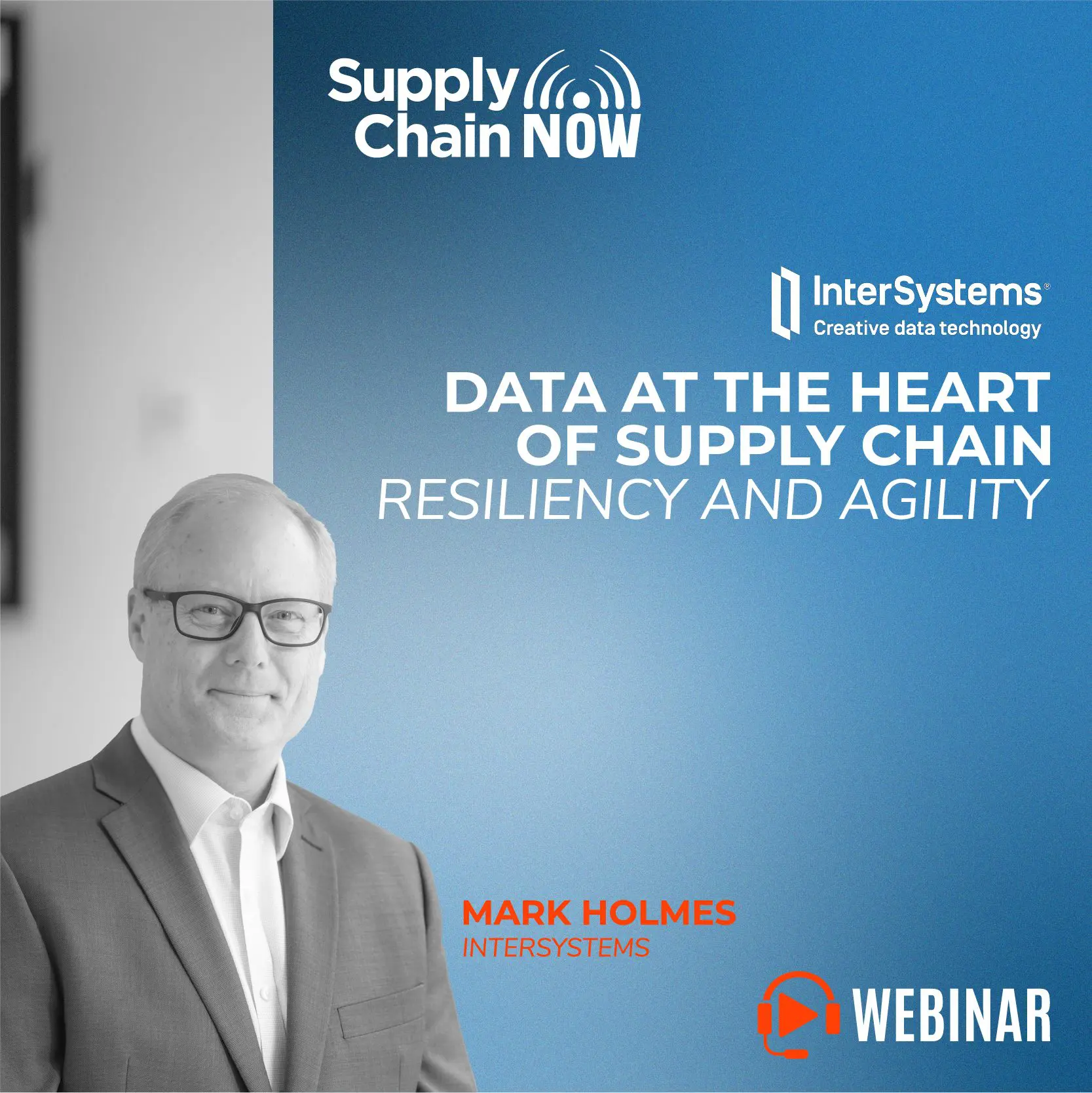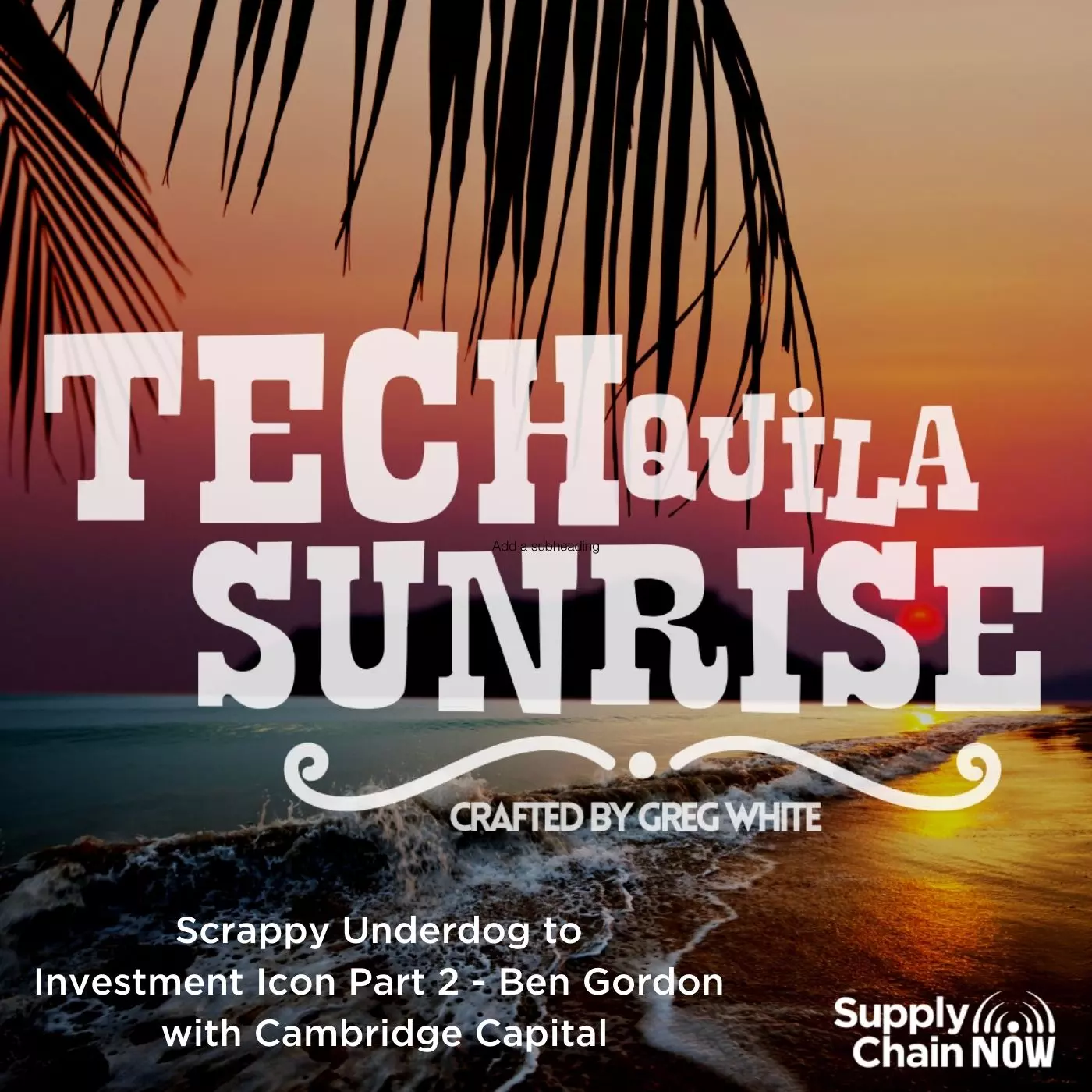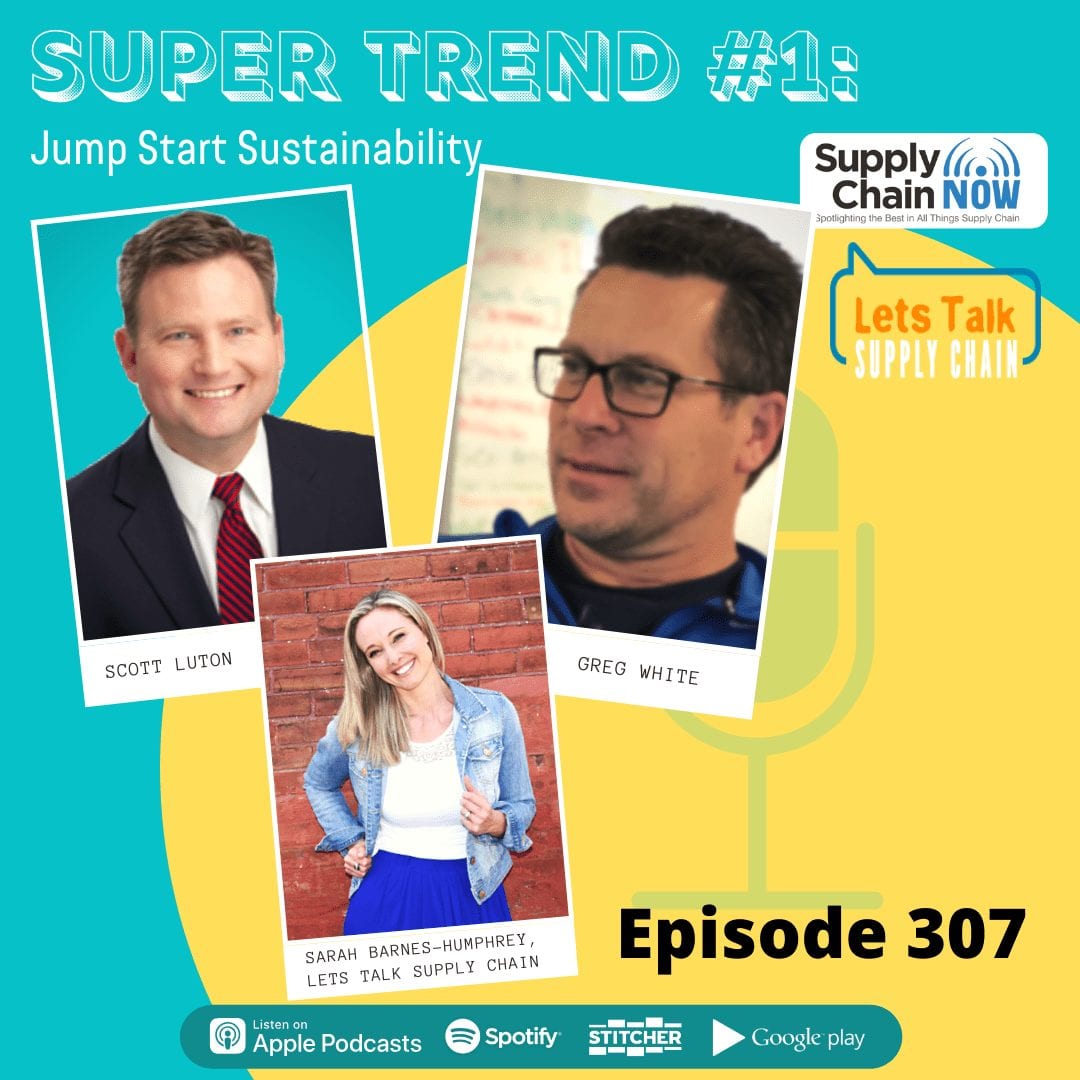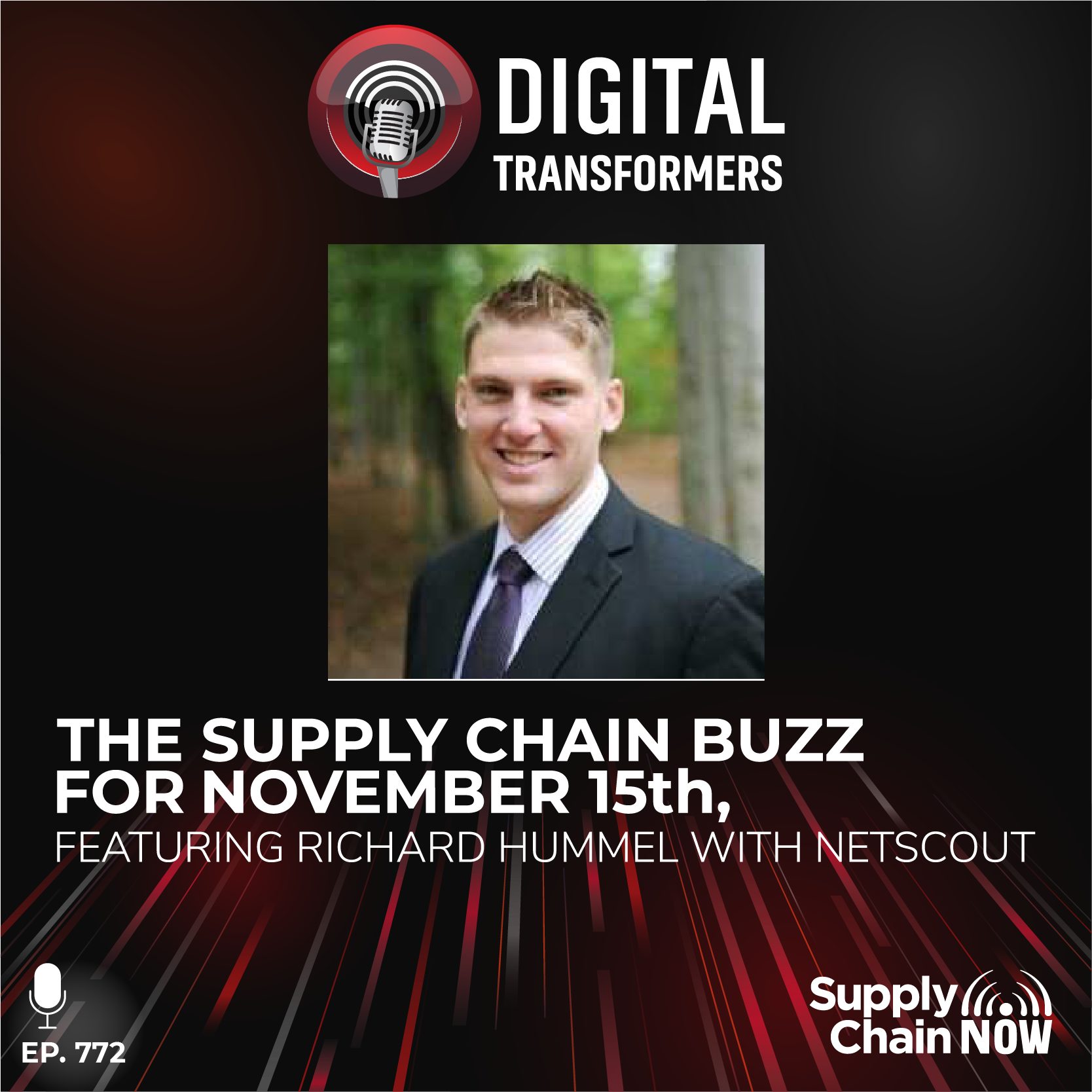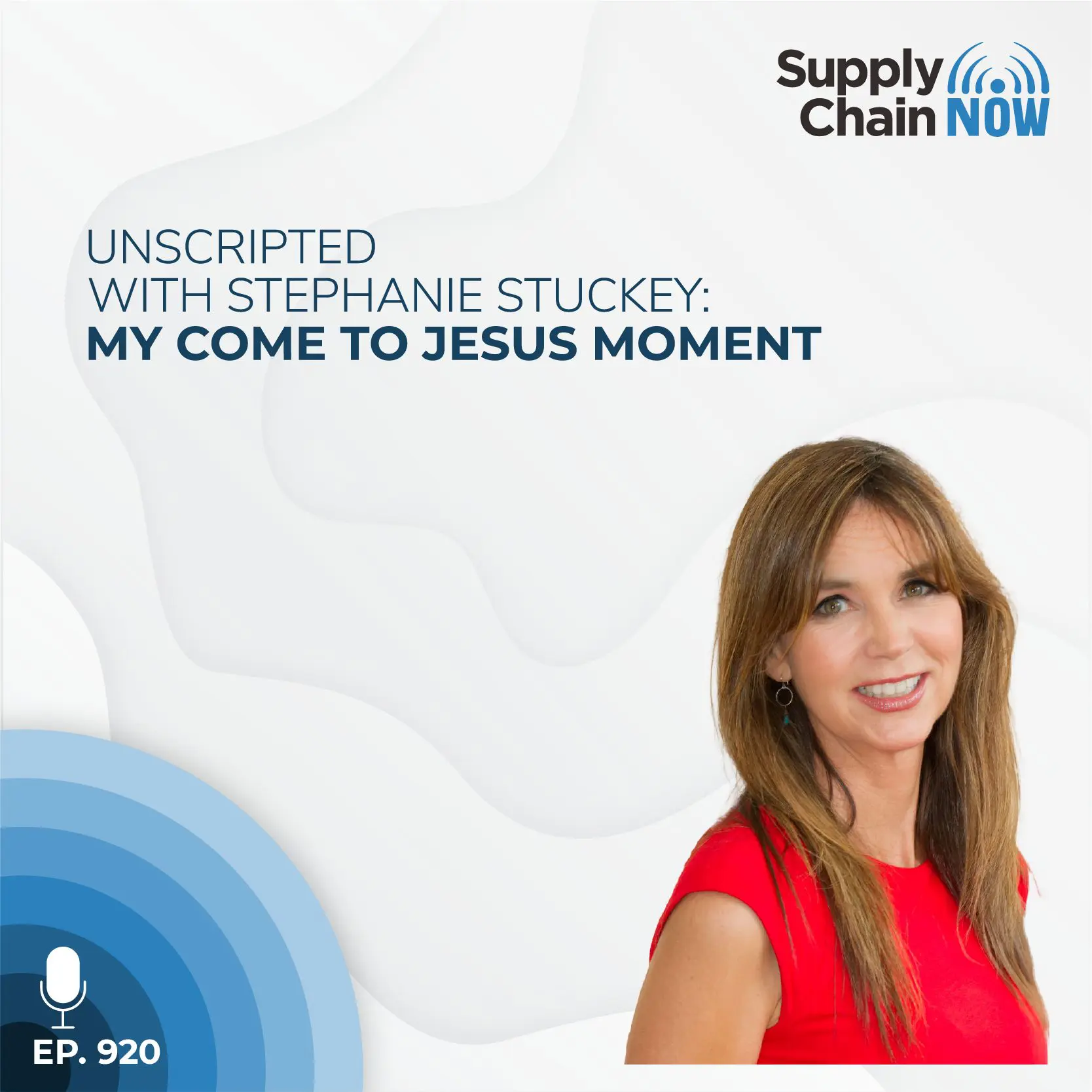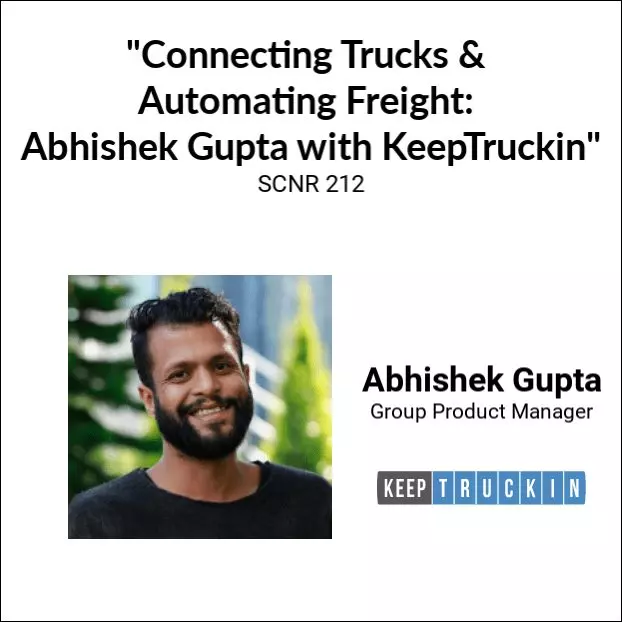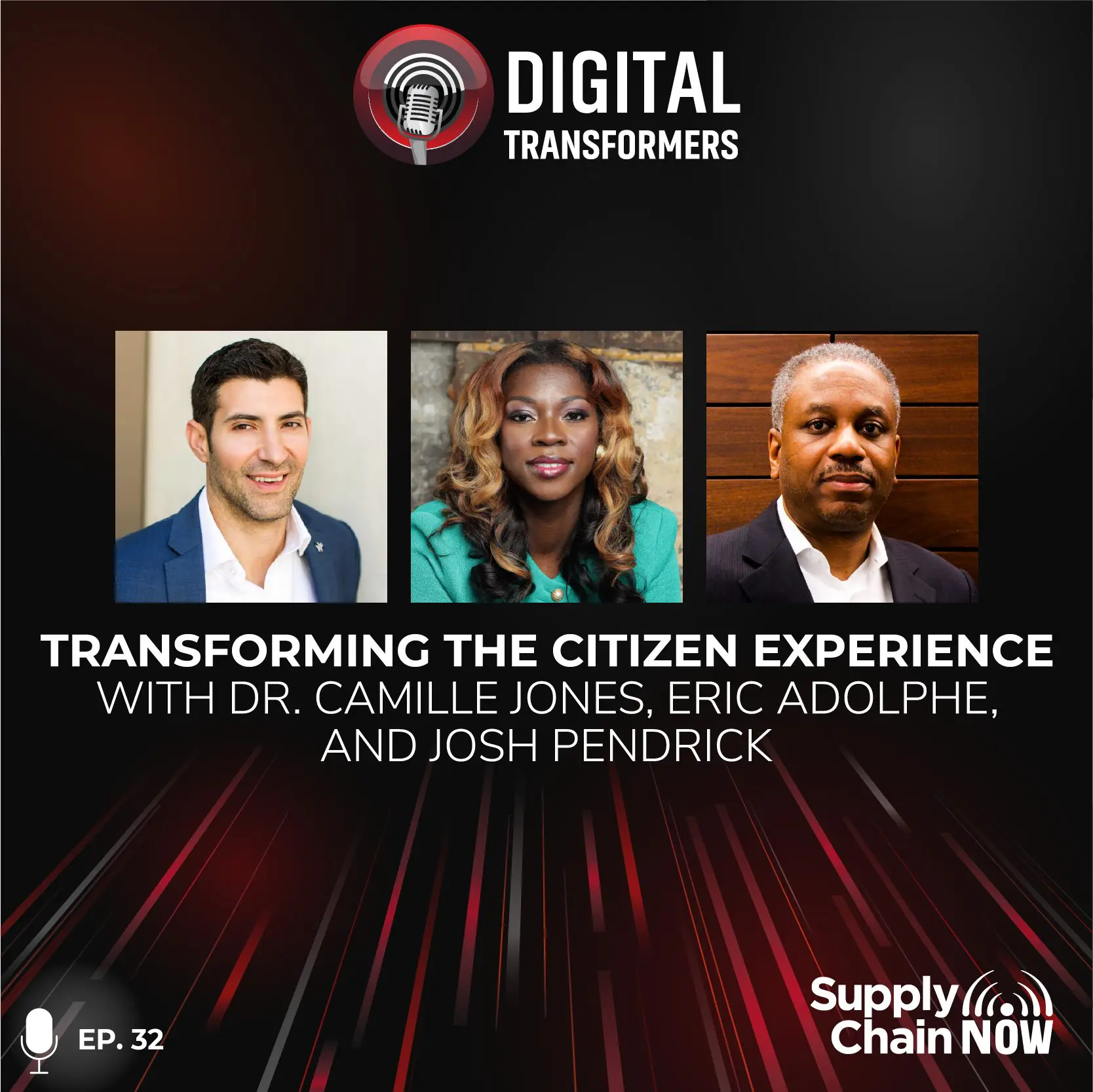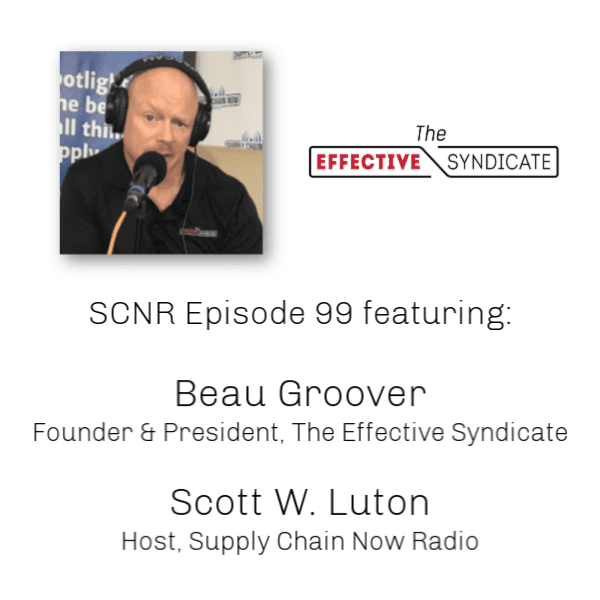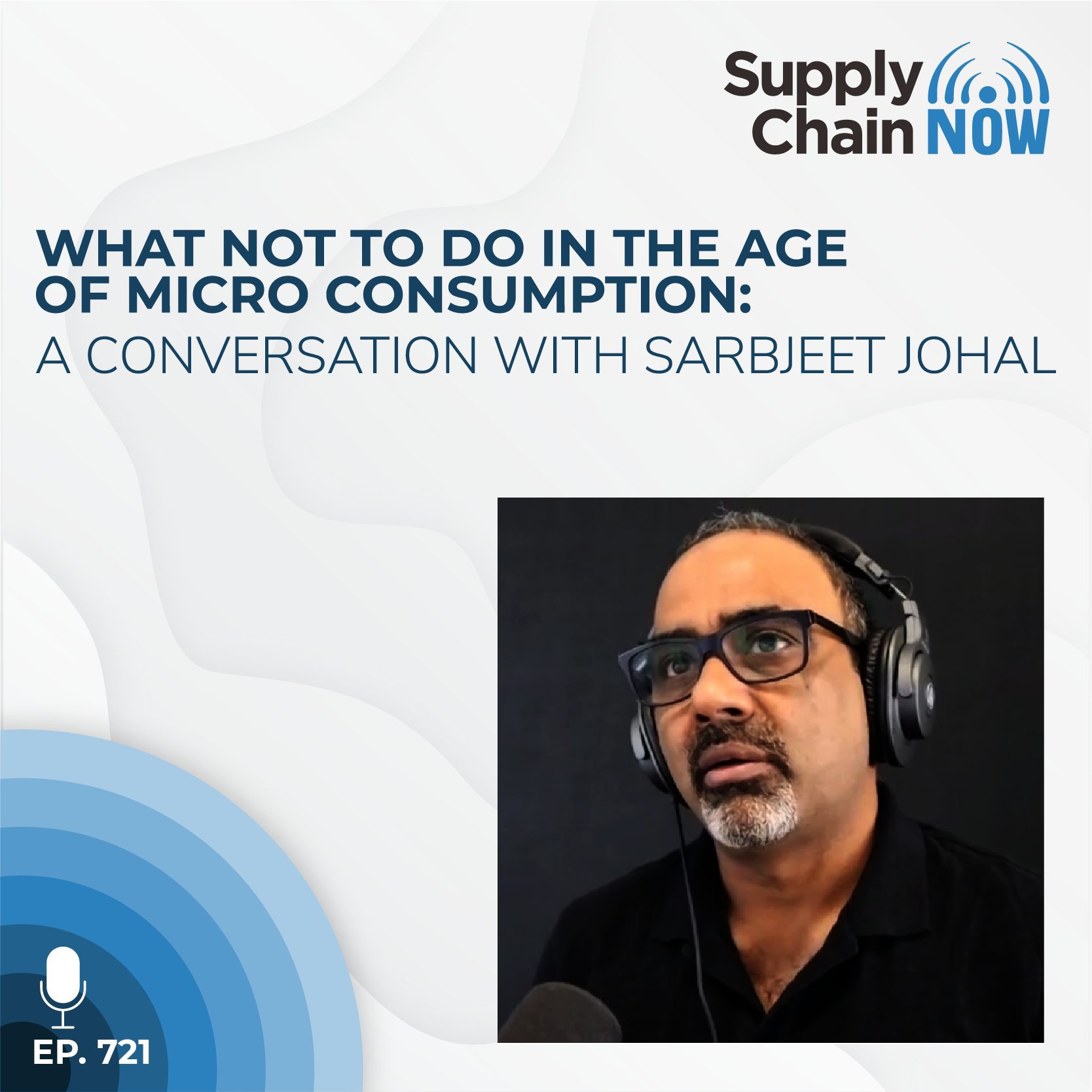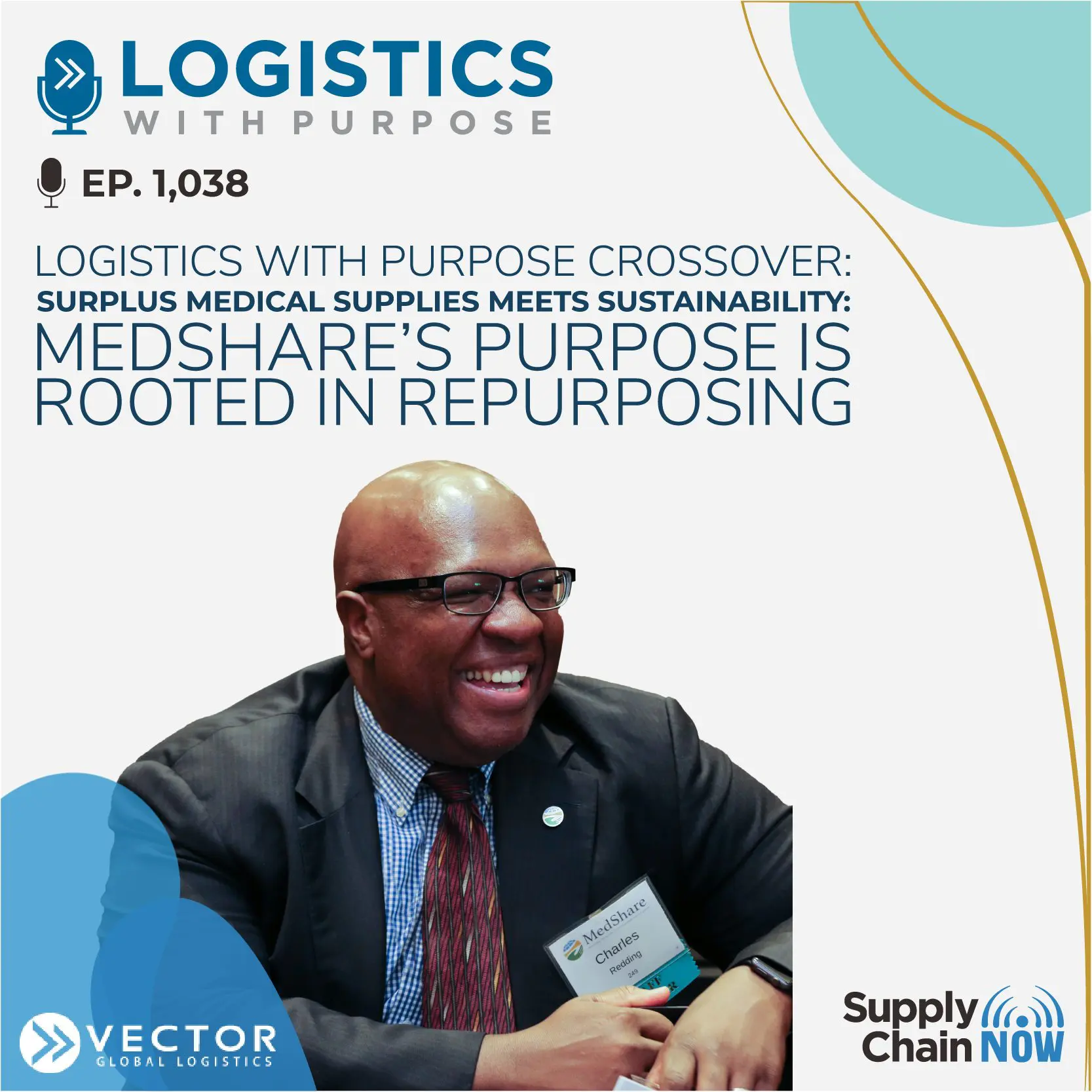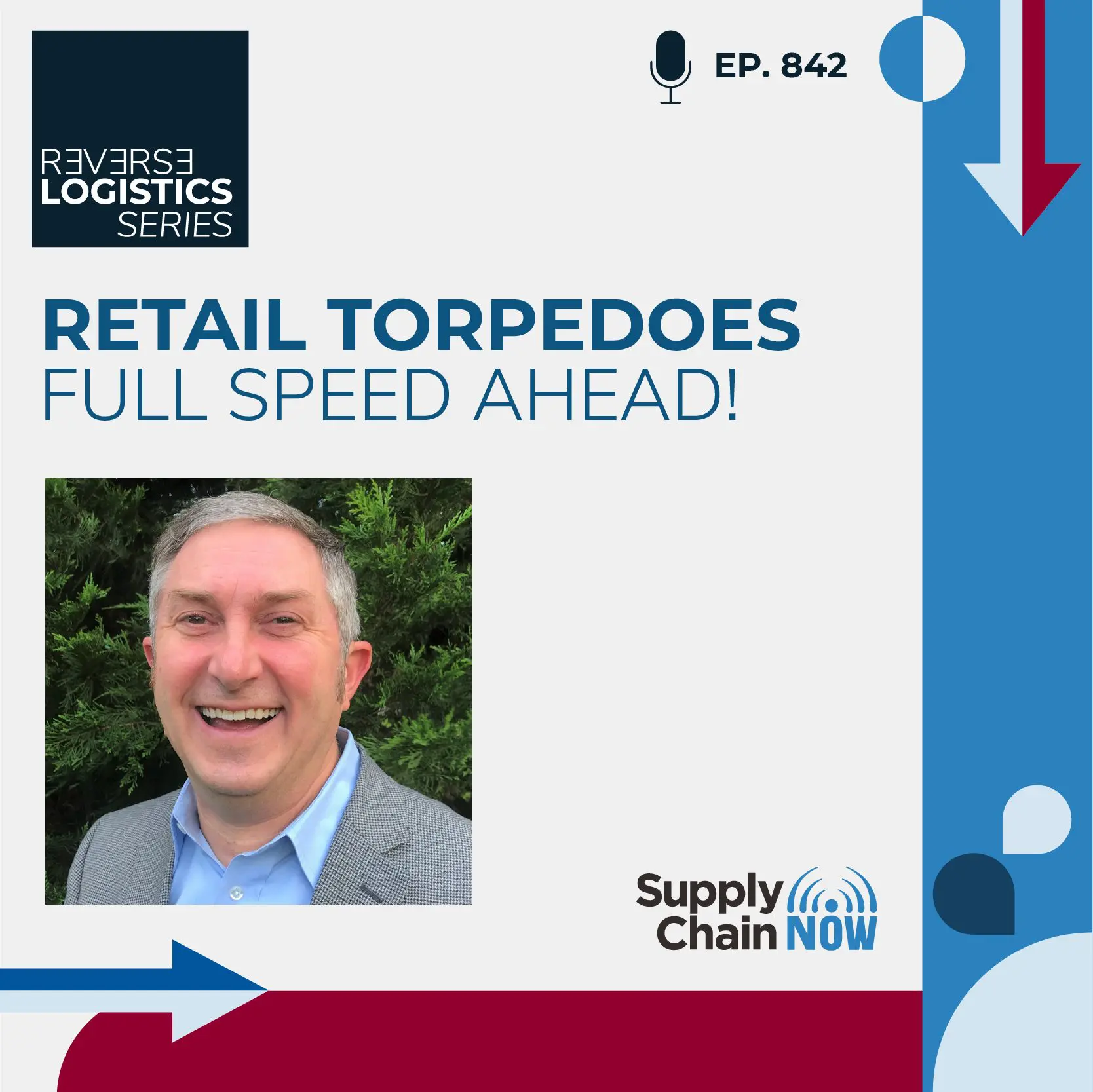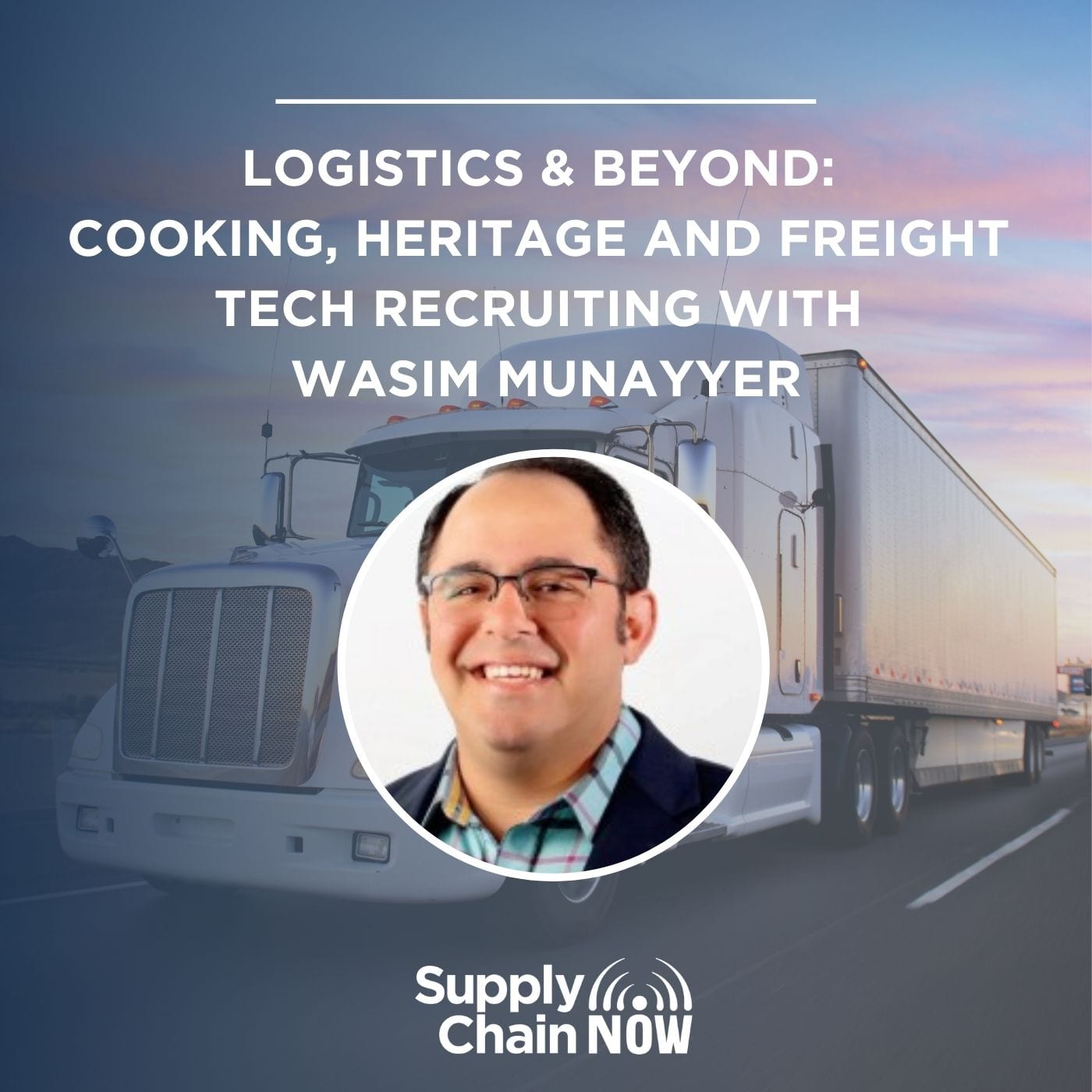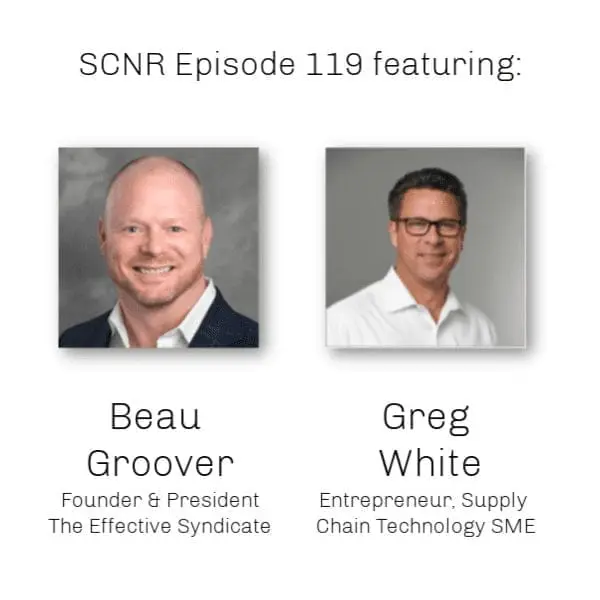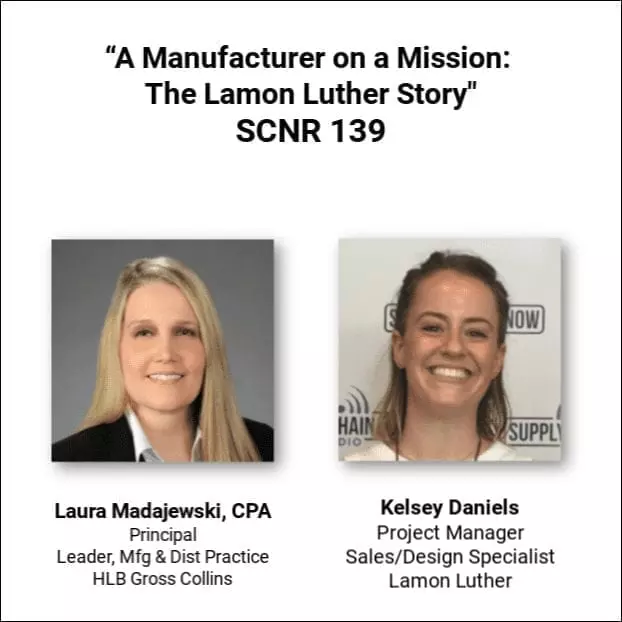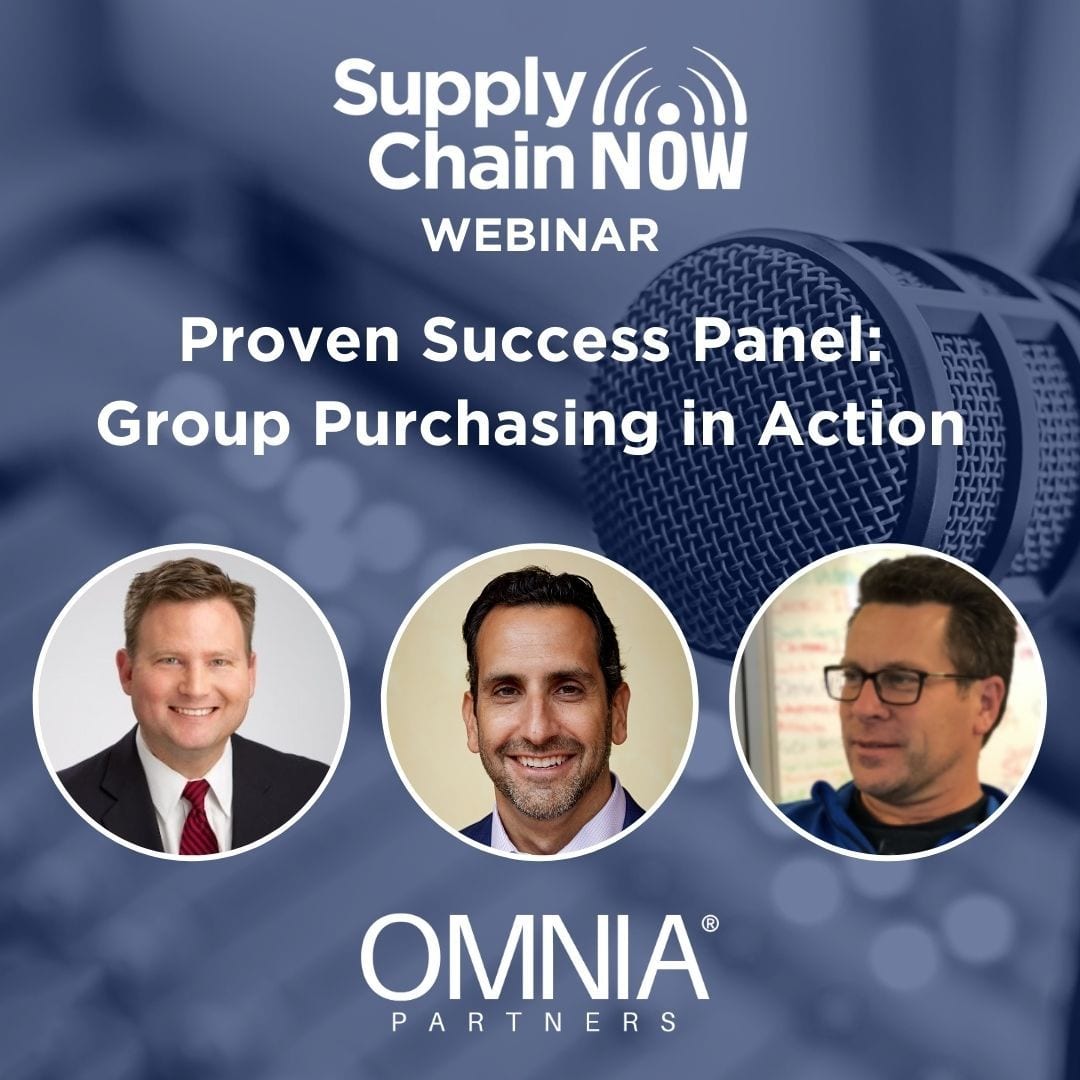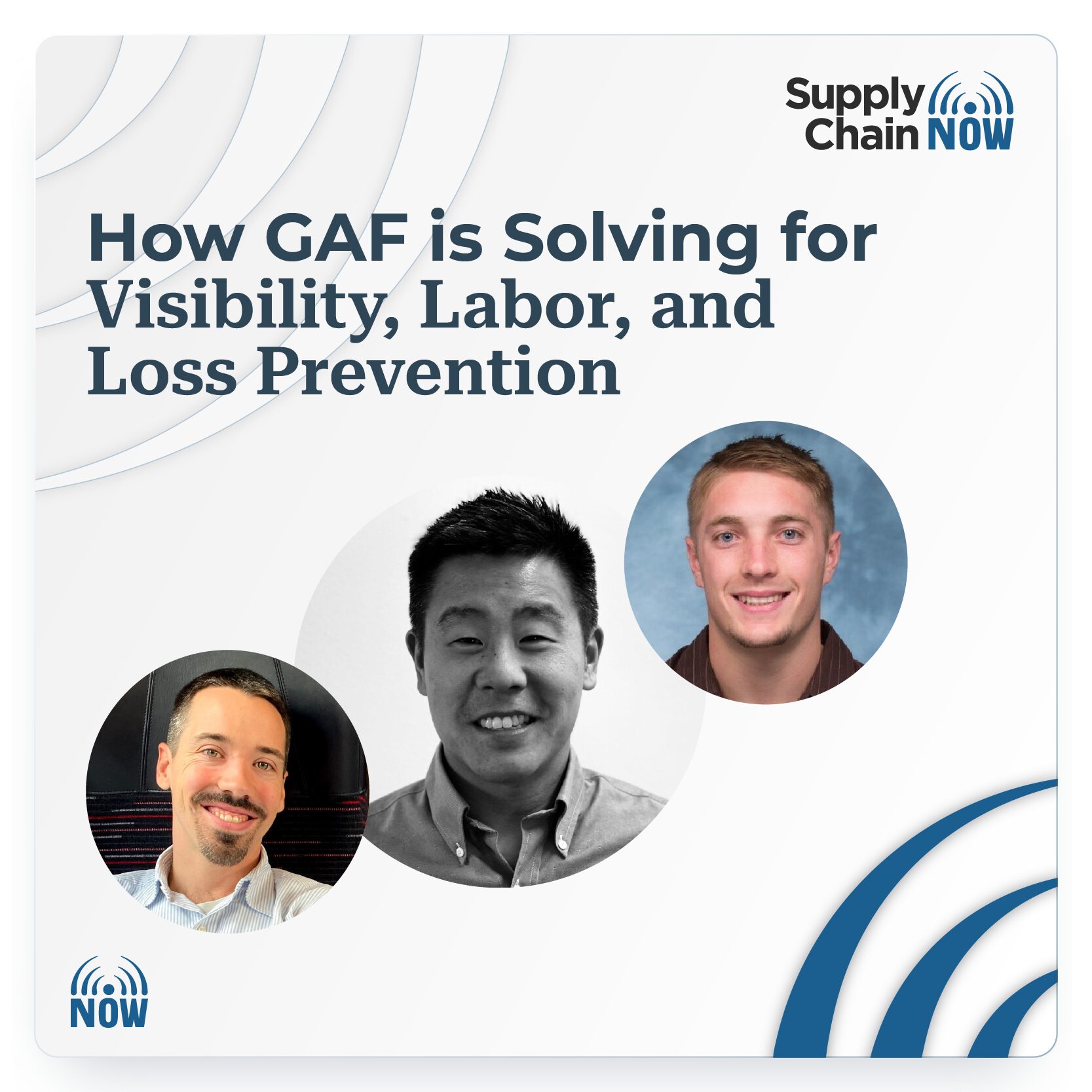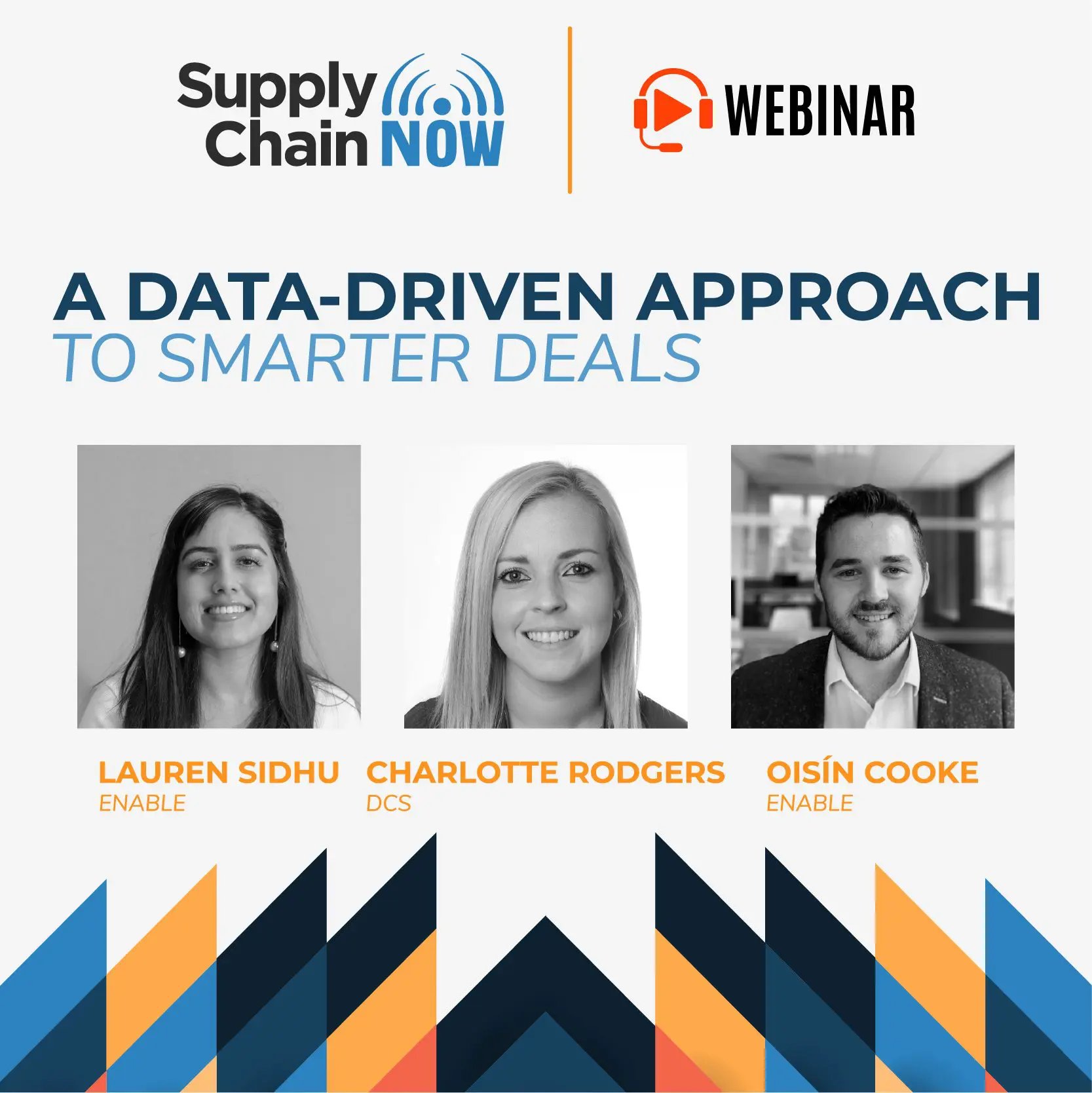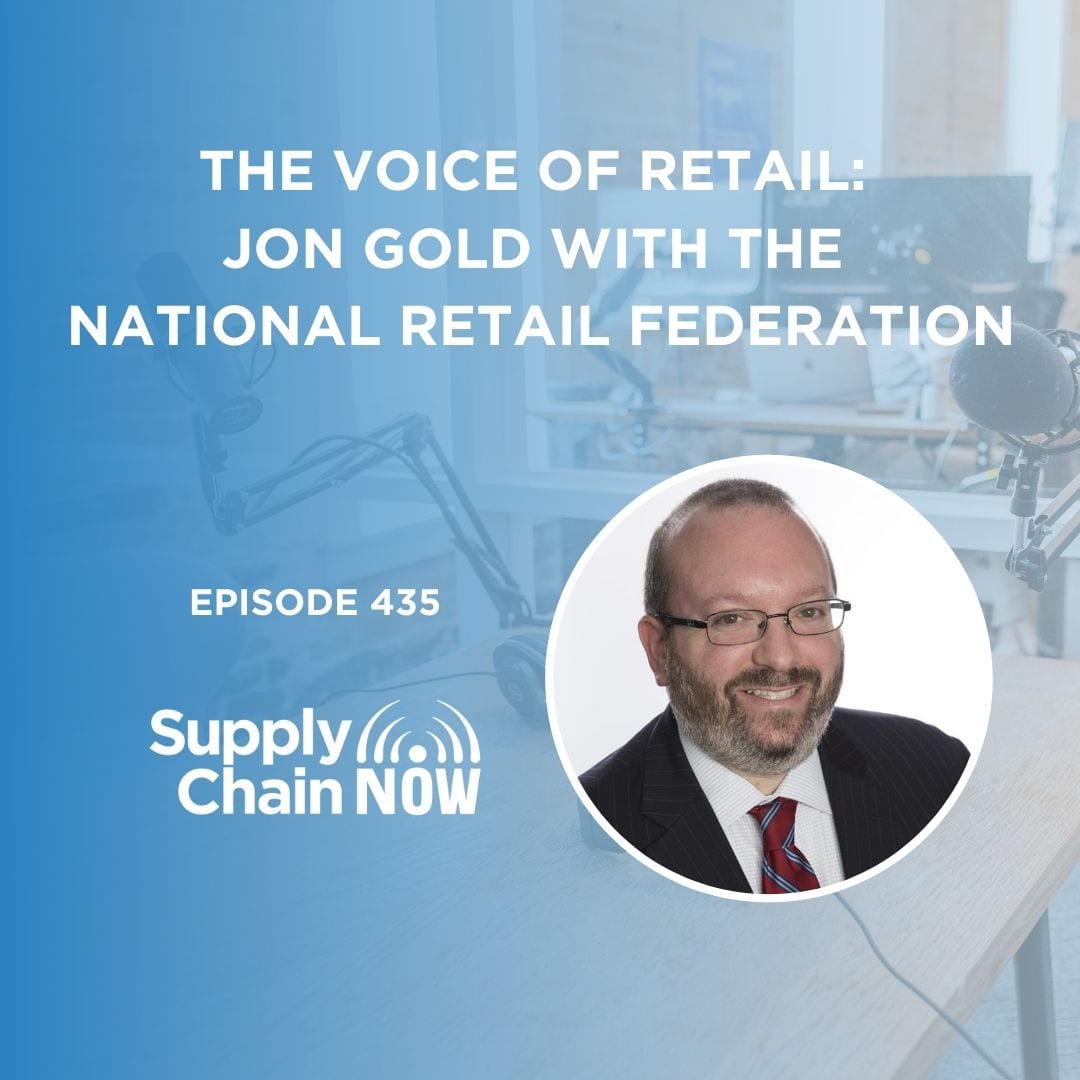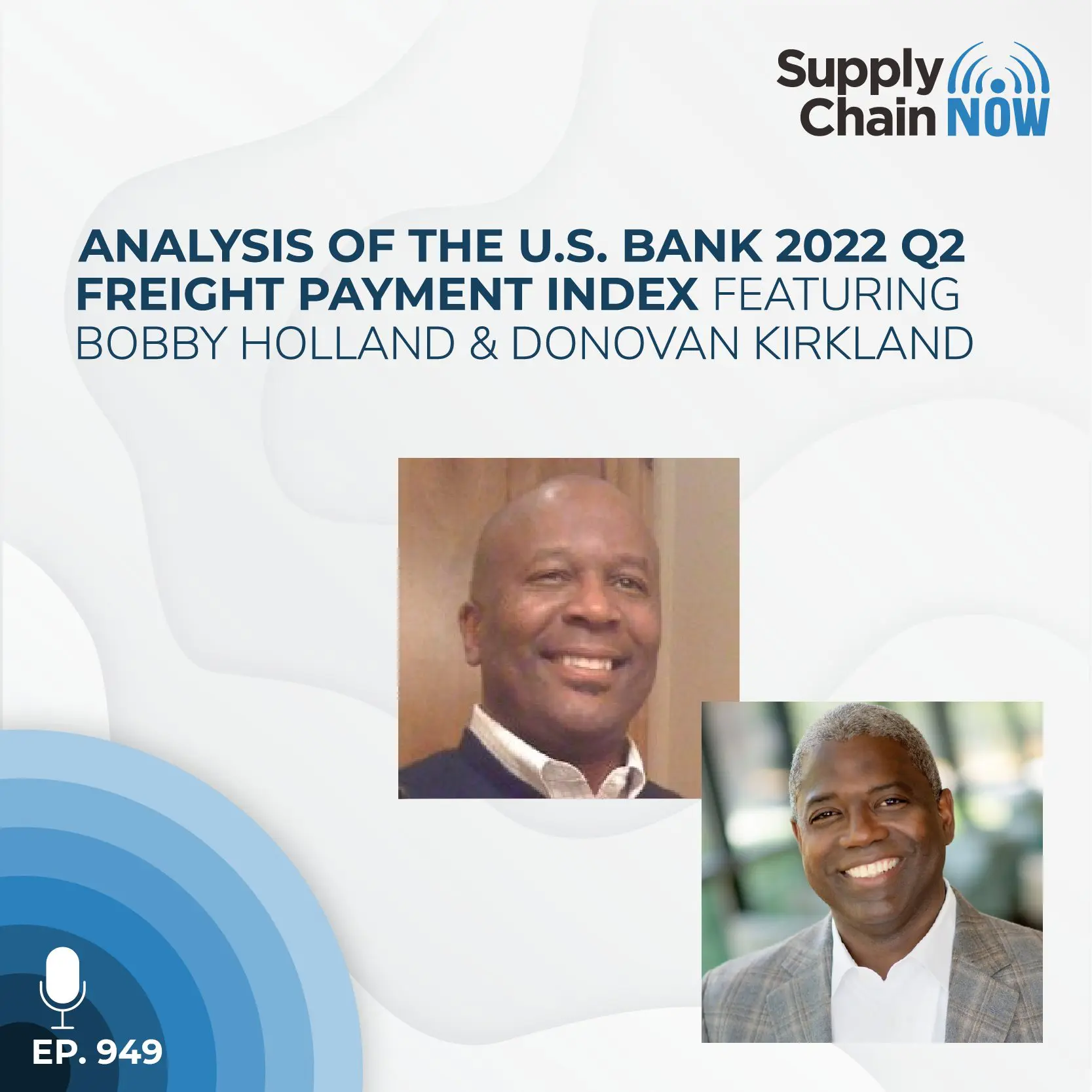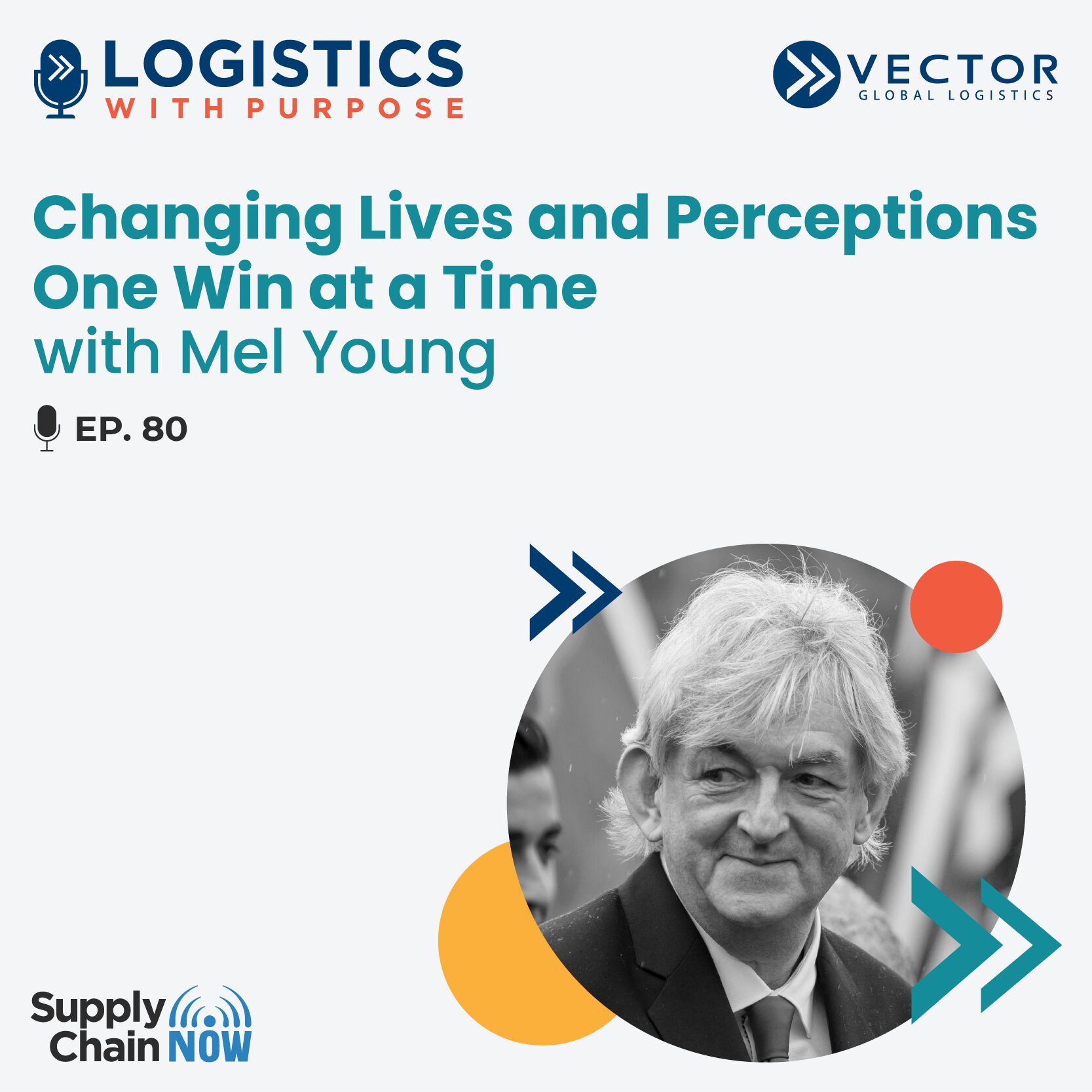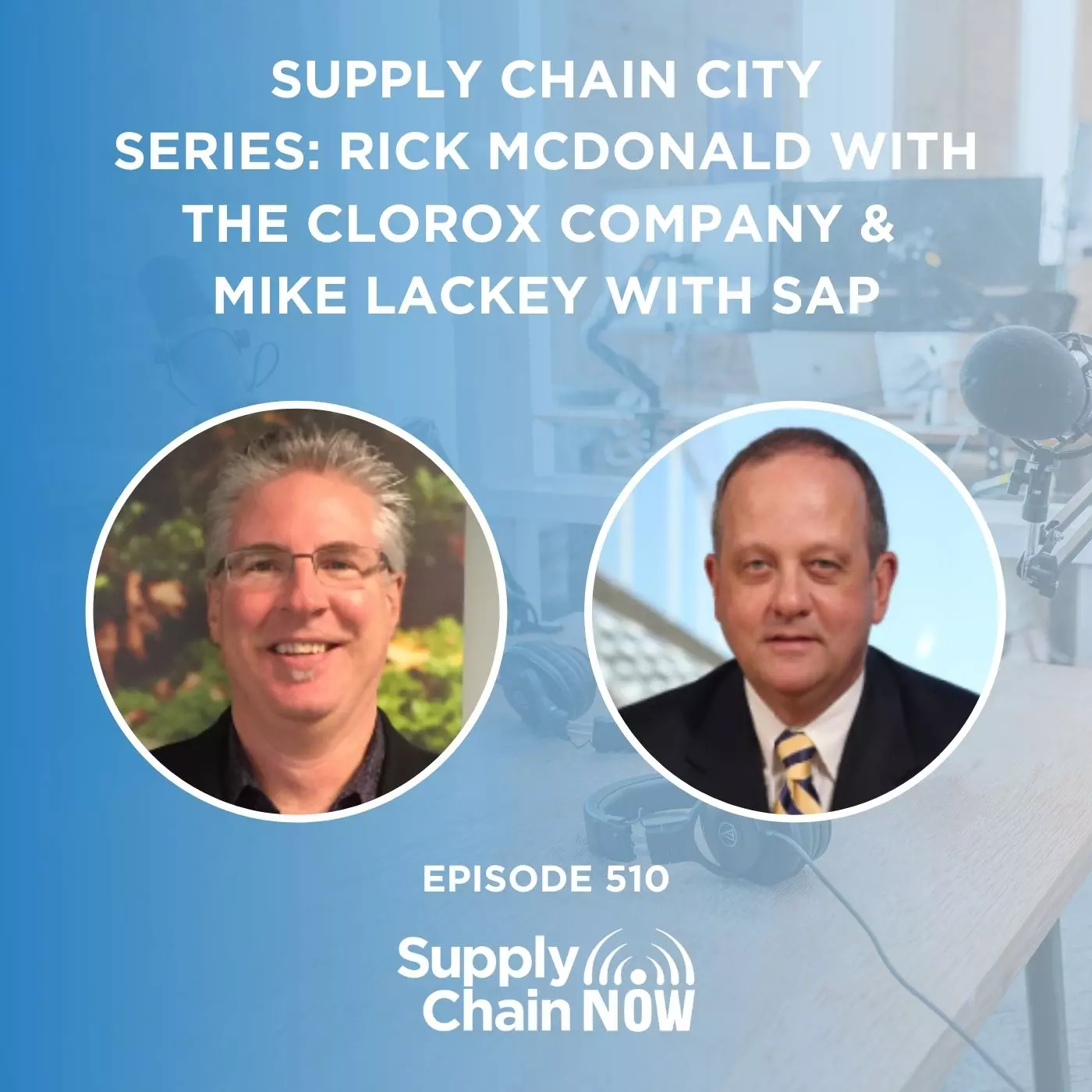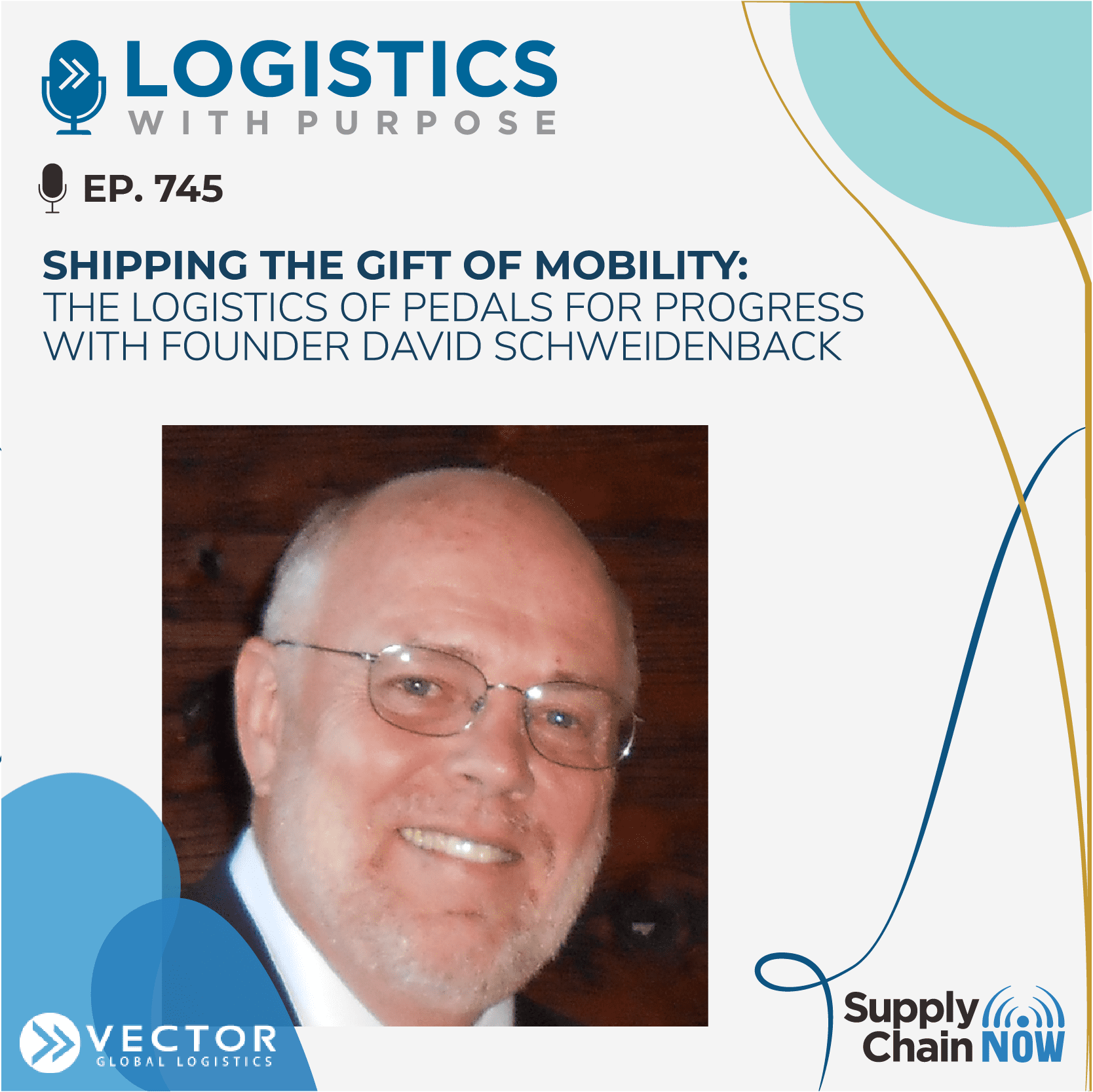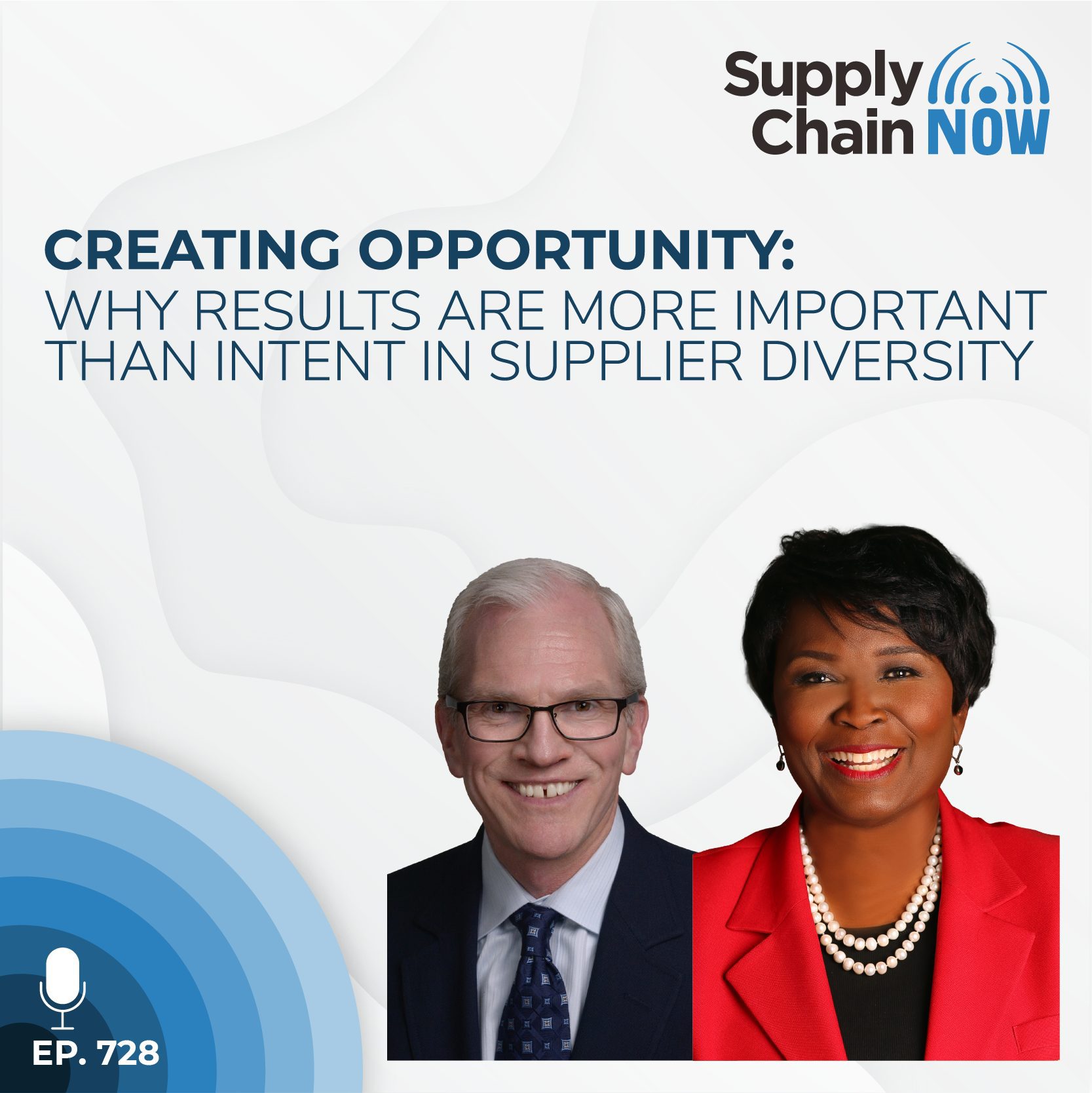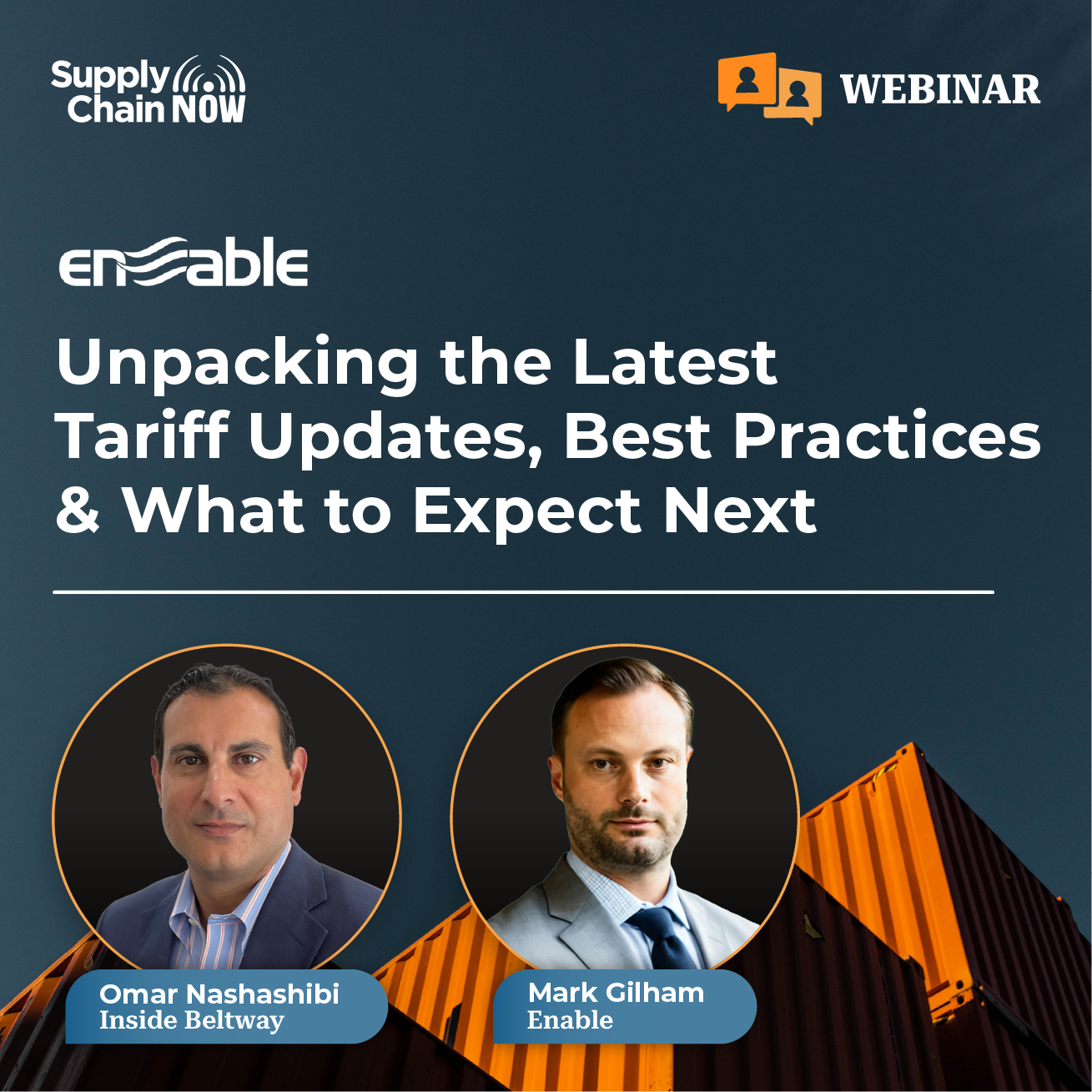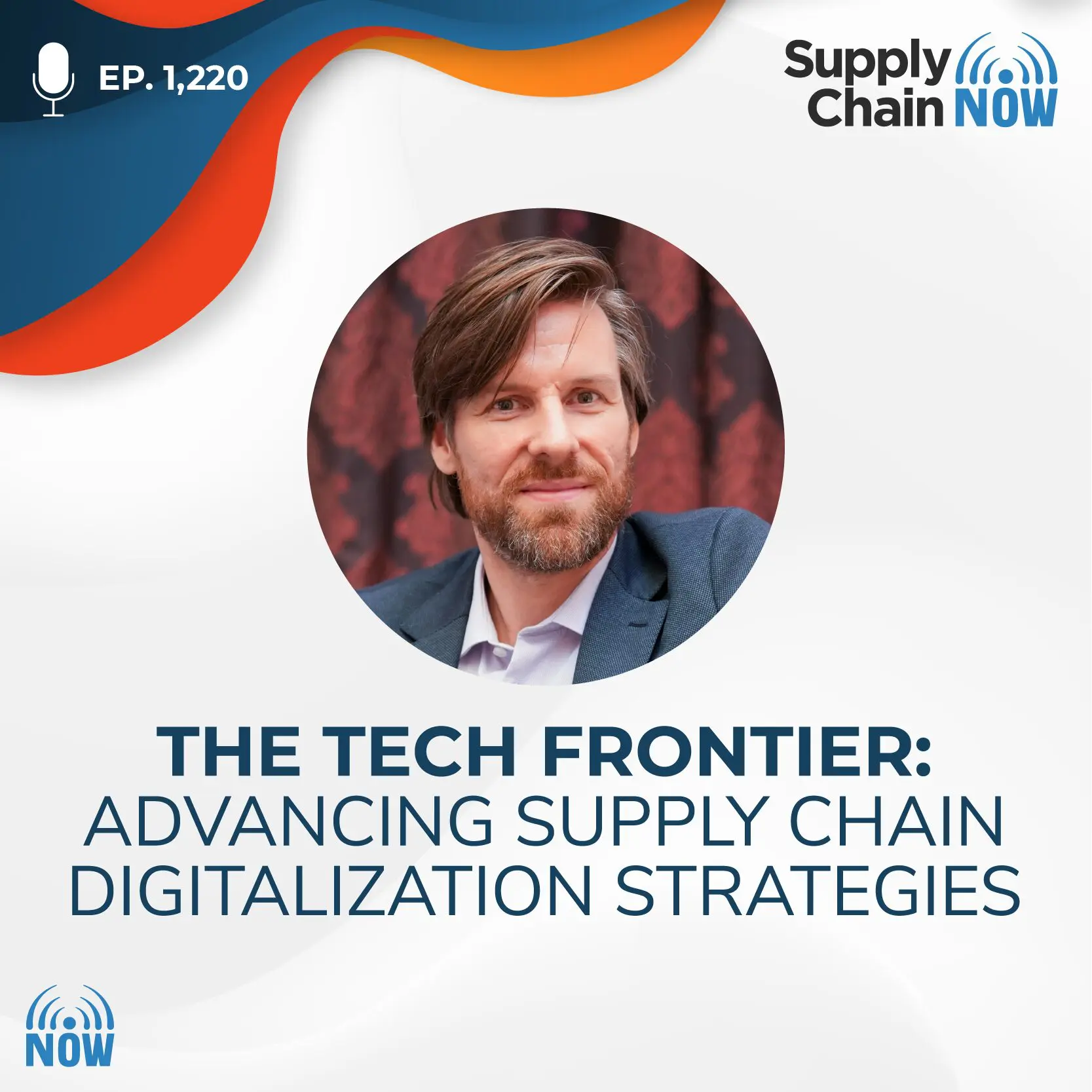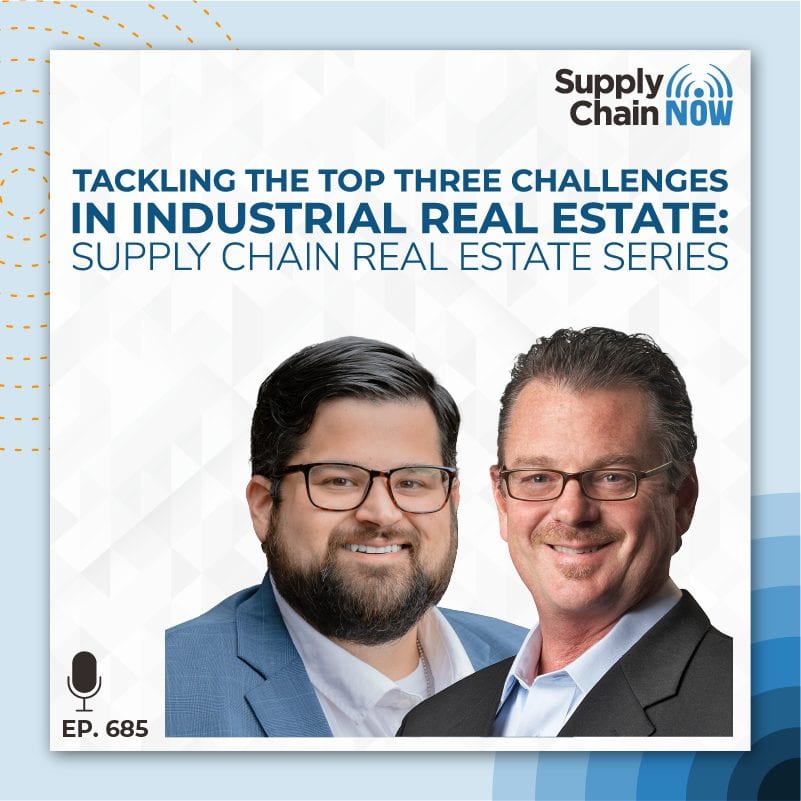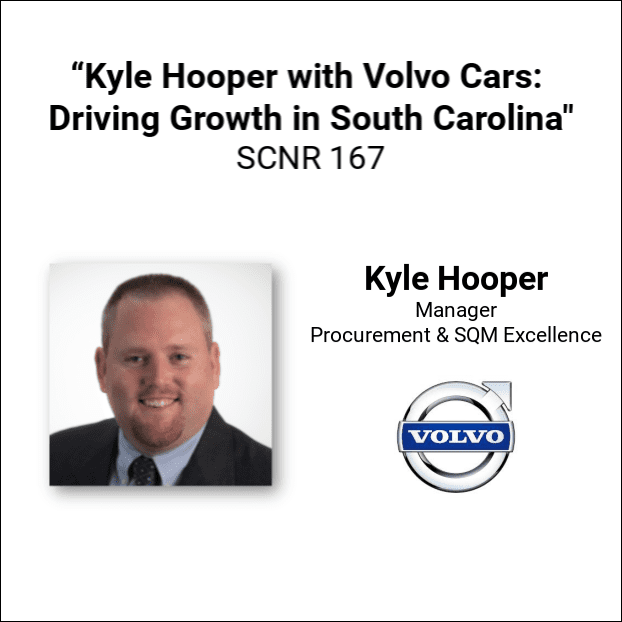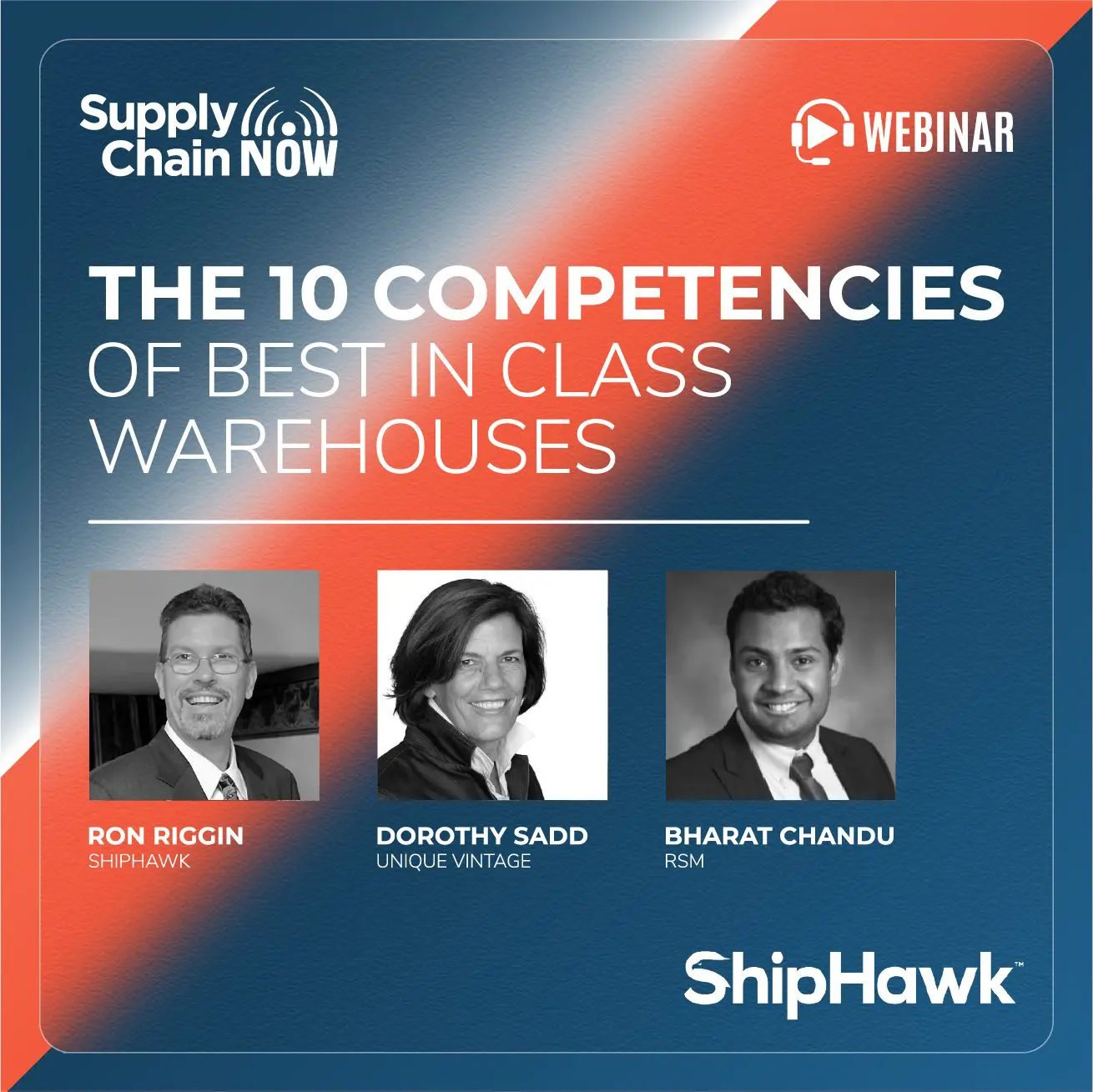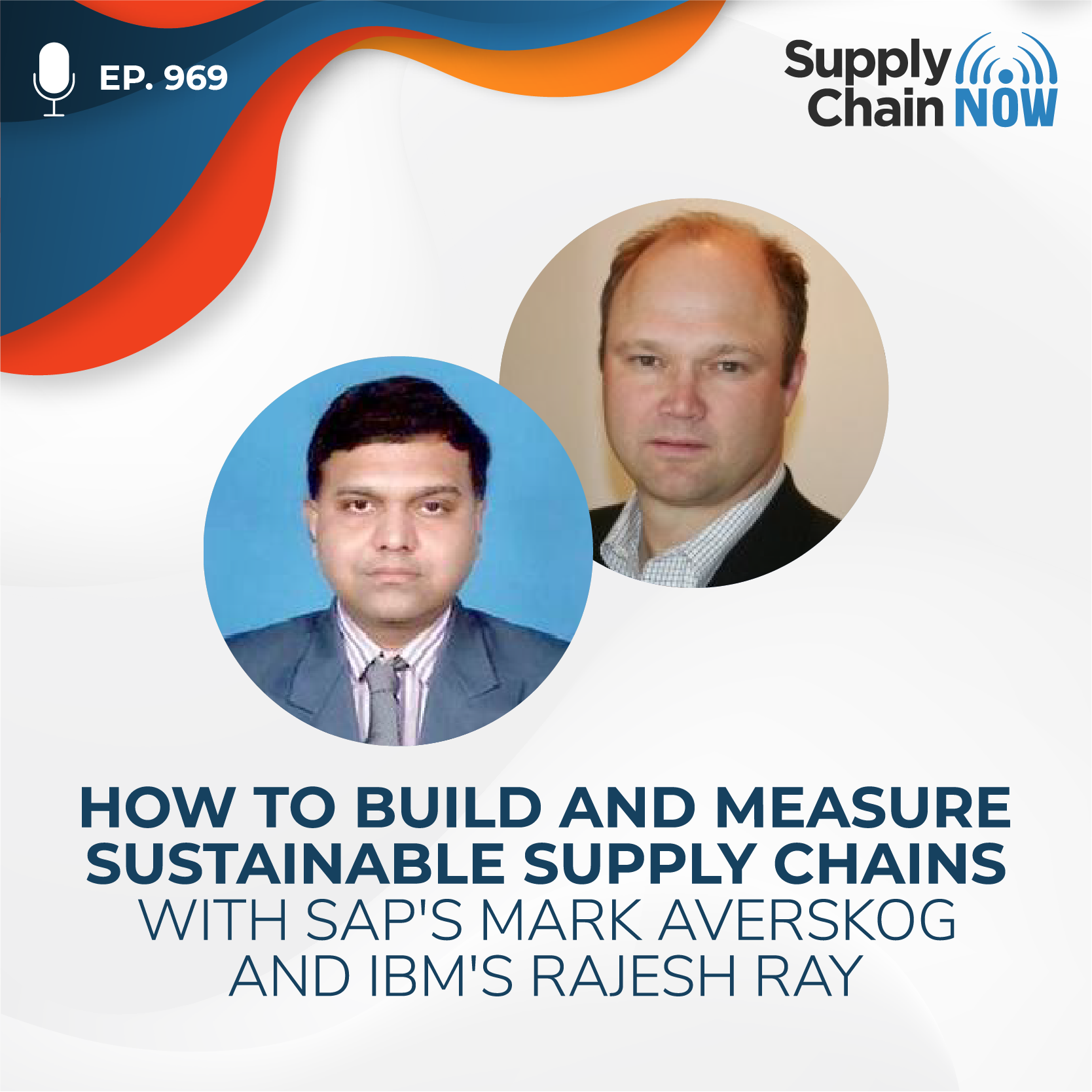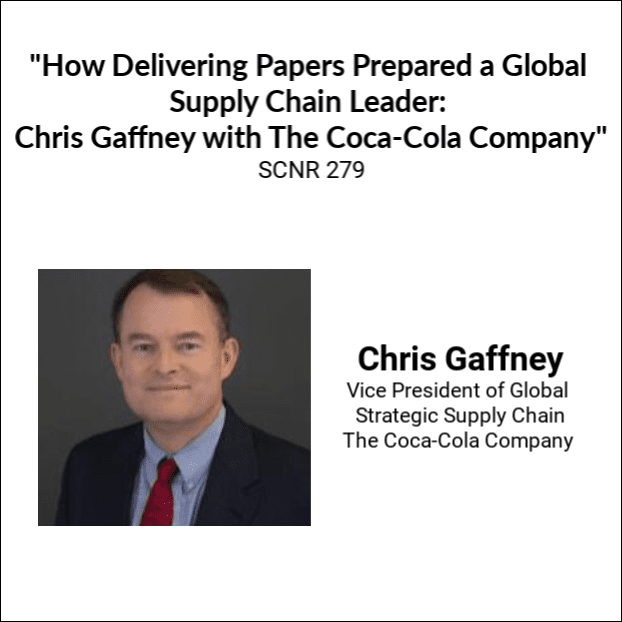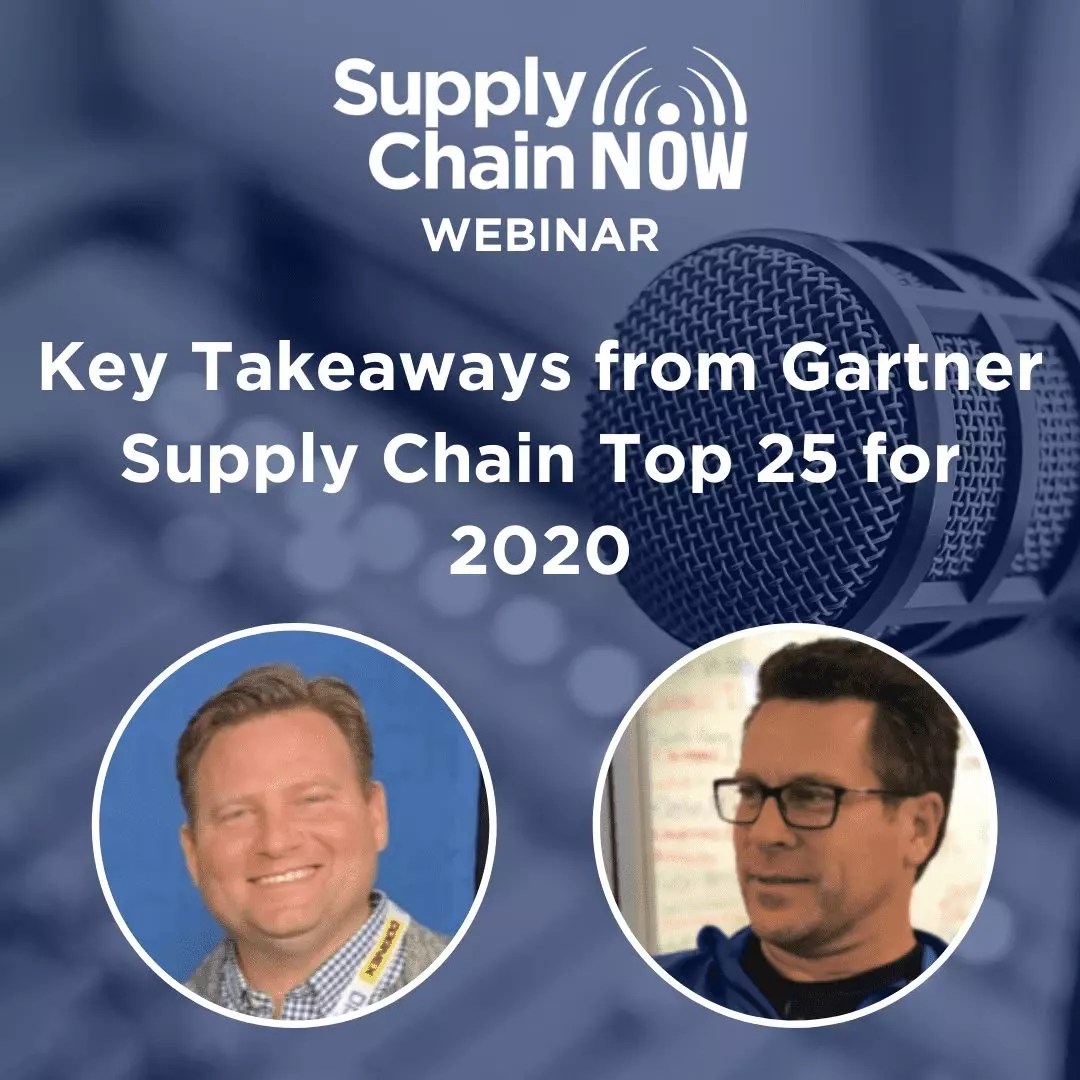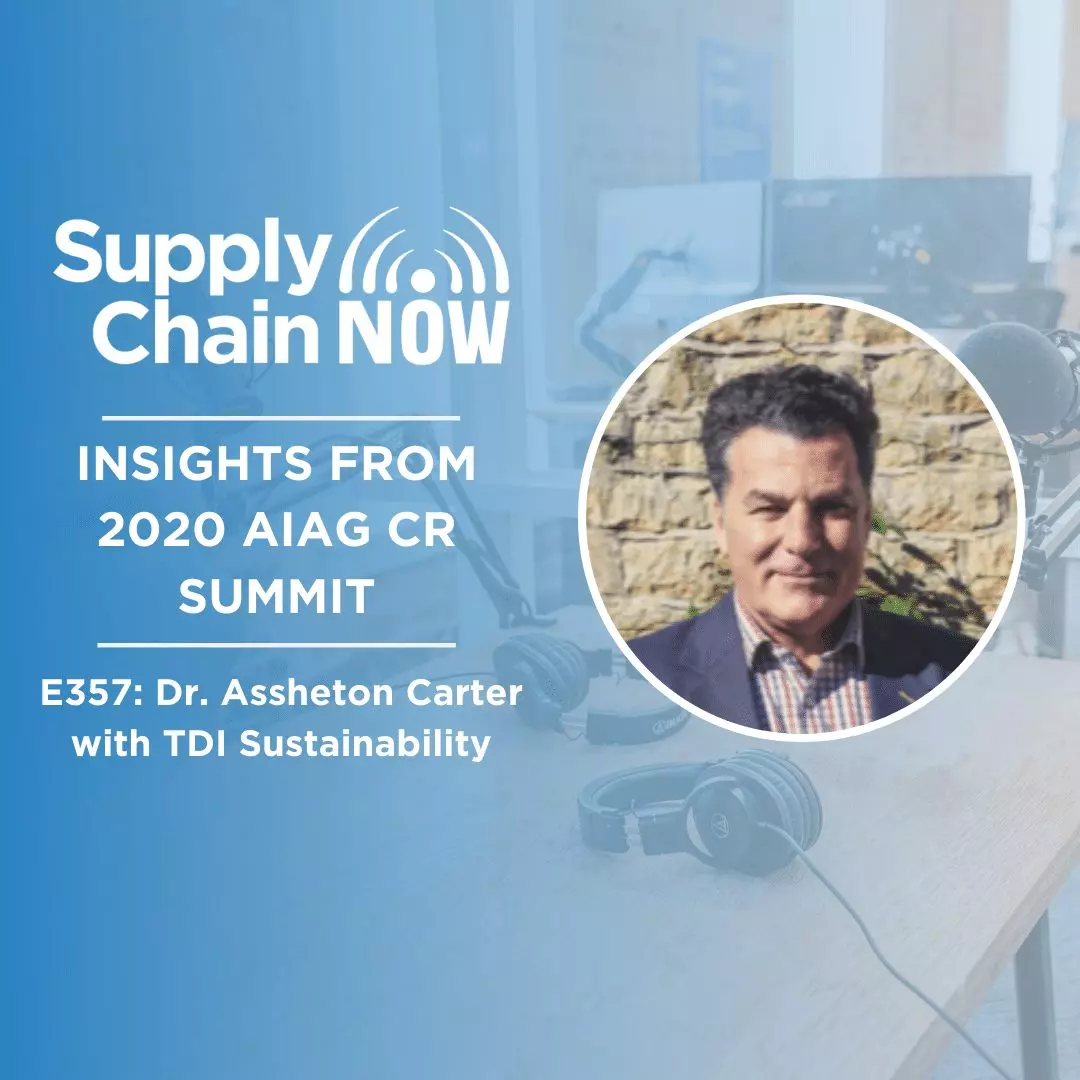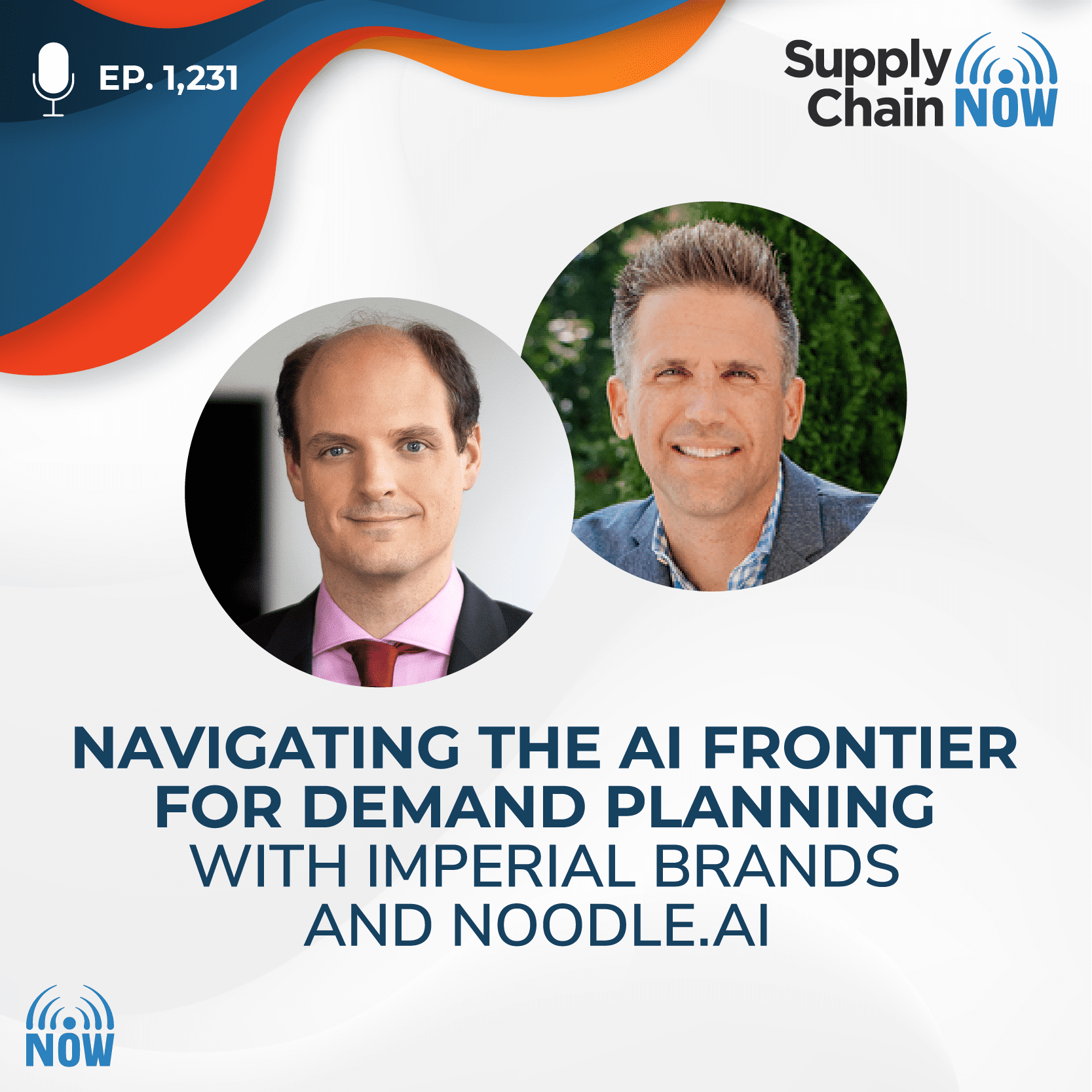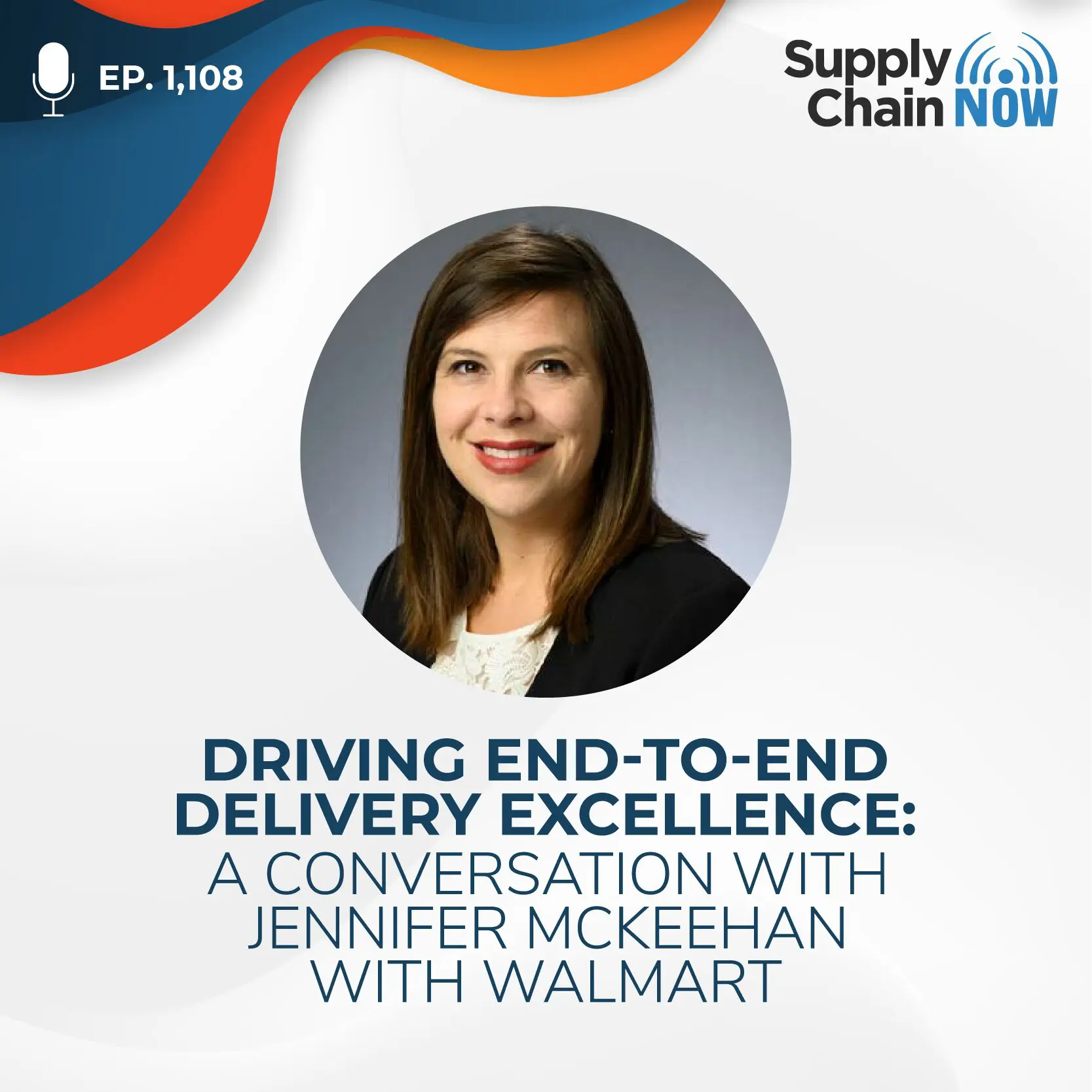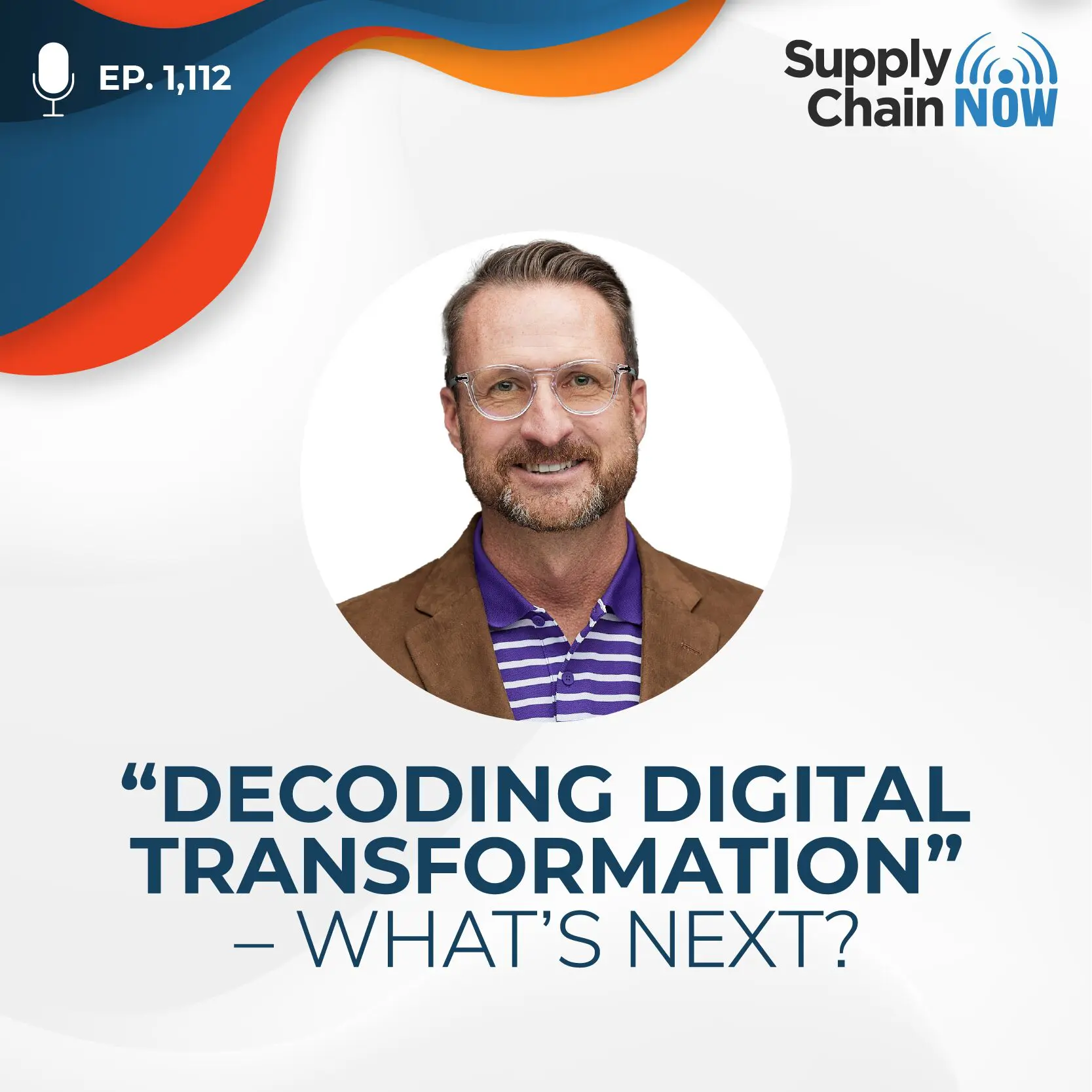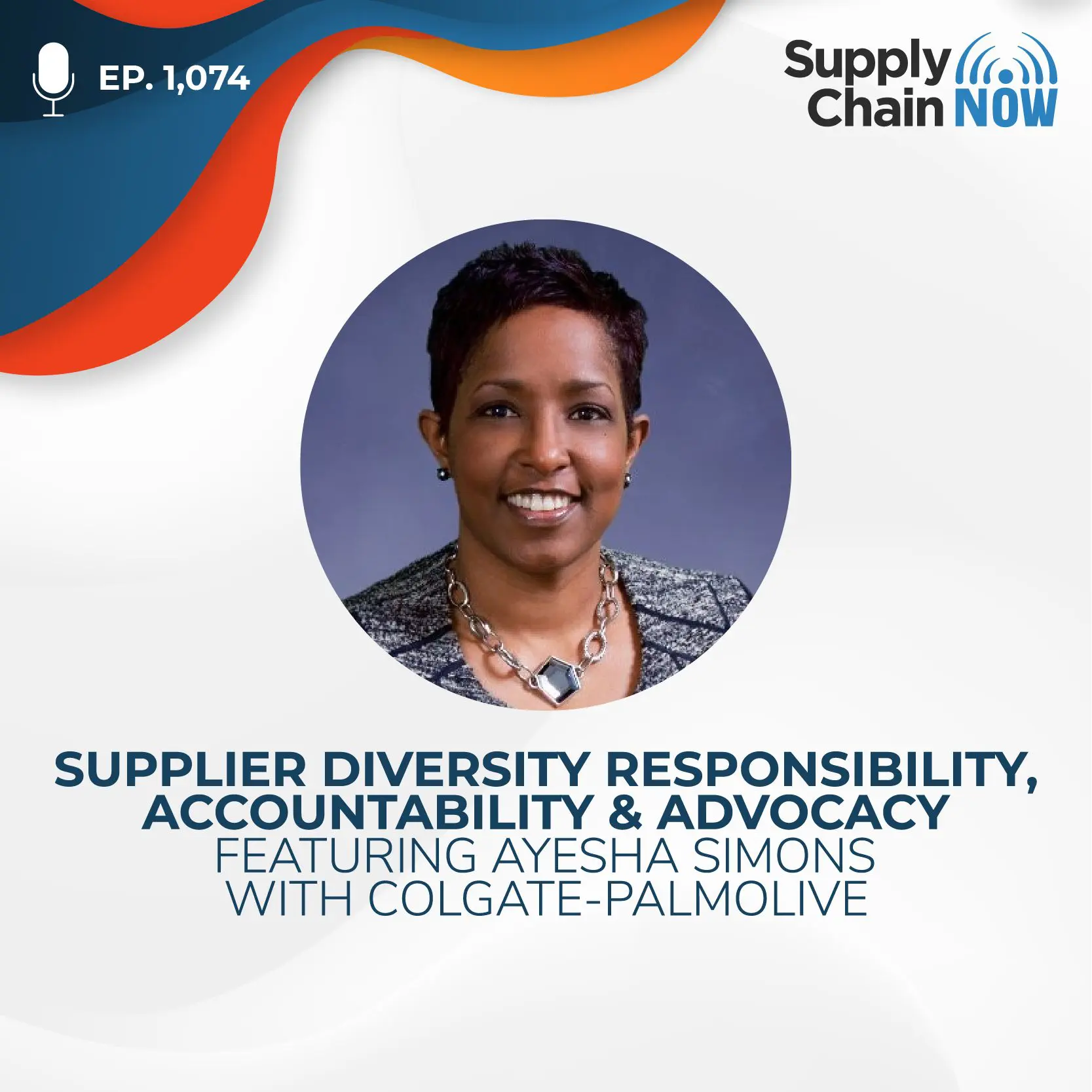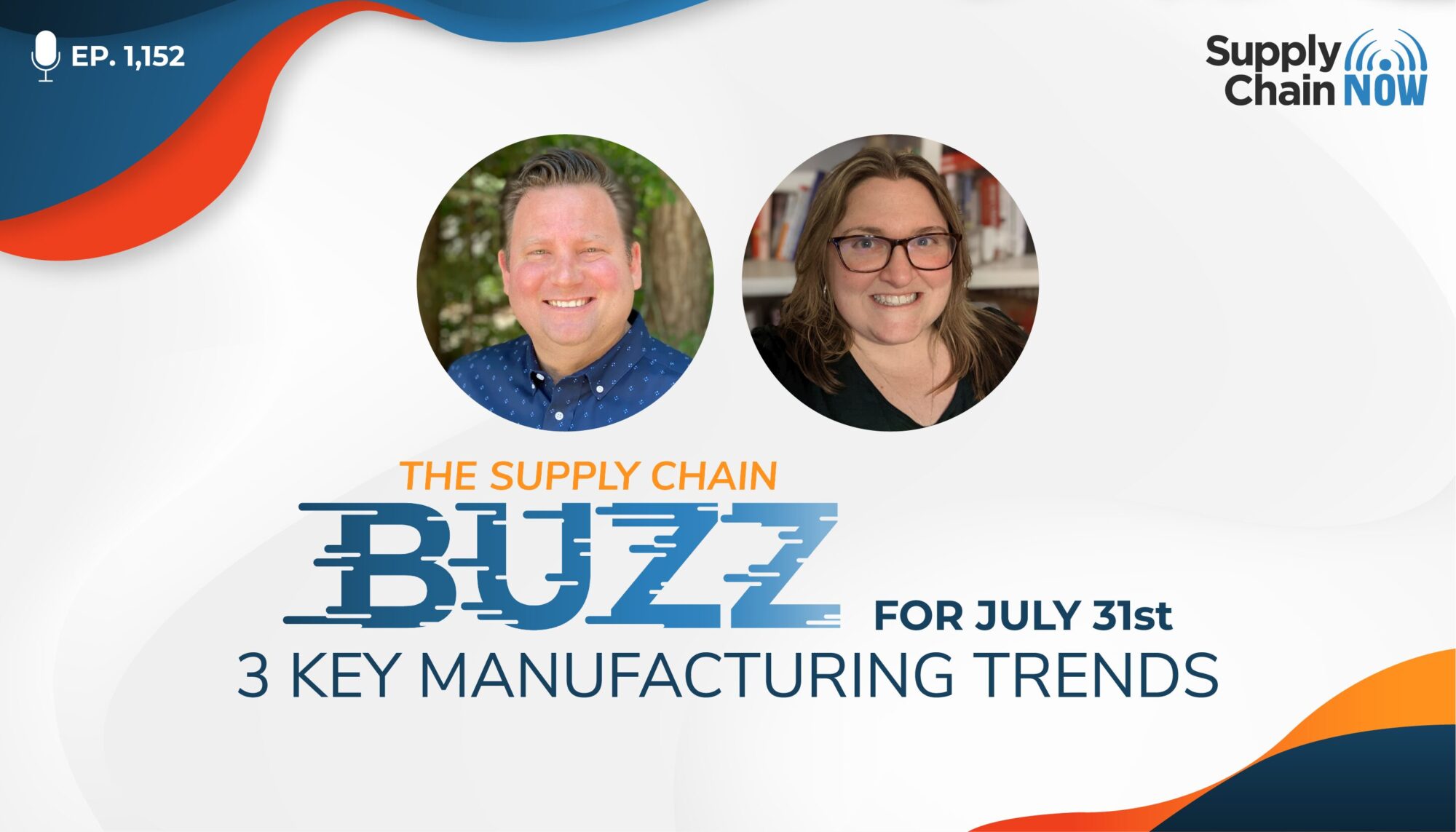
Whether you're in automotive manufacturing, aerospace manufacturing, medical device manufacturing, etc. you're likely following all sorts of government regulations and policies, cybersecurity requirements, and requirements from the Securities Exchange Commission.
- Allison Giddens, co-President at Win-Tech
Episode Summary
The Supply Chain Buzz is Supply Chain Now’s regular Monday livestream, held at 12n ET each week. This show focuses on some of the leading stories from global supply chain and global business, always with special guests – the most important of which is the live audience!
This week’s edition of The Buzz featured Allison Giddens. Allison is the co-President at Win-Tech, a veteran-owned, woman-owned small business that specialized in aerospace precision machined parts. When it comes to top trends in manufacturing, she has her finger on the pulse.
In this livestream, created in collaboration with a live Supply Chain Now audience, Scott and Allison discussed:
• The tentative deal between UPS and the Teamsters union which (hopefully) averts a massive labor strike, and what the new terms mean for shippers and consumers
• Bidding farewell to Yellow Freight, a major player in the LTL space, as they declare bankruptcy
• A bill before the U.S. Senate that would boost domestic pharmaceutical production and supply for critical medicines
• Allison’s three key manufacturing trends, and what supply chain professionals need to know about risk management, government regulations, and technology
Episode Transcript
Intro/Outro (00:03):
Welcome to Supply Chain. Now, the voice of global supply chain supply chain now focuses on the best in the business for our worldwide audience, the people, the technologies, the best practices, and today’s critical issues, the challenges and opportunities. Stay tuned to hear from those Making Global Business happen right here on supply chain now.
Scott Luton (00:31):
Hey, hey. Good morning, good afternoon, good evening, Scott Luton and special guest, Allison Giddens here with you on Supply Chain. Now, welcome to today’s live stream, Allison, how are you doing today? I’m
Allison Giddens (00:42):
Good. How are you? Happy Monday.
Scott Luton (00:44):
Wonderful, wonderful. Very happy Monday. Great weekend. It’s gonna be a beautiful but hot week here in the Metro Atlanta area, right? Uh, our Atlanta Braves folks, if you’re keeping score at home, they swept the talented Milwaukee Brewers. Allison, the Brewers were in first place at least over the weekend, so it was a good weekend for our Atlanta sports team. But, um, we’ve got a big show teed up here today, don’t we, Allison?
Allison Giddens (01:08):
We do lots of good stuff on the radar.
Scott Luton (01:10):
Lots of good stuff, right? So folks, we’re gonna talk about some of the leading news stories across global business here today, but we’re also, um, here on today’s supply chain Buzz gonna be learning Allison’s expertise and point of view, uh, and perspective, especially when it comes to the manufacturing industry. Uh, Allison’s gonna be sharing three key trends that’s gotta be on your radar, uh, if you’re a business leader, if you’re a supply chain pro, you name it, uh, stemming from what’s going on in manufacturing. So, Allison, we are excited, um, and folks, as always, supply chain Buzz live show that comes at you every Monday at 12 in Eastern time. So if you’re listening to this, maybe on the podcast replay, we invite you to come check us out, uh, and join us live on one of your social media channels of your choosing each Monday at 12 noon. No, Alison, give me one, uh, give me one highlight, other than we’ve already talked about the Atlanta Braves over the weekend. Gimme one other highlight to your weekend. Uh,
Allison Giddens (02:10):
Oh, man. I, I didn’t really have an exciting weekend <laugh>. Um, I, uh, let’s just say the laundry is not nearly as piled high as it was.
Scott Luton (02:21):
Hey, laundry is exciting these days. When you get a chance to shut things down, step away from email and the phone and text and all that stuff, and do laundry. That’s funny. Um, all right, so folks, what, tell us about your weekend. What was one of your highlights of your weekend? We wanna hear from you, so give us your take, whether it’s something fun or something related to some of these news stories we’re gonna be tackling. Give us your take in the cheap seats, ak, the sky box, the comment section, whatever you want to call it. Uh, look forward to weaving that in throughout the show. Okay, so let’s say a look to a few folks. Uh, Alison, man, we’ve got a packed house here today. Josh Goody from Seattle says, good morning and happy Monday, and end of month for everybody. Great to see you, Josh. That’s right.
Allison Giddens (03:00):
How are we seven months into the year? Isn’t
Scott Luton (03:04):
That unbelievable? Joseph is tuned in from Sonoma, California. I wonder what the weather is like out in Sonoma, California. Alison, any guesses? Take a, a guess in the dark in terms of the temperature. It’s a
Allison Giddens (03:15):
Dry heat. It’s a dry heat. <laugh>.
Scott Luton (03:17):
Okay. Uh, David’s tuned in from Kenya via LinkedIn. Great to see you, David. Uh, welcome, welcome. Oh, Gino is back with us. Jean Pledger from North Alabama. Great to see you, uh, Audrey tuned in via LinkedIn. Audrey, let us know where you’re dialed in from. Great to see you here today. Catherine says, Hey, for her weekend, she ran her first five K in Birmingham and went to a spin class.
Allison Giddens (03:40):
I feel so unproductive now.
Scott Luton (03:42):
<laugh>, Alison, I, I feel like I just burned. Thanks,
Allison Giddens (03:44):
Catherine.
Scott Luton (03:45):
<laugh>. I feel like I just burned 57 calories reading that, uh, that what Catherine’s weekend was like. So keep up the great work, as always, Joshua. Hey, great to see you there. Uh, as always, uh, Joshua part of the supply chain. Now fan. Great to see you via LinkedIn. Mom is tuned in. That’s right. Lee Luton, uh, the one only Lee Lutton from Aiken South Kaki. Great to see you, mom. Love you. Uh, John from Marietta, Jenny from Columbia, uh, via LinkedIn. Great to see everybody. All right, full house today, Alison. We gotta get to work, you know? Yes,
Allison Giddens (04:19):
We do. We do.
Scott Luton (04:20):
So I wanna share a cut. You know, we love, uh, offering up resources to folks. It’s one of our, the charges we take seriously, resources for advancing your organization or advancing your, your, your, your profession, your career. And in some cases, resources to take, get some downtime with, right? Some downtime. So I’m gonna bring up this graphic here if it will cooperate. Oh, my graphics, my graphics package isn’t working. See,
Allison Giddens (04:45):
You know what this is, this is live television. Everybody.
Scott Luton (04:48):
<laugh>. That’s
Allison Giddens (04:48):
What this
Scott Luton (04:49):
Is. Sometimes that happens. Lemme try it one more time here. We’re gonna try to, uh, work this one more time, folks. Hey, sometimes our computers don’t like Monday mornings either, so let’s see if this works. Ah, there we go. There
Allison Giddens (05:01):
We go.
Scott Luton (05:02):
There we go. All right, so folks, back to my resources segue. So if you want some, if you wanna look for, if find a good movie to watch, right? And you’ve kind of run through your Netflix, uh, list. All, you know, everything’s used up, low supply. Check out this Blackberry, uh, movie that came out, I don’t know, within the last week or two. Alison, we’ve already established you didn’t have a Blackberry, right? No, I
Allison Giddens (05:23):
Did not. I
Scott Luton (05:24):
Didn’t have a Blackberry either. I had the Palm Pilot Trio, if you remember the Treo, T R E O. And I thought, as I share with you pre-show, I thought I was a hot shot with that thing. And I’ll tell you, Alison, as you’ll learn for anyone who watches the movie, uh, little Inside Baseball here, initially the Blackberry was going to market and it was entitled The Pocket Link. The Pocket Link. When they, oh,
Allison Giddens (05:47):
I didn’t know that
Scott Luton (05:48):
<laugh>. And when they hired their first c e o to run the company, uh, who took a portion of the equity, he said, we gotta get a new name. And thus was born Blackberry. And to learn the rest of the story interesting, huh? As Paul Harvey would say, you gotta check out the movie. So Allison, uh, add it to your movie watching list. How’s that sound? I
Allison Giddens (06:07):
Will, I will. In all of my spare time, I will add that <laugh>.
Scott Luton (06:11):
Okay. You have to play it in the background. It does look
Allison Giddens (06:13):
Good. Yeah, it does,
Scott Luton (06:14):
Does make things happen. Hey, speaking of moms, the one and only, look
Allison Giddens (06:17):
Who it is.
Scott Luton (06:18):
Uber talented. Donna Creche is with us here today. Hey, Allison’s mom is here too, representing K-Town. She says, of course, cancel. It’s a
Allison Giddens (06:25):
Family affair. It’s a family
Scott Luton (06:26):
Affair. It always is. Donna, great to see you. And we’re overdue for a catch up. Uh, and we will do just that. Uh, Abdel Fota via LinkedIn from Morocco. Great to see you here today. Looking forward to hearing your take. And Josh says, Hey, shout out to Columbia for beating Germany over the weekend. That, I guess that was, that’s probably the, um, the Women’s World Cup, I imagine, Josh, right? Yep. All right. Good stuff. Good stuff. Uh, all right, so let’s do, and yes, I knew, uh, Joshua, I, I think I recognized Joshua. Great to have you here. Uh, Joshua. Um, alright, so let’s get back to some professional resources, Alison. And I’m gonna keep my fingers crossed that my graphics package works we’ll. See. Drum roll,
Allison Giddens (07:09):
Dr. Yes.
Scott Luton (07:10):
Yes. Okay. All right. So, um, with that said, Alison is our weekly LinkedIn newsletter. Um, and we’re, I think this was episode or this was edition number 44, almost a year doing this each week. So check it out. The team we had had had a great newsletter that focuses on some key perspectives related to the deal, which we’re gonna be talking about in a second between U P s and the Teamsters. We also offered up some, uh, some other resources, really in supply chain and around supply chain, as well as some upcoming events. So y’all check that out and we’ve got the link. It’s easy. We’ve got a link right there. You can click on that. It’ll take you to the, uh, the LinkedIn edition of, with that set. Alison, do you ever get a chance in all that free time you got to give with that set a readit?
Allison Giddens (07:56):
I do. And I like how there’s, it’s almost a, remember R s Ss feeds. I know a lot of those have gone away, but I like it ’cause it’s my r s s feed of, of my supply chain news,
Scott Luton (08:05):
Man. All right, so Amanda and Catherine, first off, thanks for making production happen. Uh, get ready. Uh, appreciate all you do, but hope y’all got that what Allison just said. We just got like a, a live recommendation, an endorsement from the one only Allison Giddens, and hey, she’s not alone. I think we’re up to, uh, what are we up to here? Um, 22,396 subscribers. How about that? That’s pretty cool. What
Allison Giddens (08:29):
Public cow. That’s Yeah, that’s great.
Scott Luton (08:31):
In less than a year. Well, that’s because Allison’s setting the trend. Uh, you
Allison Giddens (08:35):
Know, well, well, nine s at least one more <laugh>, probably just one more
Scott Luton (08:38):
<laugh>, uh, t squareds with us here today. Bring on the nourishment. ’cause I’m long over to T Squared who holds out to Fort Fors and YouTube. Don’t you worry. We’ve got a lot of good stuff to get into here today. Alright, a couple other quick resources. Allison’s, we’re moving fast if you want to dive into the domestic freight market, right? Join us Wednesday at 12 in Eastern time as we dive into the, uh, Q two version of US Bank’s Freight Payment Index. And we’ve got Heather Hilt from Fortive joining, uh, Bobby Holland, Greg and I, and, uh, stay tuned for that. And then bring your perspective, what, what you see going on across the country when it comes to, uh, the freight market. And I think, uh, Allison, and there’s been a lot of freight in the news lately, huh? I mean, it’s been like, uh, this, the star of the global supply chain, um, industry for years. Uh, you know what I mean? Lots
Allison Giddens (09:30):
Going on, lots going on in that conversation. That conversation on, on the second will be really interesting because you’ve got between U p Ss and u p s conversations between, uh, Y R C news that we’ll be talking about. Mm. Uh, and everything else. And a lot of people, um, looking at the end of fiscal years, and there’s a lot, lot of moving parts.
Scott Luton (09:50):
There is Allison and, and, uh, and that, that’s, uh, from an executive practitioner that leads a manufacturing company. Um, hey, take that to the bank, what Allison shared. So join us on Wednesday. There’s a link right there to join the live session. We’ve got, uh, Wednesday and Pack Sandwich and your perspective. Alright, one more thing I want to hit really quick. Um, Allison, you know, we’ve known each other for a long time. You know, that we, uh, um, one of our core missions in this journey we’re on is to serve our veteran community, our fellow veterans out there that are fighting a good fight, especially as they transition from active duty or all sorts of duty. Uh, you know, whether it’s in guard or active or reserve into new private sector roles and into that private sector career. That transition is very challenging. Mary Kate Saliva is doing outstanding work, leading our Veteran Voices programming.
Scott Luton (10:42):
We just wrapped season four, and it was chock chockfull of great conversations. I picked one here, Catherine Martinez, who, uh, talks about, uh, service opportunity, unity, leading, um, and, and her transition. So y’all check that out, that that was episode 76. We’ll drop a link in the chat. Uh, and Allison, I know you do a lot. You, you serve, you take service and community service very seriously. We’ve, we’ve long talked about that for years. Um, you know, veterans as they sacrifice so much, especially them and their families, right? Yes. We gotta do whatever we can to give back and especially help them find new, successful, uh, starts and careers in the private sector, right? We share that, right? Yes.
Allison Giddens (11:26):
Oh yeah. Definitely. And I think it’s important too, as whether you’re a business owner, whether you’re a business leader, is to show, help, show veterans the, the, the ways in which they already fit in. There was a, a great opportunity I had last week to bring on a friend of mine’s son was home from being deployed in military, and I invited them to come to our shop. We’re an aerospace machine shop. And I said, if you wanna come for a tour, you can see the stuff that you have used, you, you know, that you actually put into practice, um, on, on the, on the battlefield. So that was such a cool opportunity. Mm-hmm. And you, I loved seeing the, the wheels turn because as this young man starts thinking about next career options, there’s, I’m hoping there’s less of a where do I fit in, right? And more of a wow look at the things that I already know and that the, my knowledge and my experience that applies. So yeah, during these transition phases, as, as, um, our men and women leave military and, and enter private sector, it, it’s a no-brainer to me for businesses to already show where those links are
Scott Luton (12:31):
Yes. Out outstanding. And as we’re gonna touch on later in the show, we’ve gotta find, you know, any untapped aspects of the talent pipeline. We’ve gotta double down as we’re trying to find the talent we all need, especially in global supply chain manufacturing. You name it. So well said Allison. And I appreciate what you do, especially, uh, especially as you bring folks in and outta your plant, tackling that awareness gap that exists, whether you’re veterans or your school kids or, or you name it. Um, that’s a big part of the battle. Um, alright, so Allison, and we should say Greg White is on assignment again here today. Uh, so we’ll have Greg back soon. We’re al always missing when he is not here. But, uh, hey, we, life doesn’t stop right for the buzz. Life never stops. So Greg, we look forward to seeing you, uh, on Wednesday, probably with the US Bank, uh, episode. Okay, Alison, so as you alluded to, as we get into the first story here today, big, big news, big, big news. So, um, the tentative deal has been struck between U P S and the teamsters, which should avert, I say should, and I’ll tell you why in a second. What would’ve been, what would be a catastrophic, uh, labor strike. Did I say catastrophic? Right? That didn’t sound right. That sound right in your ears.
Allison Giddens (13:49):
Sounds it sounds pretty intense. <laugh>. So yeah, I think that works.
Scott Luton (13:53):
<laugh>. Okay. Catastrophic. Uh, the agreement was announced last week, just days prior to the July, uh, 31st deadline. Now, the Teamsters members will review the deal, kick the tires on it, and cast their vote starting August 3rd through August 22nd. So I guess all the votes gotta be in by August 22nd, which is still, you know, three or four weeks from now. Now, a few takes from around industry. Allison, hang on to your socks here. Dr. Allen Amling, friend of the show, he is been here with us, uh, several shows. Uh, also longtime member with U p s team, including in senior leadership, said, quote, the Teamsters clearly checked all their boxes and came away with a strong contract they can now leverage to organize Amazon warehouse workers End quote, Alison, you see how that, uh, look over here, but just wait till we get over here. You know what I mean?
Scott Luton (14:41):
Right. <laugh>, Jane, Jane, let’s see here. Mve, I’m gonna call it, I may get that wrong. M C A L E v E Y, Jane Vey from the nation said quote, the biggest win in the Teamsters U P Ss, um, agreement is an end to the two-tiered structure of the old contract, which protected long serving workers gains in exchange for leaving new hires, working on worst terms, end quote. So Jane, uh, points out in the nation that I guess the, um, um, now everyone’s getting grandfather. Basically, if you join an organization after this deal goes into a place, you’re not covered by a new gr uh, new deal. Everyone, as it seems, and I haven’t seen the, the final contract is under the same umbrellas. Interesting point, Jane. Now the New deal, now I’ll get you to weigh in here. The New Deal, once ratified by the Labor Union vote, will be in place for five years. So my hunch, Allison, is we’ll be back in sim similar spot in 2028. We shall see, Allison, your take here on the tentative deal struck between U P S and Teamsters.
Allison Giddens (15:47):
So I think I, I noticed that, you know, you can’t just print money, right? Somebody pays for this ultimately. So it’s gonna be a consumer, it’s gonna be the business owner. So I’m so used to receiving that dreaded end of year letter from whether it’s U B Ss or FedEx that says, you know, you’re a valued customer. Yeah, I bet <laugh>. And, um, the next line is, and that’s why we’re raising your rates. Um, I I wanna say the, the article that, um, we’ve got linked is that the general rate increased last year, 6.9%, and that was a full percentage point above typical 4.9 to 5.9 increases. Mm. So if, you know, if this thing goes through the way that it’s sounding, we’re gonna see, you know, I’d, I’d be floored if it was only a 7% increase mm. This year. So,
Scott Luton (16:37):
Excellent point.
Allison Giddens (16:37):
You know, ultimately it’s, it’s gonna get passed to the business owners, it’s gonna get passed. And then ultimately my customer, um, who is the US government. And so guess what that means, your tax dollars. So eventually <laugh>, eventually the consumer ultimately pays for this. I’m not saying that these are, this is a bad deal, right? I mean, honestly, you know, if I’m a, if I’m a worker free u p s and it’s on some of these new hire, these credit terms, um, you know, then, then yeah, they, then the union’s doing, doing what they should be doing and protecting workers’ rights. Um, it’s just, it’s fascinating to me to see just kind of the big picture and how some of that gets alleviated because your, your C-suite executives are not going to take pay cuts for these kinds of things. Mm. So where do you think the dollars come from?
Scott Luton (17:25):
Uh, the buck. The buck definitely gets passed multiple times. To your point, Alison, and I appreciate you sharing that. Um, and I wish we had more good news as we move into, uh, our second story. A quick side note, folks, check out as a Allison and I reference, uh, the articles and where they all come from. This one, the first one’s from Supply Chain Dive. We got an easy link. Y’all can go. Uh, don’t take our word for it. Go read it yourself and let us know what you think. Uh, so, uh, good stuff there, Alison. So, as I mentioned, I wish we had more good news, but, uh, this morning, uh, according to, uh, in this case, cnn.com, uh, and sticking with the freight industry, it looks like the end of the line for one to longest carriers, or largest carriers, rather in the US as reported by C N N Yellow Freight, has ceased all operations and plans to lay off all 30,000 of its workers.
Scott Luton (18:17):
Man, that, that really breaks my heart there. Um, like u p s, the company Yellow Freight had been in negotiations with the team service on a new labor contract for about 22,000 of those employees. And as many know, yellow was a major player in the less than truckload l t l space. And from my experience, years ago, we talked about this a little bit, uh, Alison Preshow Yellow did have some of the cheapest pricing in the industry. Now, the article, c n n quotes, Satish, uh, Genelle, I may have gotten that wrong, my apologies. Uh, he’s a trucking industry consultant quoted in the article, and he agrees, he says, yellow customers will certainly pay more as they look for alternatives, uh, to ship with. So, Alison, uh, your thoughts here on looks like the demise of yellow. Well,
Allison Giddens (19:00):
This was sad too. I, because I recognize Y R C yellow, we, we’ve done business with them too. Um, so that really, really stinks about so many people with, with, um, with lost jobs or waking up to, to find, I, I think to your point earlier, you and I were talking about some of them are waking up and realizing they don’t have pensions mm-hmm. Um, that they thought they had, which that’s heartbreaking. That’s really, that’s, that’s devastating for a lot of families. Um, I, I was reading over the weekend about some, some thoughts ahead as to what this looks like for, uh, market rebalance or industry consolidation. And while y Rrc arguably was not, you know, a, a top three, um, they they were still significant. Sure. I mean, they’re still very big. And so I think it’s gonna be interesting to see what other players of that size, um, and other players who maybe had similar financial health, um, might be doing or might be looking at in terms of mergers and acquisitions and what that’s ultimately gonna mean for rate fluctuations for the consumer. Yeah,
Scott Luton (20:06):
Good stuff there. Allison. Uh, you know, I gotta share on a much lighter note. Uh, you know, uh, 30,000 folks, whether they’ve been there for a year or they’ve been there for 20 years or something, that is, that is really heartbreaking. And so hopefully they’ll find other opportunities with other carriers and, and other positions. So, uh, folks, um, you know, hiring managers great, great opportunity here, uh, despite how it played out. But all of that aside, on a much lighter note, Allison, we were talking pre-show, uh, back in the days, I used to, uh, work with yellow often, uh, you know, probably 15 years ago or so. Um, my c e o at this manufacturer I was working with had given me, as you guessed it, an Excel spreadsheet to <laugh> to, uh, evaluate all the options based on where we were sending pallets of, uh, of construction goods.
Scott Luton (20:57):
And, um, I’ll tell you, one of my least favorite parts of that stint in my career was try calling into job sites where, you know, new bus terminals were being built or, or new retail locations. And <laugh> working with a yellow terminal manager to find one part of what I sent in a beat up a broken pallet on this side of the yard, uh, 17 other parts and 15 other locations that, that was never fun in investigative work. And I gotta tell you, every time I pass a yellow truck, uh, since then, that’s what my brain <laugh> was thinking about. But hey, oh, geez. Hey, sometimes you get, you know, when you’re the, um, what’s that old adage? Uh, let’s see. Service, delivery and cost. Is that the, is that the, um, uh, is
Allison Giddens (21:43):
It, you can only have two of the three, not all three. Yes.
Scott Luton (21:46):
Yeah. So when you get, hey, when <laugh>, when, when cost is one of those two things you select, you get stuck in those kind of cases, uh, situations, I guess. But, uh, nevertheless, uh, let’s see here. John Shareds, the unfortunate part is, Y C’s service levels had been on the decline these past few years, maybe with better service. This could have been averted John. Uh, great point there. And I tell you, it’s just, um, going back to Allison’s last point about, um, you know, some of the folks that are gonna go without a pension, I saw across social, I saw some videos, um, and I, and I didn’t include ’em ’cause I wasn’t sure, you know, you never know what’s real and what isn’t real and what could be staged, but it purportedly, uh, showed this one case, um, longtime yellow employees finding out that their pension is gone.
Scott Luton (22:32):
And man, that is just, uh, that is awful, awful news. Um, alright, moving right along. Moving right along on a much lighter note I’ll call it. Uh, we have got an outstanding event coming up, Allison, on August 16th, we’ve got Dan Reeve with Esker backed by popular demand. Dan, uh, Dan moves at the pace of a thousand Gazelle’s Alison. He does, he does. Do you remember when you and I well, yeah, <laugh>, uh, I, I’ve gotten some of the traction outta that one. Uh, little, what was that, A metaphor or as simile, I don’t know. But regardless, <laugh> come, <laugh>, come join Dan Morgan, wink, Dr. Morgan Wink with Texas Christian University, Greg and I, as we dive into key findings from C’S Working Capital Report, that’s, uh, August 16th at 12 noon Eastern time, and we’ve got the link to that. We’ve dropped it in the chat to make it easy. One click away, uh, for all of our attendees. Okay, Allison, in a second, we’ve got one more story to go, and then we’re gonna, uh, learn, uh, a lot of perspective from you on three key trends you gotta be tracking in the manufacturing industry. So folks, stay tuned for that. But before we dive into that, let’s talk drugs. Uh, Allison, let’s talk drugs.
Allison Giddens (23:47):
Pharmacy escalated quickly.
Scott Luton (23:48):
The <laugh> Yeah. The pharmaceutical industry. The pharmaceutical industry. So, as reported here by N B C News, the US Senate is looking to pass a bill aimed at boosting domestic pharmaceutical production and supply. The legislation comes after report in March earlier this year, identified some 295 medications. Were in short supply across the country. Now, a central part of this bill, uh, this legislation, potential bill calls for government manufacturing contracts to be sent to US-based companies with domestic production sites. Now, before Alison, I get you to comment on, on this, uh, aim here, this initiative. Um, I was on the FDA’s website earlier as I was, you know, getting some background related to this story. And, um, there’s a q and a section on fda, a website, and they, they, they get, as you might guess, it goes extensively into the drug shortage. And one of the questions that they, uh, that they pose and they answer is, why do we have a drug shortage?
Scott Luton (24:48):
Right? And it goes into manufacturing quality and some other things, but it never references all the tremendous amounts of offshoring that’s taking place for decades, right? Uh, for a variety of reasons to include, uh, you know, getting cheaper drugs, right? Right. Uh, and, and, and so as we’ve offshore all that, the infrastructure to, um, to grow the US-based, uh, drug industry and pharmaceutical industry, of course, that takes hits and hits and hits and hits. So we’ll see the results and the outcomes from this legislation if Congress passes it. But Allison, uh, your thoughts here on what we’re trying to do and, and what you think will be done, I
Allison Giddens (25:27):
Think a lot of what you’re seeing in the world is affecting this, everything from, and, and it’s, it’s not to say, you know, um, for example, uh, the China and Taiwan conflict, you know, I’m not saying that we’re getting our majority of our drugs from those countries, but because of those things, other things that ripple effect other things happen. Um, I mean, and even close to home, uh, last two weeks ago, I think there was a tornado in North Carolina with the Pfizer plant, right? Uh, or with a main, uh, Pfizer plant. And it was not, I think they said that it was not a manufacturing part of the warehouse, but it was where they have a, a warehouse facility, right? For storage purposes. So, I mean, you know, just that alone, that could, that could impact you have, there’s just lots of little things and lots of not so little things that have piled up that I think those are, those are real big reasons why we’re seeing what we’re seeing.
Scott Luton (26:23):
Agreed. Allison. And as Josh points out and echoes your thought here, now we see Josh says the ripple effect from French unrest, and of course, the war in Ukraine when it comes to the drug trade. And, and speaking of the war in Ukraine, separate, uh, on, on, on a related but separate note, the grain deal that was in place, uh, that the un and the country of Turkey had struck, had, had struck with Russia and Ukraine, especially Russia, um, to allow grain shipments to still, um, uh, you know, leave port there and not be impacted by the war. Now that, that expired a few days ago, tons of concerns around how Russia may be or is weaponizing, uh, food trade. And that’s just, man, we, we gotta find some good news. Alison. I’m determined to find some good news. Seriously. News.
Allison Giddens (27:10):
Why could we have? Yeah, right. <laugh>, uh, I, I’m looking, I’m thinking let’s, let’s come up with something.
Scott Luton (27:16):
All right. Good, good, good. We’ll make
Allison Giddens (27:17):
Something up if we have to, right? <laugh>? No, wait, I’m just kidding. <laugh>.
Scott Luton (27:22):
Fake news. Fake news. No, no. We won’t make anything up, folks. Hey, but let us hear from you, you know, whether you wanna comment on one of these new stories, these developments, or you wanna give us some good news of your own, share that in, uh, the sky boxes there, and we’ll bring that in as much as we can. Yeah. For
Allison Giddens (27:37):
The love of Pete, please share something good <laugh>,
Scott Luton (27:40):
Right? For the love of Pete, whoever Pete is, but for love of Pete, Pete, please, please share something. Good. Okay. So, uh, let’s talk manufacturing. Alice’s one of my favorite, uh, one of my favorite sectors, one of my favorite, uh, uh, crowds of people to be around. There’s folks in the manufacturing, that’s one of my favorite parts of my journey here. So we’re gonna get into three trends in the manufacturing industry, that business leaders, again, you gotta have it on your radar. So, Allison, you alluded to it earlier in terms of, uh, win Tech Inc. But I wanna make sure for perspective and context, share a little bit more information about the organization that you lead.
Allison Giddens (28:17):
So, win Tech is an aerospace machine shop. Uh, we’re located just outside of Atlanta. We do a lot of work for national Defense, um, a lot of government contracting. We’re mostly a, a sub-tier for bigger primes and bigger companies that ultimately do government work. Um, we’ve got all of our manufacturing facility on a 22,000 square foot warehouse. Uh, we have just under 50 people that we employ, and we’ve been around for, gosh, 35 years now. So we’ve voluntary 35 years. Mm-hmm. It’s a long time. So we do a lot of, like I said, national defense work, but we do a good bit of commercial work too, that involves medical industry, construction industry. So we’ve seen some interesting, you know, trends and ebbs and flows and things like that.
Scott Luton (29:04):
Outstanding, outstanding, uh, man, 35 years. That is, think through, think through for a second as I’m thinking out loud. All that we have seen in that 35 years that you and the organization have persevered through, uh, to grow and to find success and to serve your customers. So that is, that’s like a badge of honor to make it 35 years of manufacturing industry. So, um, but let’s move forward. Instead of looking back and celebrating for a second, kind of where we are here, we
Allison Giddens (29:30):
Needed that. We needed the good. Yeah, we needed, remember <laugh>,
Scott Luton (29:32):
I tried to find some where we needed that,
Allison Giddens (29:33):
That know
Scott Luton (29:34):
Allison.
Allison Giddens (29:35):
That
Scott Luton (29:35):
Was good. I’m gonna deliver. Um, so fast forward to where we are poised to enter in a new month, August, 2023, which is just crazy. As time has just flown past, I’m gonna have a, a high schooler for the first time here in just a couple days. That blows my mind. But let’s, uh, we, you’ve identified, uh, three key trends in the industry. And let’s start with the first one, risk management. So tell us more, Alison. So,
Allison Giddens (29:57):
Risk management in, uh, it was funny because I tried to come up with a pithy statement about risk management, but it really is, it touches so many different things right now, really, as manufacturers, we’re looking at the risk management of our supply chain. Uh, that’s super hot right now. And it’s not just managing a specific typical or a familiar risk. Hmm. It’s managing risk at all levels of the process. It’s your employees, it’s your customers, it’s your vendors, it’s all the links that tie things together, like transportation, like we’ve talked about. And there was plenty of times in the past few weeks that we were watching that u p s conversation pretty closely, because as we send parts out for outside processing for painting and anodize and, and different things like that, we would ultimately have to have those, that those parts shipped to processors and back.
Allison Giddens (30:49):
Mm-hmm. So if we anticipated that happening in August, but we were making plans in July, the risk management efforts, we had to kind of come up with a game plan. Are we gonna have another carrier handle this? Does that mean that that carrier’s gonna be overwhelmed and overloaded at the last minute, uh, with everybody kind of, you know, panicked and, and pulling different, pulling different, uh, orders and different places. So, right. I think that’s a, those are, those are key pieces in, in the risk management frame. Um, the employee piece I think is really, really important. You touched on it earlier with veterans’ voices, um, and with conversations about employee market, employee pools, right? Um, industry has got to find a way to tap into the pools that we haven’t traditionally thought of. So risk management, what is, I, I think I saw in comments too, there was a, a, a great comment about whether or not that recession’s happening.
Allison Giddens (31:41):
I mean, manufacturers we’re seeing a ton of work, a ton of work, but whether I can find the people to do it is the question. So we’ve gotta figure out where can we tap in? We need to tap into women in the industry. We need to tap into veterans. We need to tap into neurodiversity a whole, a whole community of people who are known for, for being by the book, for, for needing, uh, very, for being regimented, for being people that are used to routine in many cases. I mean, what, what better employee can you think of, right? Than somebody who follows instructions? So there are all these different pieces of risk management. I think that, uh, manufacturers, whether or not they call it risk management right now, they’re doing, Hmm,
Scott Luton (32:26):
Excellent point, Alison. Excellent variety of points there, because really, um, there are, when, when I think of risk management, this came up on a couple shows last week, there are some universal, um, elements to that, that probably, regardless of your organization size or what sector you’re in, you probably that’s on your risk radar. And then as you kind of point out for each organization, it can be very different in terms of what, what you manage and, and, and what is a priority for you to look at and measure regularly and maybe what’s not quite as important. Uh, and I got some great comments how I bring in just a second, but I would just offer up to the folks out there listening, if you haven’t mapped out all your suppliers, really getting past tier one and better understanding tiers two and tier three, that can bite you. So when you, when I think of, uh, risk management, especially when you think of, uh, your more traditional global supply chain manufacturing businesses, really understand and get visibility, get eyes and ears on and relationships on not just your tier one suppliers, but, um, un understanding how, uh, what your tier two and tier three suppliers are going through, what their businesses are like, and what, uh, how that factors into your overall risk strategy. Alison, would you, uh, largely agree with that?
Allison Giddens (33:38):
A hundred percent. You just, you hit it on the head. Because this morning we just had an, a beautiful example of that. Uh, we had a part that we are, we’ve been doing pretty good on time-wise, customer needs it. By mid-August, we have gotten a quote from a processing house that said, take a couple weeks to paint this sucker. They have to the specific paint a specific process. So we sent it to them in Texas, they got the order, they quoted it, we’re rocking and rolling. Just got an email this morning that their paint supplier has told them they expect to see the paint in November of 2024.
Scott Luton (34:13):
Wow.
Allison Giddens (34:14):
So here we are with, you know, a lot of money tied up in a job that is now 90% done. So these are all, like you said, we’ve gotta, yeah, you’re shipping to a processor that might be someone that your customer told you you to use mm-hmm. <affirmative>, but you’ve gotta keep peeling back those onion layers to look at where are the risks that maybe we weren’t so hyper, hyper aware of before. Uh, but now we need to be.
Scott Luton (34:39):
Yes. Even if it makes you cry, you gotta keep peeling those layers for, to get, to try to avoid and, and at least get your eyes and ears on certain aspects of your overall risk. I love that example, Alice. A very timely example. Um, let’s share a couple of comments here, man. Let’s see. Gino says, for good news some news points towards the recession, maybe not happening or not as bad as expected. And my manufacturing world, Gino says, that is encouraging. Yeah, I’m with you.
Allison Giddens (35:07):
That’s great.
Scott Luton (35:08):
That is excellent news. That’s outstanding news. Thank you. Heck yes. Uh, let’s see. Ismail is, says, uh, greetings from Africa, and I love this. Supply chain leads organizations all over the world. I agree. It is certainly a global conversation. It’s a great time to be in, uh, in supply chain. Uh, John says, great point, Alison, it seems all points, uh, on the supply chain have never been this volatile man, John, that sounds like some truth in, in, uh, in my eyes and ears at least. And, uh, Kora, Jose also delivering the good news here. And I’m gonna read, I’m gonna drop this and read it so, uh, we can see everybody, but Koray, hope you had a great weekend. He says, okay, good news here. First solar plans a $1.1 billion investment in the, uh, fifth us, uh, solar panel factory. And they do not use Polysilicon, he says, which is tied to modern slavery in China. I’ve read that, uh, Korah. And we all know the fight that we’ve gotten to jump in with all resources to eliminate and eradicate modern slavery and human trafficking. Korah continues to say they use cad. No, don’t judge me on how I pronounce these, um, these elements. Allison, uh, co RA says they use cadmium Telluride products, in part because the technology does not rely on polysilicon. Also, another innovation one kilogram, the first solar semiconductor material can be recycled, get this 41 times over, which translates into a use time of more than 1200 years.
Allison Giddens (36:39):
So I, I love that. And my, my manufacturing brain looks at cadmium Telluride and thinks we have processing cows that do cadmium plate. Yeah. And there are not many of them out there.
Scott Luton (36:53):
Okay?
Allison Giddens (36:53):
So, you know where my brain’s going.
Scott Luton (36:55):
Yes, I do.
Allison Giddens (36:56):
I would, I’d, I love when these different kind of outside the box solutions come up, then my brain goes to, all right, now, where has the bottleneck moved? Mm,
Scott Luton (37:05):
That’s right. So
Allison Giddens (37:07):
I, I think that we, we’ve gotta stay focused on getting people trained to be able to perform processes. And whether it’s on the manufacturing floor, whether it’s in processing houses, whether it’s in, uh, scientific research and development to do these things. Otherwise, you’re gonna have a lot of people looking for work without the skills to be plugged into the jobs we need them.
Scott Luton (37:32):
Yes, yes. Uh, the phrase that comes to my mind as you point that out in terms of the moving bottleneck, that’s great, but that’s great. But if you have a great day, <laugh> in, in, that’s
Allison Giddens (37:44):
Why, that’s why I don’t wanna Yeah. No. Right. And i’s wanna make it like, yeah, that’s fantastic, except this <laugh>, because no, it is good <laugh>,
Scott Luton (37:51):
Right? Celebrate the winds, but always keep your eyes wide open for what may be in your blind spot. Uh, rah. Awesome. And by the way, uh, if going back to this point here, uh, that the semi semiconductor material can be recycled 41 times over in the last 1200 years, or, uh, when the Falcons will win their first Super Bowl. So, so, oh, sad. Not 1200 years or so, I imagine, wow. Hey, football season is a pice and savage, the bandwagon Falcon’s fan in me is, uh, I don’t know. I’m hedging my betts in terms of how many wins on Atlanta’s gonna churn out. Uh, now Josh Goody says, having the map, you know, so mapping the suppliers we were talking about earlier, knowing current events for tier two and down at the very least, makes it so you can empathize and communicate. Excellent point, Josh. It also makes it easier to plan and allocate for everything shy of another SUEZ blockage. Excellent point, Josh. Okay, so we got, I got derailed there, Allison, but we’re covering three trends in the manufacturing world, folks gotta know. And the first one was risk management, which I think we beat the heck out of. Like, uh, Jerry Seinfeld in that rental car. Uh, so <laugh>, what was, uh, what was number, what’s the number two trend, Allison?
Allison Giddens (39:06):
Number two is a manufacturer, something I’m keeping an eye on. Our government regulations, um, something that I think a lot of business owners always keep an eye on. But whether you’re in automotive manufacturing, aerospace manufacturing, medical device manufacturing, you’re likely following all sorts of government regulations and policies, uh, cybersecurity requirements, our requirements from securities exchange commission. Mm-hmm. The S e c, um, not the fun SS C not football, s e c <laugh>, but, uh, the boring S C C, right? Which is Securities Exchange Commission, the significant impact to manufacturer’s tax obligations, like when Congress decided to take away tax credits as we know them for r and d, uh, that, that was very, that, that that hurt. Mm-hmm. <affirmative>. Um, there are all these different things. The, the Biden Cybersecurity order, um, executive order that came out. Um, there was, uh, manufacturers experiencing that tax hike again because that r and d, but did these different pieces of the regulations that, yeah, they’ve always been there, but there’s also a lot of stuff on the horizon that doesn’t exist yet.
Allison Giddens (40:13):
But we need a watch. So, for example, um, a lot of AI conversations about ai, um, it’s gonna be interesting to see what types of policies, what types of regulations follow that. So if you’re in manufacturing of software, any, any kind of things that involve technology, it’s gonna be interesting to keep an eye on that. Um, again, that cybersecurity thing, just personally is something that I’ve really got my eye on because it matters so much in the national defense world, right? But government regulations is something that truly, if you are a US customer or US manufacturer right now, uh, you’re probably living and breathing a lot of that stuff.
Scott Luton (40:48):
Yeah. Excellent point. Uh, a couple of thoughts there. You know, a second ago, uh, we were talking about the pharmaceutical industry and, and how much, so much of it had been o off, um, uh, outsourced around the globe. You know, if you look at the, and none of you know, this firsthand, the military industrial complex here in the us, more and more, a lot of the, the sourcing is taking place overseas. And I’ve, I’ve read lots of analysts that have been in that space for a long time, as we have provided a lot of munitions, uh, to Ukraine and, and other partners trying to rebuild that supply. It’s a lot different than it was in 1982. So, uh, that’s something to be definitely putting our, keeping our finger on the pulse of. And then secondly, you mentioned cybersecurity. Uh, did you know, Alison, here’s a, did you note, did you know that the cost of the average cyber breach in 2023 is approaching $5 million?
Scott Luton (41:36):
$5 million, man, wow. Um, all right. So we’ve tackled risk management and we’ve tackled government regulations. I want share a couple quick comments here. Peter Boley all day, all, all night and all day. Uh, great to see you, Peter. Great to have you back. Pb he says, good Monday afternoon, just back from a few days in Vegas. Heat was oppressive, I believe that. But he caught two shows and left behind a few hundred and had a blast. <laugh>, what, what two shows did you, did you, uh, catch, uh, Peter, and what was your game? You left behind a few hundred bucks. What was the game you’re playing? And remember, always bet on Red 19 Allison, when you go to Vegas Red, 19 on the roulette table. Okay?
Allison Giddens (42:16):
Okay, lemme write that down.
Scott Luton (42:17):
<laugh>, write that down inside baseball tips, tips for all of our friends and Veronica enjoys a little subtle and friendly dig at our hometown, Atlanta Falcons. Hope you’re well, Veronica. Great to see you here today. All right, so Allison, I’ll take it by your response there. You don’t play, uh, roulette when you go to Vegas. Uh,
Allison Giddens (42:35):
I’m more of a cheap slot machine.
Scott Luton (42:37):
Okay. All right.
Allison Giddens (42:38):
I still think if I can kind of go with a set dollar amount, knowing that that’s gonna be the money that I’m using to entertain myself for the next few hours, <laugh>, and then just counting on losing it. <laugh>,
Scott Luton (42:49):
<laugh>, you got to, it’s, it’s, it’s, it’s entertainment. It’s not investment, right? Uh, exactly. We’ll have at, at a future show, we’ll have to, uh, dive into the, um, the annual, um, contest you and your family do, uh, related to casinos. That’s always a fun story. Um, all right, so again, risk management and government regulations. And the third one, we’re talking more technologists. So Allison, uh, share more there.
Allison Giddens (43:13):
Yes. So number three on the list of things that I’m really looking at, uh, from manufacturing perspective, um, just an industry is technology. So 10 years ago, technology on a manufacturing shop floor meant the latest and greatest C n C machine is essentially what that meant. It meant look ahead tooling. It meant, uh, maybe five axis. Uh, today it’s all that, but it’s another layer of, of that, um, it’s internet of things. It’s artificial intelligence. It’s finding ways to automate, run more efficiently, more effectively, uh, working smarter, not harder. Logistics are arguably more complicated for larger companies, but the cash and resource limitations in a small business are just as problematic. Mm-hmm. So you have all these different things in a small business kinda working against you when you don’t have the cash to invest, you know, $400,000 on a new state-of-the-art machine when you’ve got a machine out there that’s probably see seeing better days.
Allison Giddens (44:09):
Mm-hmm. But it’s paid off and it’s doing its job, but it’s not just about keeping up with the Jones. It’s, we have to remember, if we go back to that first point of attracting workforce and finding new employees, the next generation doesn’t wanna work with the old crap. Hmm. Excuse, excuse my French <laugh>. Um, they wanna use, you know, they, they’ve, and in many cases, in some schools, they’ve learned on some newer products or, you know, they’ve already got the aptitude to pick up on the new stuff, right? So, you know, only 24% on a Forbes article I read recently, only 24% of manufacturers say that they have a digital transformation strategy. Mm-hmm. So, you know, you got your buzzword, your digital transformation Strat. What does that mean for a manufacturer that’s got, you know, 47 employees? Um, it means basically what are you doing about technology, period? What are you doing? Um, I, I think that the, the technology piece for a lot of different companies looks a lot different, but you’ve gotta come up with some sort of strategy, even if it’s, Hey, I don’t have any money to do anything about this right now. Okay, well then what’s the game plan for when you do? That’s
Scott Luton (45:21):
Right. That’s right. And, uh, not only do your organizational leaders want to know your, the answers to that question, but top talent, as you alluded to Allison, they don’t to use your French, they don’t wanna work with old crap that is so right. They want, they expect more and more that, uh, organizations that they want to work with are, are using the latest and greatest proven technology. And, hey, late breaking newsflash, Allison, using more Excel spreadsheets is not digital transformation.
Allison Giddens (45:50):
I love spreadsheets though,
Scott Luton (45:52):
<laugh>. We all do. We all do. That’s why it’s such a cliche, right? Uh, I probably have free pulled up right now as I, as I talk out of both sides out, right? They do, they do. However, in this day and age, as you know, and as you’re speaking to, and as we all know, uh, we, we gotta less loosen our cling on spreadsheets and really learn some new powerful ways, especially for our people, that we can take pressure off of our people and, and take some manual work out of the blocking and tackling and really embrace, uh, modern technology in so many different ways. It’s such a incredible time that el that el element alone when it comes to global business, Alison, I find absolutely fascinating. Um, alright, so I’m gonna ask you, I’m gonna share a couple comments here, and Ganesh has a question for you and, and we can always take it offline, but I’ll pose that as well. So let’s see here. So I asked Peter Bole, um, what shows he went to. Now he says he went to the Michael Jackson one show in Vegas, and then get the second one, a risky adult variety show. That was under 10. You know,
Allison Giddens (46:55):
It’s funny when you asked which shows, I thought Uhoh, one of them is gonna be non work saved.
Scott Luton (47:01):
Oh, gosh, Allison, that is so, so funny. And Peter, thanks for playing along. We’re overdue for a catch up, and I hope you had a wonderful, I bet. I’m sure you played some golf out there in Vegas. He is a great golfer, Allison. Um, Gino makes a great point. Yes. Customers do want it too, right? Yeah. Your employees want it, your suppliers want it, your customers want it. Your business leaders want it. That’s why it’s in demand. That’s why we have to, and I think a really important element here, Alison, feel free to weigh in, is that demand that we’re all all talking about is one of the reasons I would sub, I would, uh, uh, propose that business leaders are like, oh, shiny object syndrome, and they’re grabbing this new technology and that new technology. And of course, we can’t do it that way, right? Right. We gotta figure out what the business problem is and then apply in a very targeted and deliberate and measured basis. It doesn’t mean you, you, you gotta move slow. But you know, if you don’t take that successful deliberate approach, you’re not gonna have the adoption you need, right? Your team’s not gonna use the investment. And then where are you at? We talked about that last week, Alison, your quick comment there, and then I’m gonna pose this question to you from Ganesh for
Allison Giddens (48:08):
Sure. Yeah, no, I totally agree. And there’s, we’ve all been on the other side of that, right? Where you go to, to be a customer, be a consumer of something that is new and cool and ooh, this technology, and, oh, for example, I, I can give you a good example. This past weekend I had a question of something I bought online. I emailed their support. I got some automated email that told me, you know, please come back with your order number above this line. And I did that, and then I got another automated email with the same thing. So I was set to like this infinite loop <laugh>. So, you know, yeah, you, we’ve gotta know how we’re working the technology before we implement the technology.
Scott Luton (48:46):
So well said. Uh, Allison, and I love your practical examples, uh, that really brings context to these discussions. And, uh, and you know, it’s a, um, we talk about, I’ll talk about that regularly prior, too much I, as a consumer, which we all are. It’s so interesting to see what companies are doing to, uh, those that, that, that are, uh, really good at it in terms of focusing on how to enhance the customer experience, leveraging their supply chain, in store experience, whatever. And then those companies <laugh> that do not care. And you know that by, you know, by, um, uh, shopping there and then probably never going back. But Allison, great example. Uh, John says, amen, Scott, chasing digital for the sake of, for the sake of it is not good. That’s right, John. I completely agree with that. And so, Ganesh, uh, hi Allison, what are the challenges you see for implementing those new technologies?
Allison Giddens (49:41):
So assuming that the technologies are understood in the first place, I see three main challenges when it comes to being a business owner in manufacturing resource constraints on time people and money people. Because even if you had the time, even if you had the money, sometimes you, you might not have the personnel to implement or to carry it, carry it forward. Uh, money constraint. That’s kind of an obvious one right there, right? I mean, cashflow in a small business is often invested into things that we can immediately see return on investment. And if you don’t necessarily understand the technology and how that’s gonna make an immediate impact to some business owners, that can be a, a slower, slower argument. Um, and then the time, the time argument of, you know, I would love, I would love to implement a new E r P right now.
Allison Giddens (50:31):
Um, but besides the whole money <laugh> impact, and besides the people impact time, I’m putting out too many other fires, right? Small business owners, we don’t have time to be doing what’s way down on the list. We’re putting out the fire, right or wrong. It is what it is. You know, we could have podcast after podcast talking about how business owners need to time management better. Okay? Well, when the government regulations are on my radar, when I’m managing the risk of my supply chain, you know, when all these things are happening, um, there’s certain things that you just have to prioritize. That’s right.
Scott Luton (51:04):
Oh, constantly, constantly, constantly. Uh, and yes, Dave, you make a great point. That resistance to change, I still Yep. Everywhere. We’re all humans. Humanity still, for at least the last I checked, still runs this globe mm-hmm. <affirmative> until, uh, our robotic overlords are here to Yep. Well, and
Allison Giddens (51:20):
That’s, I prefaced it, that’s why I prefaced it too, with the, assuming you understand the technologies Yes.
Scott Luton (51:26):
<laugh>, you
Allison Giddens (51:26):
Know, I mean, that’s first and foremost, we can’t use the resource constraint argument. Yes. Unless we have first established that the, the new technology is needed, uh, worthwhile, you know, checks all those boxes, understood that the, that leadership’s ready to pull the trigger. Yes. But these following things are what’s preventing us from doing so.
Scott Luton (51:48):
Yes, well said. And, and great call out there, Dave. Uh, s uh, speaking of our robotic or our, uh, machine overlords at some point, AI, overlords, whatever you wanna call it, uh, just Friday. And Catherine and Amanda, if y’all could drop my link, uh, to, uh, my weekly good news I was talking about, um, last I checked, you know, humans were still, uh, could just, could still uniquely do human things until, and all this was based on me, uh, celebrating and kind of reminisce and kinda, um, in a way that, you know, when your first, when your oldest hits high school, man, I wanna celebrate. But also it takes me back to when they’re toddlers and babies and so much younger. ’cause where does time go? And so I was talking about how, well, as of right now, until the iPhone 28 can look down at the iPhone 29 and, and brag on <laugh> his or her offspring, you know, until that can happen still, humans can still only do or, or, or still do uniquely human things.
Scott Luton (52:48):
And that is, that is a lot of good news, right? Because that’s what we’re, as we’re talking about Allisons, we’re talking about leveraging technology and automation and all the latest and greatest in our organizations. Best news there is how it frees up the human element to do those uniquely human things. I don’t know if my mention came full circle there, but that’s where, that’s where I was trying to get to go. I, I get to Alison. All right, so before we wrap here today on a special episode of Supply Chain Buzz, uh, with a extra heaping dose of manufacturing, one of my favorite industries. Um, Allison, how can folks connect with you and Win Tech?
Allison Giddens (53:26):
Best way to do it is through LinkedIn. Uh, connect with me there. Follow me there. Um, I’m much more likely to hit accept to a connection if you gimme some context on how we connect. So be, make sure to include a message in there and, and say how, how we know each other. Um, but yeah, LinkedIn’s the best way. So reach out
Scott Luton (53:43):
Power of context. And y’all are hiring Alison, I don’t know if, I don’t know if it was in the pre-show or if it was during the live show, especially machinists and other talent, right?
Allison Giddens (53:52):
Machinists, uh, C N C operators, C nnc programmers. We are hiring for both of those. So, uh, yeah, check us out. Uh, if I can send you info, let me know. Otherwise, our website is also got the information, wind tech.net,
Scott Luton (54:07):
Wind tech.net. Check that out and I bet we’ll drop that in the comments. Uh, speaking of, uh, yeah, check out, uh, my good news every Friday morning on LinkedIn. I’d welcome your comments there. Uh, as I was trying to, um, recall what I was writing about on Friday. Does it ever happen to you, Allison? Uh,
Allison Giddens (54:25):
<laugh>? All the time. All the
Scott Luton (54:26):
Time. Like it was five years ago, and it was just Friday morning <laugh>, which is
Allison Giddens (54:31):
72 hours ago, <laugh>.
Scott Luton (54:32):
Right. Um, all right, well, Allison, a pleasure. Uh, I love when you join us for the buzz. Of course, we, we do other shows together. I love your perspective and, uh, your expertise in the industry that we all love. That has such a massive, I mean, you know, you point any country in the world, if they’ve got a strong manufacturing sector, good things are happening, right? Good things are happening, is so important to the economy and, and all the parts of our, of our journey. So folks, so Allison, thank you very much for joining us here today. Absolutely.
Allison Giddens (55:01):
Thanks for having me.
Scott Luton (55:02):
Uh, big thanks to Catherine and Amanda, of course, behind the scenes. Big, big thanks to all the folks that showed up and brought comments and questions. Thank you so much that that’s my favorite part of these live events that we do. Hope y’all, all of y’all have a wonderful week ahead, but most importantly, hey, take something. Alison brought a truckload of goodness here today. A truckload of brilliance takes at least one things you shared. Put it into action deeds, not words. And on that note, on behalf of our entire team here, Scott Luden challenge, you do good, give forward, and to be the change, and we’ll see you next time, right back here at Supply Chain now. Thanks everybody.
Intro/Outro (55:41):
Thanks for being a part of our supply chain Now, community. Check out all of our programming@supplychainnow.com and make sure you subscribe to Supply Chain now, anywhere you listen to podcasts. And follow us on Facebook, LinkedIn, Twitter, and Instagram. See you next time on Supply Chain. Now.
